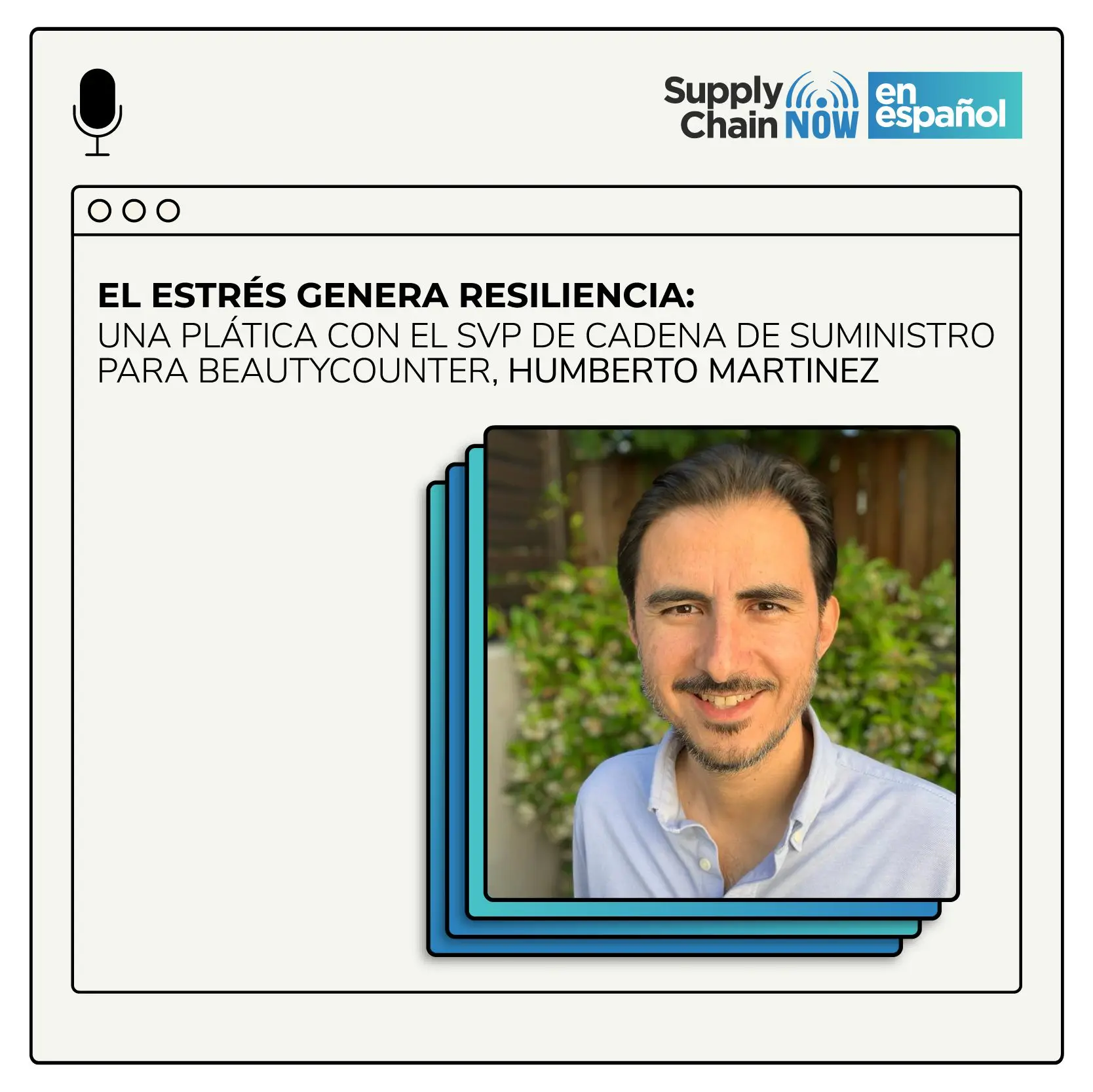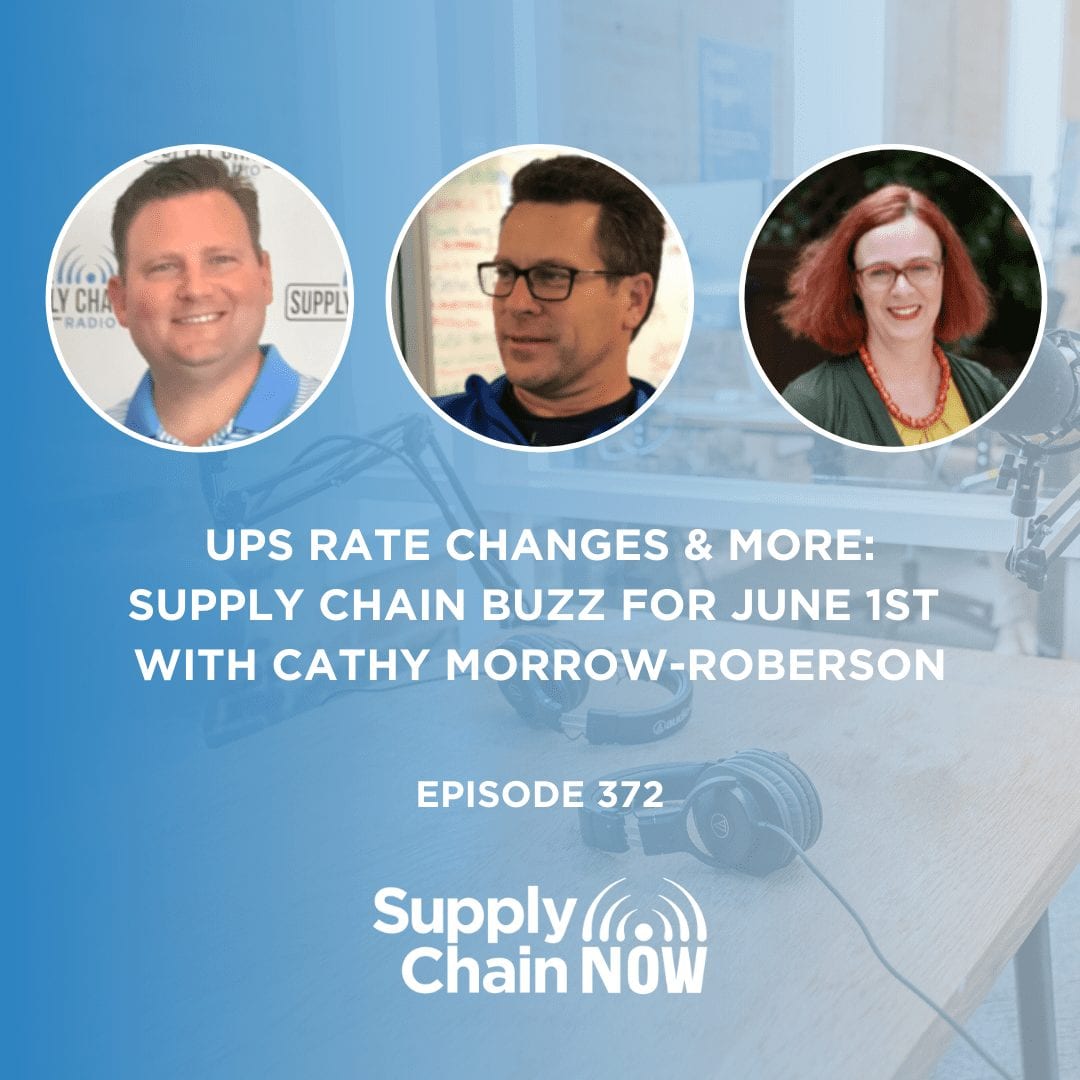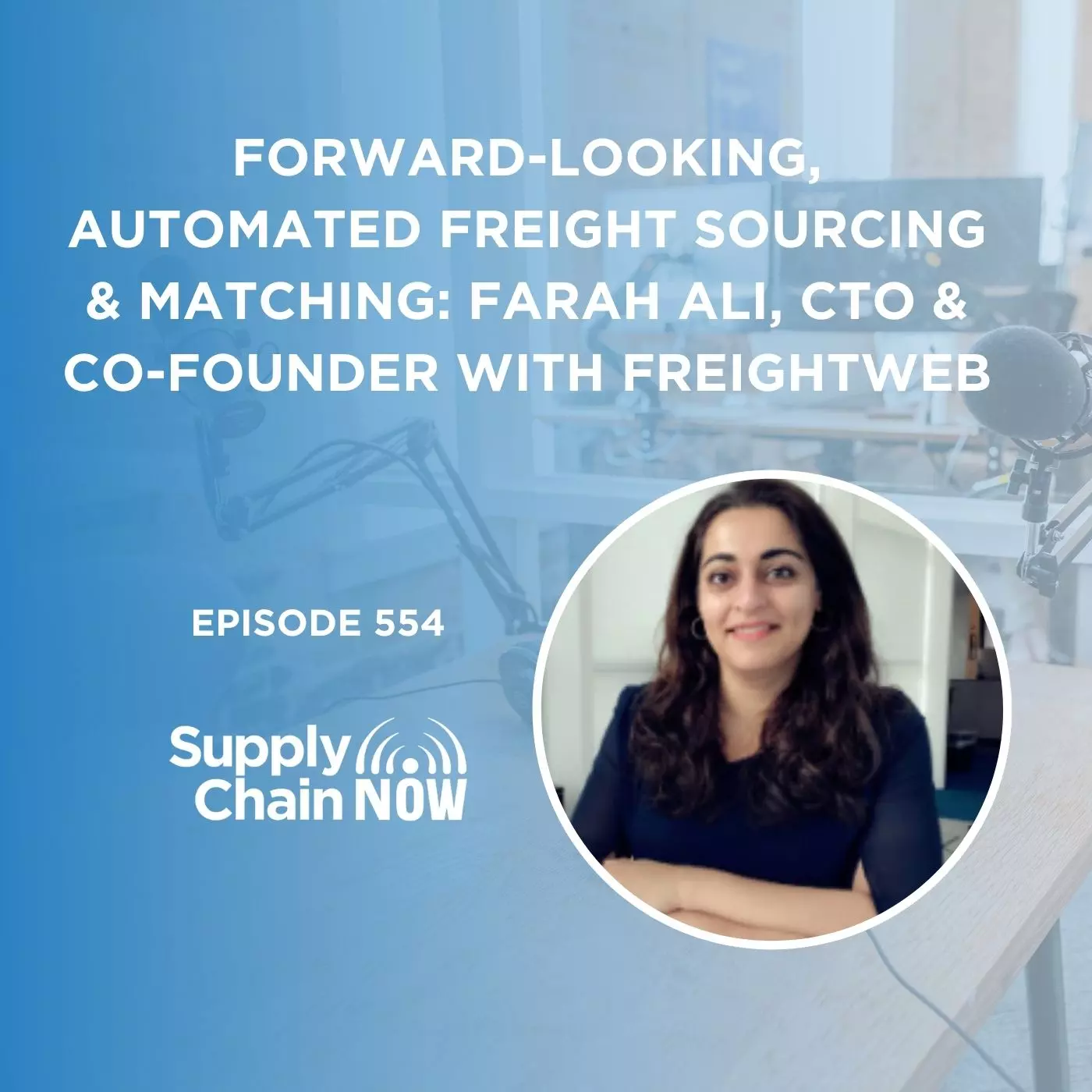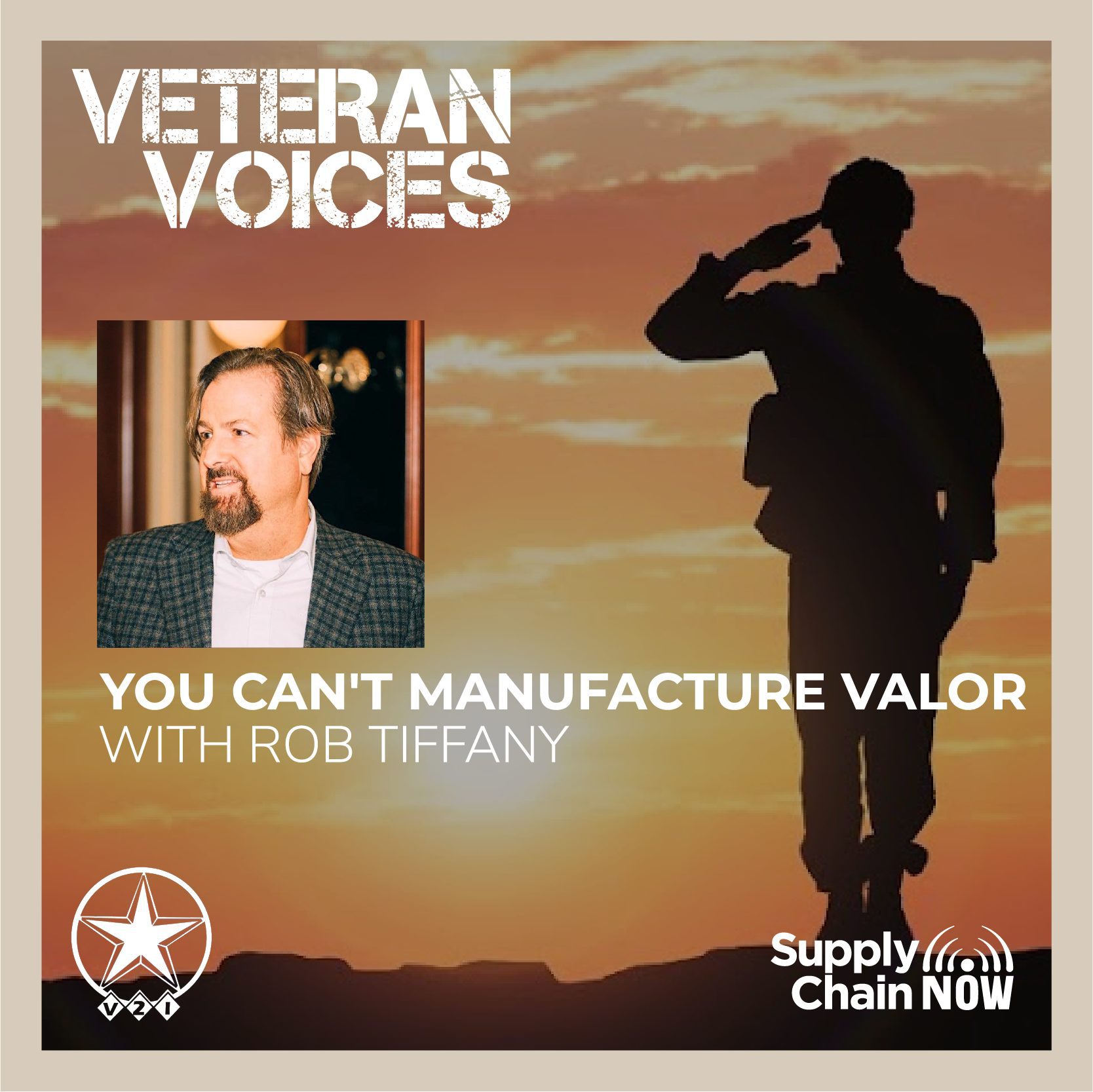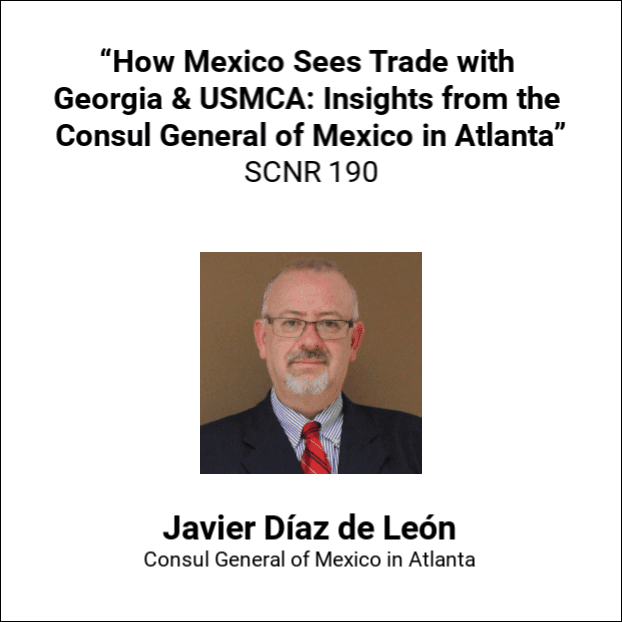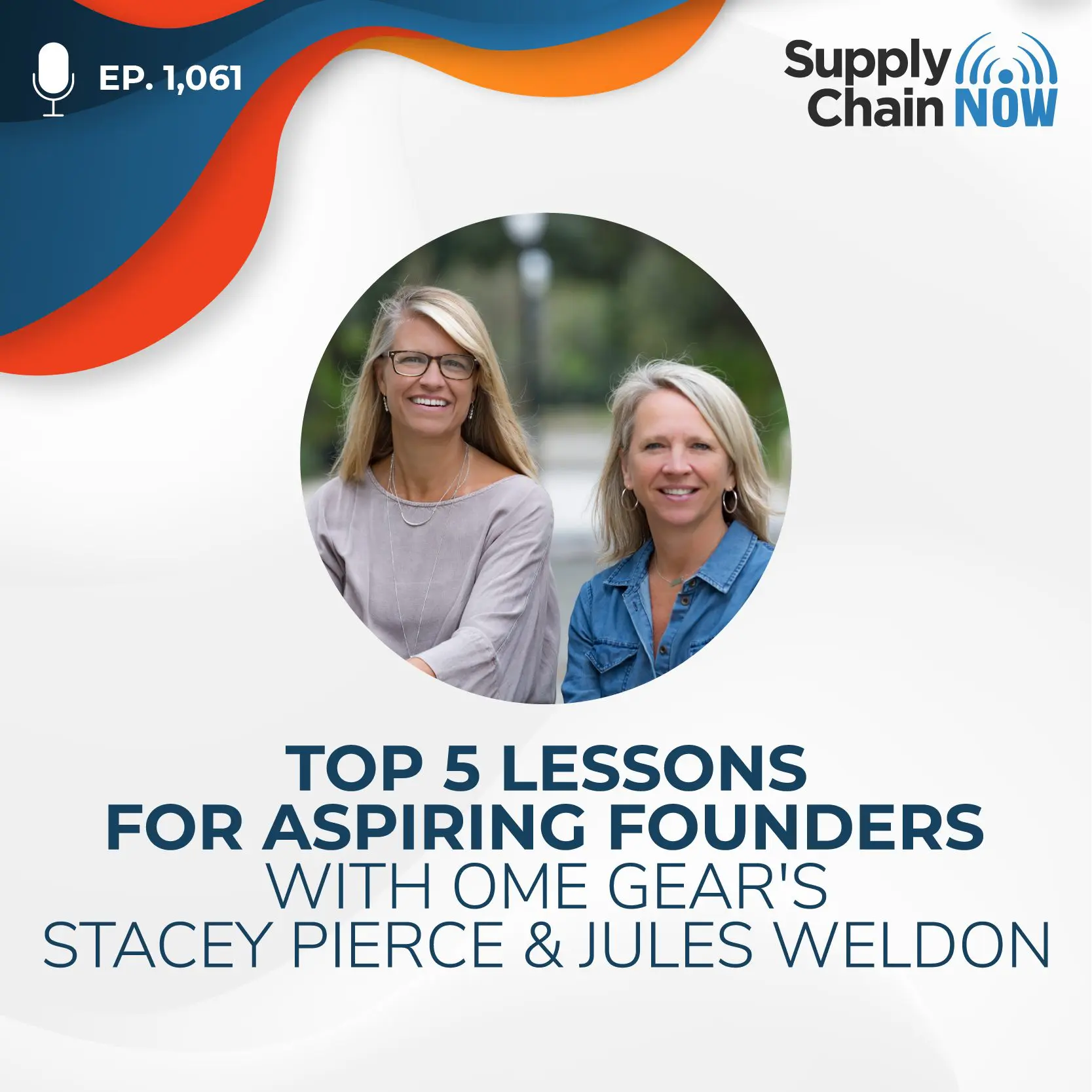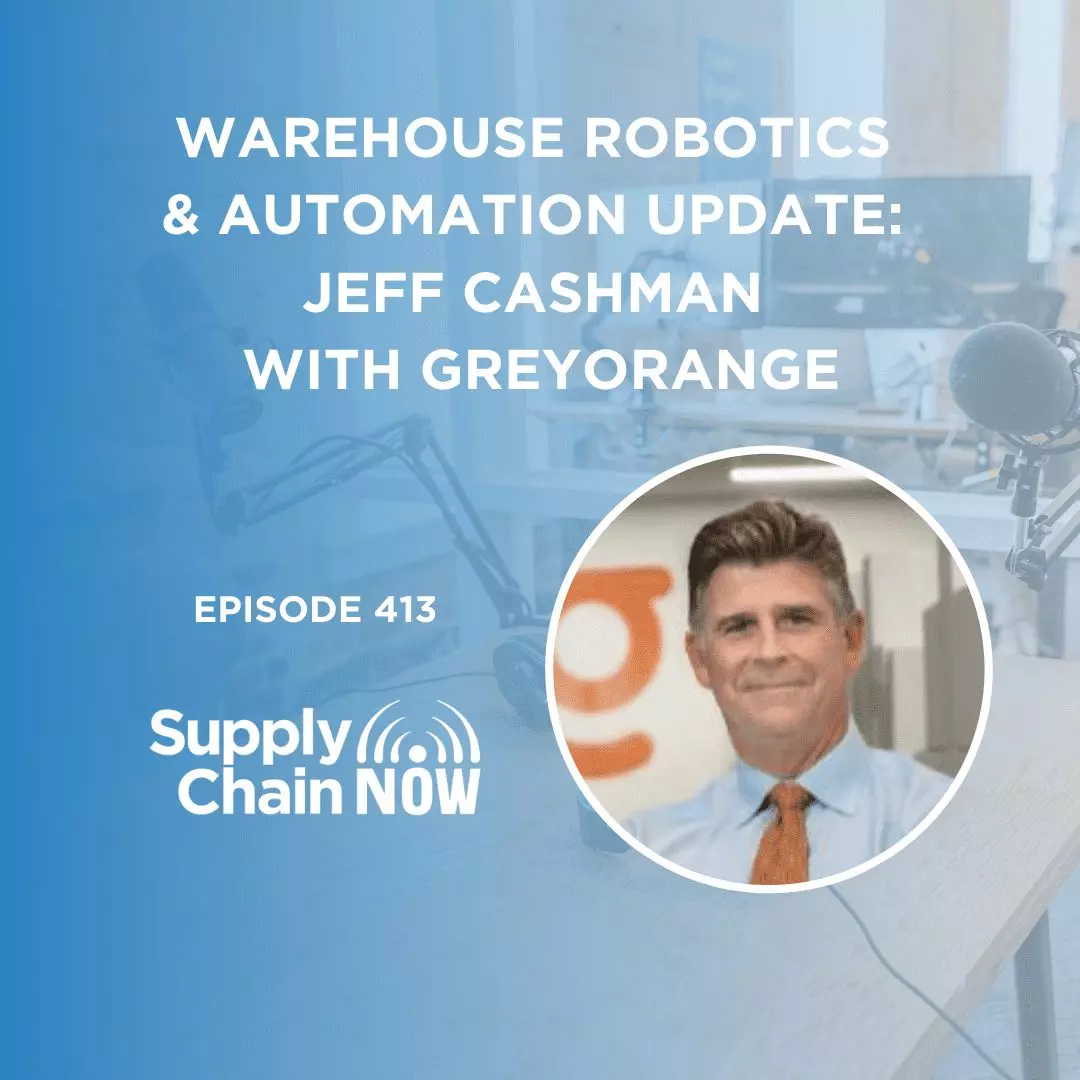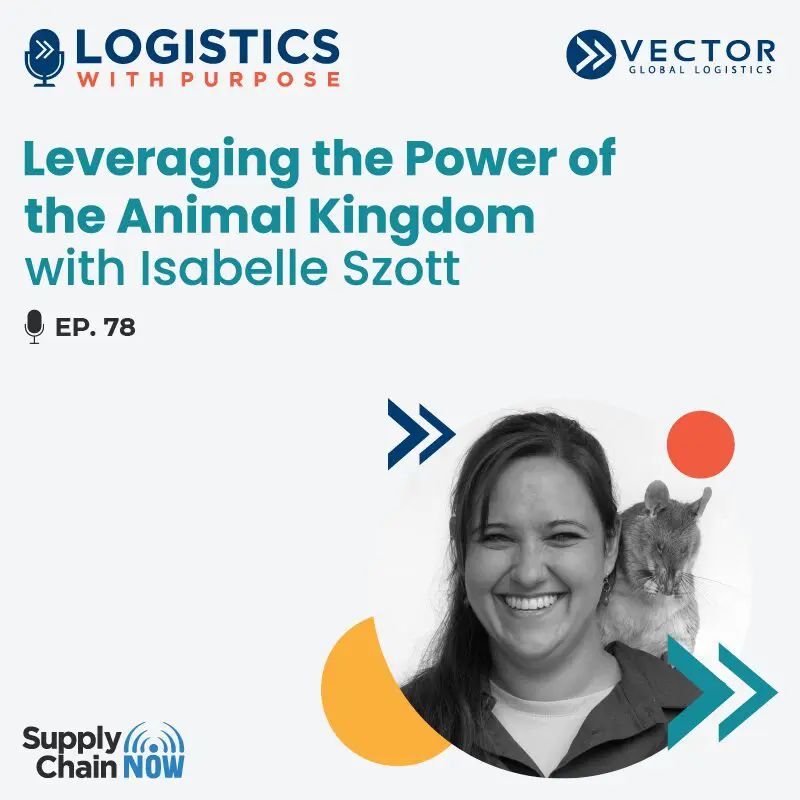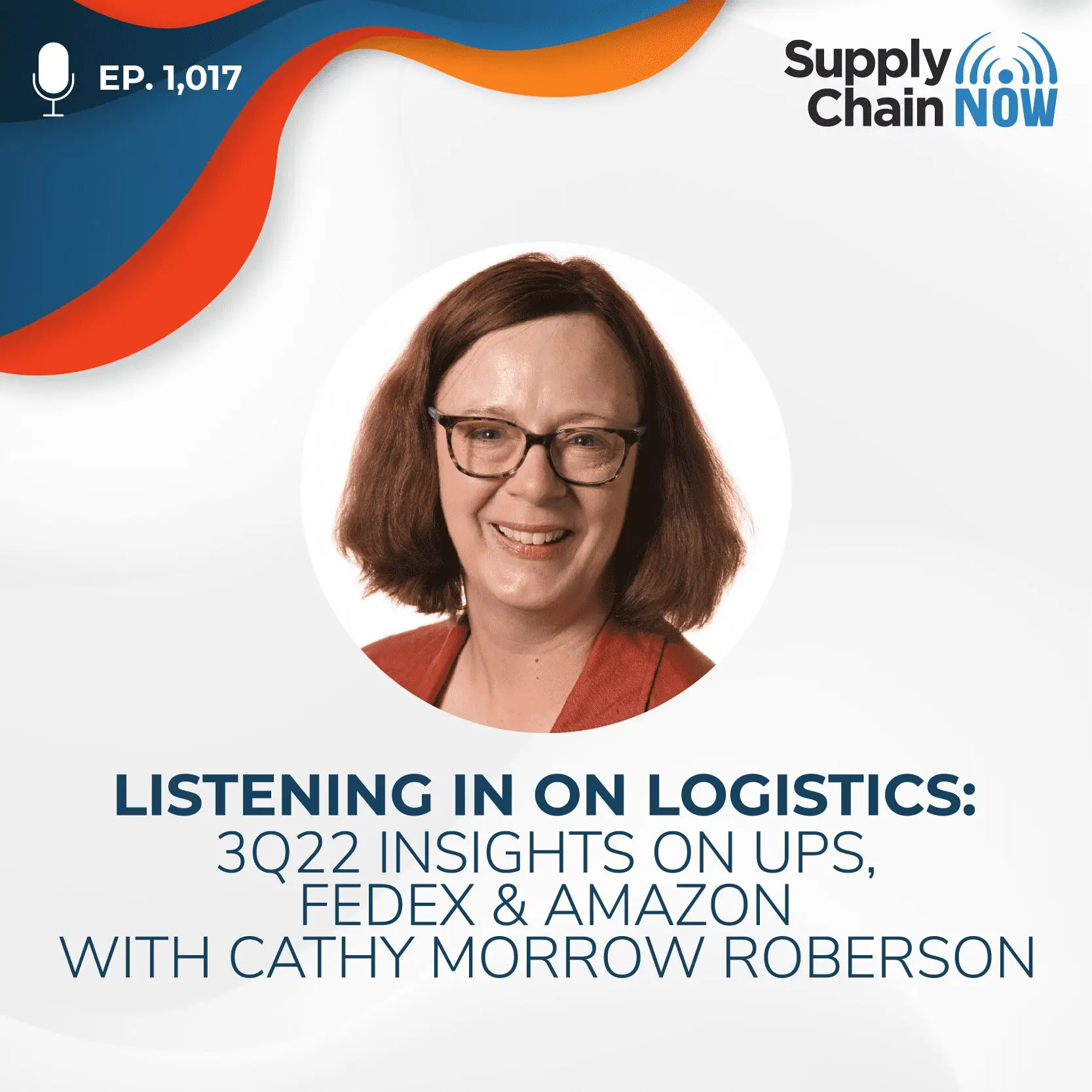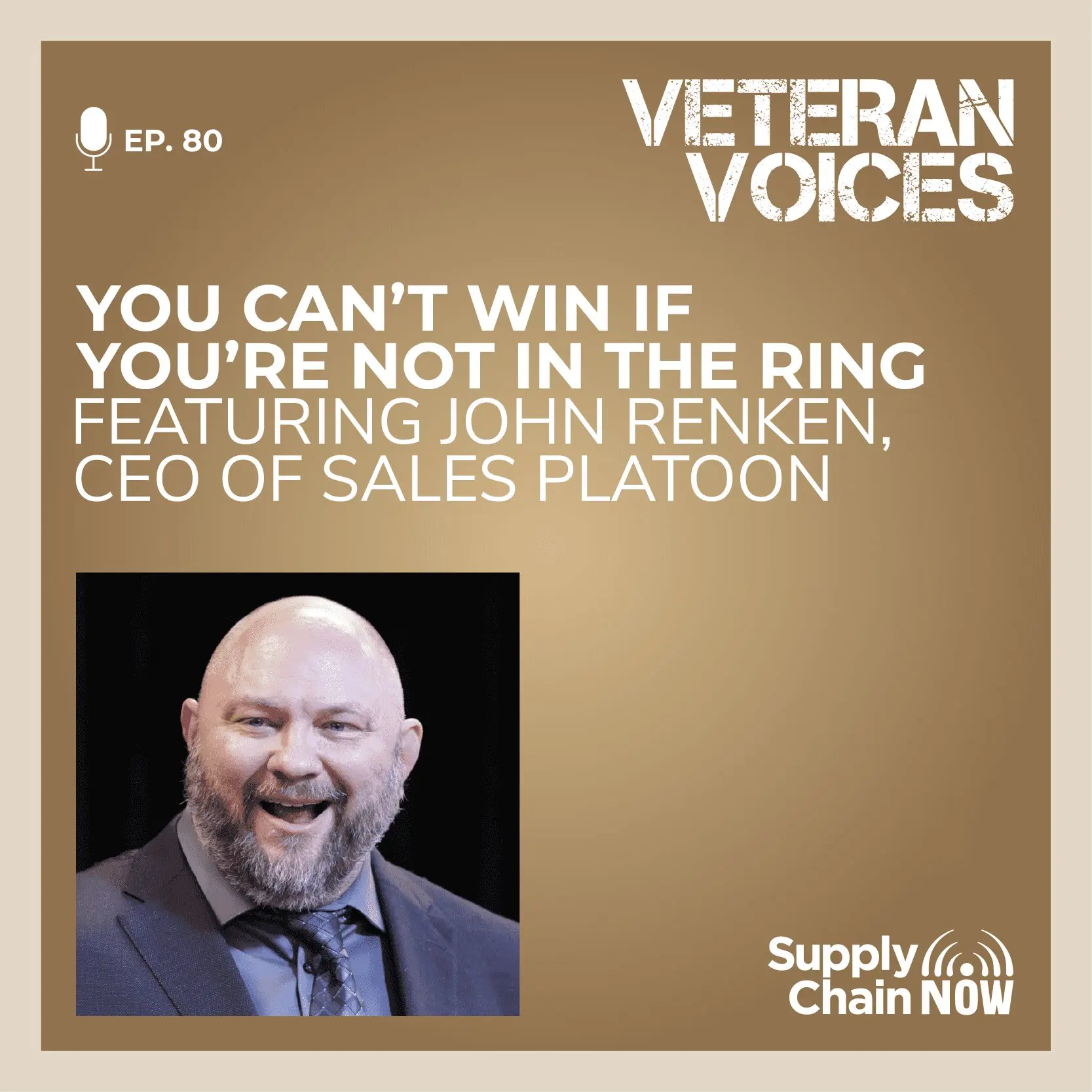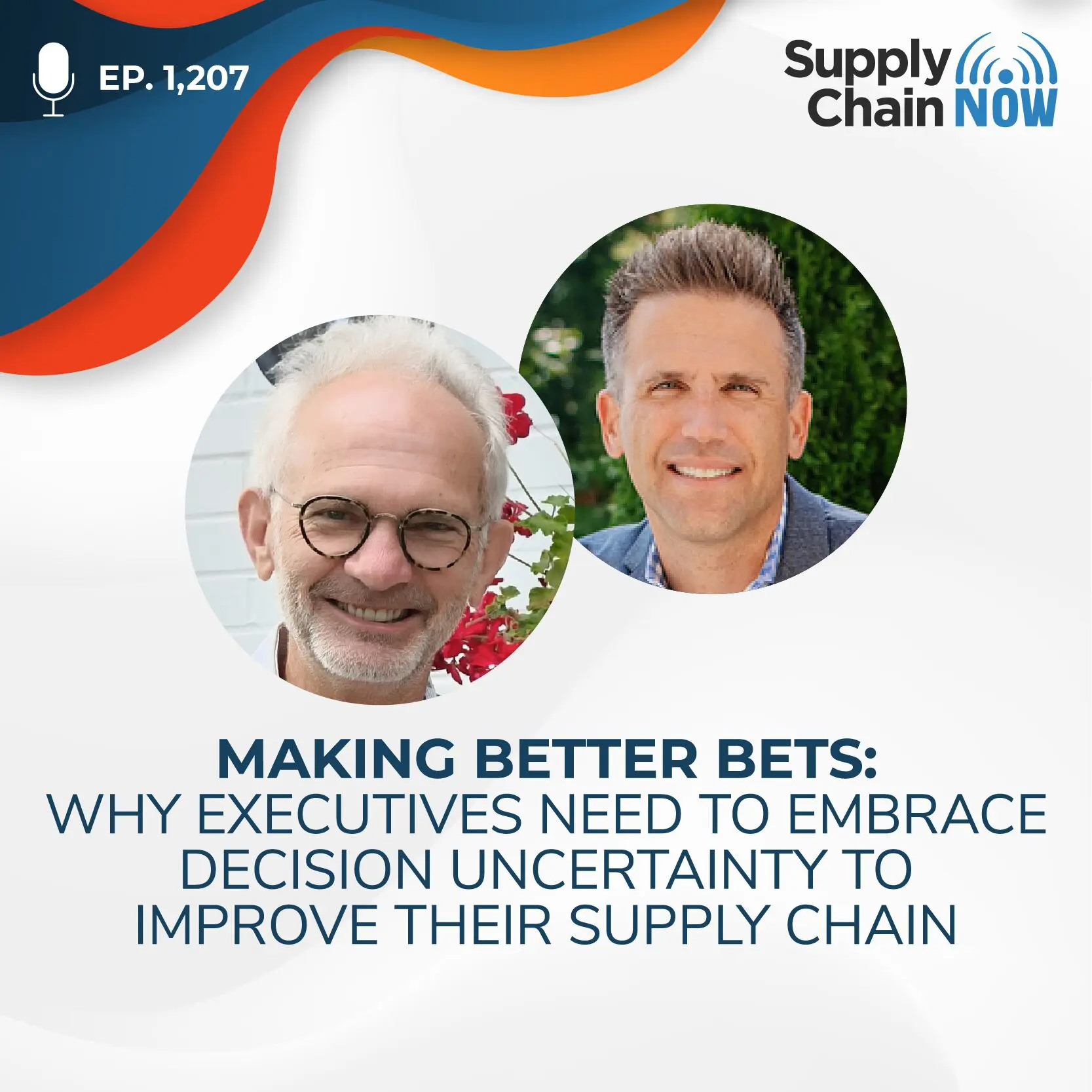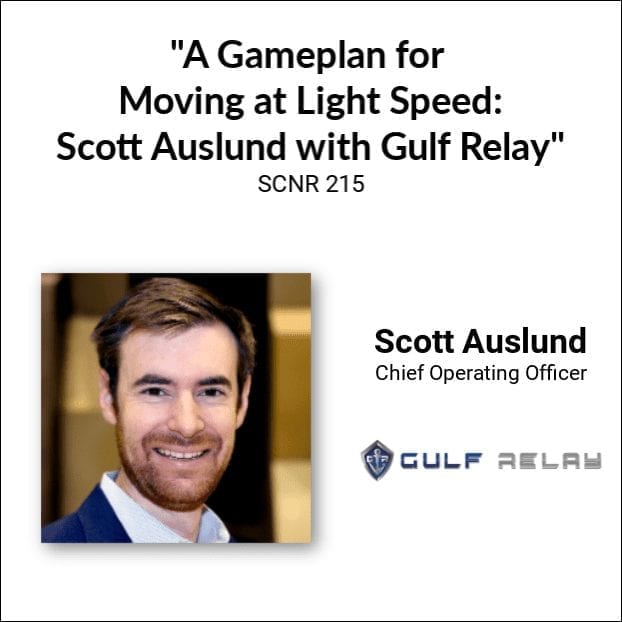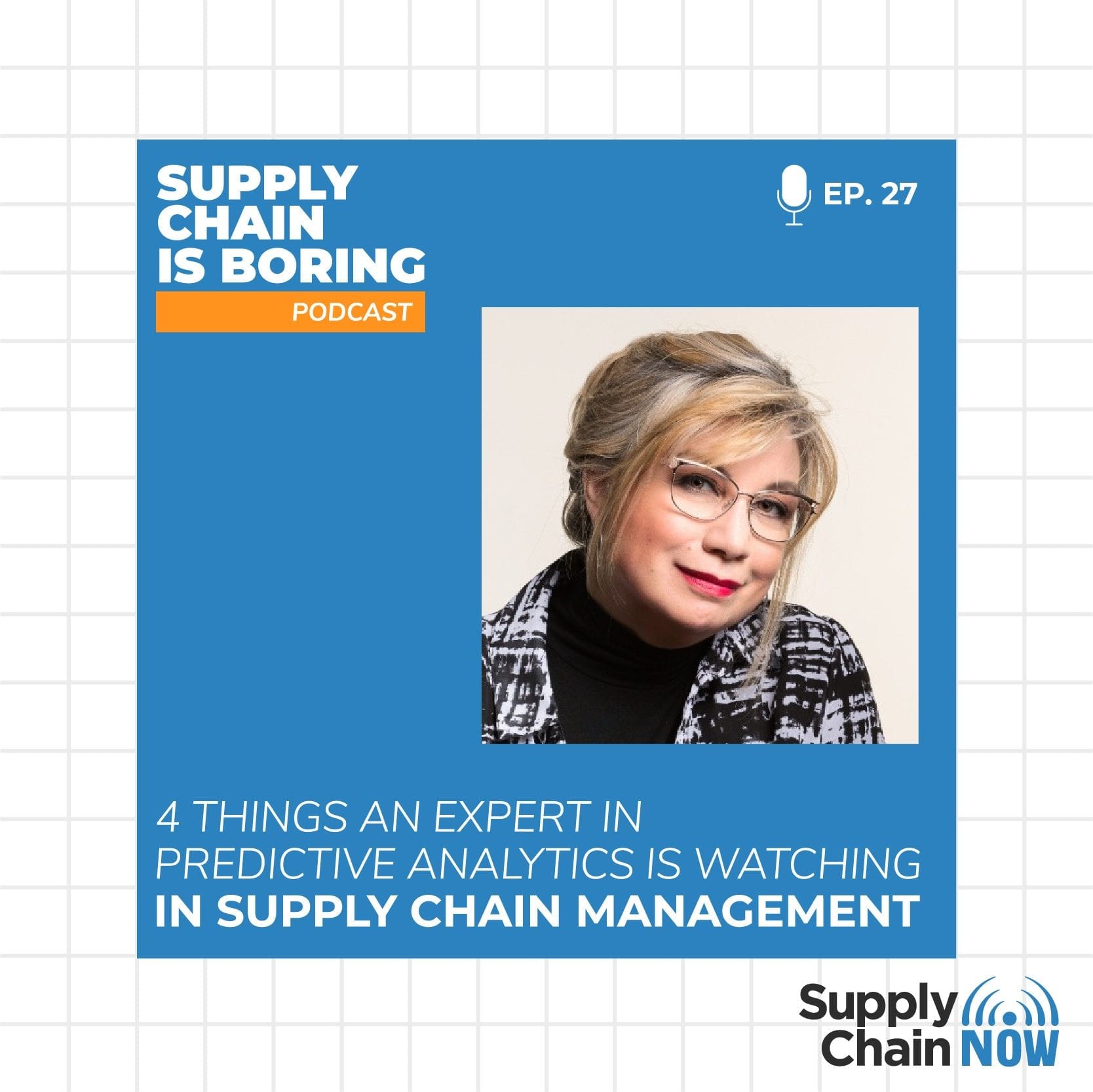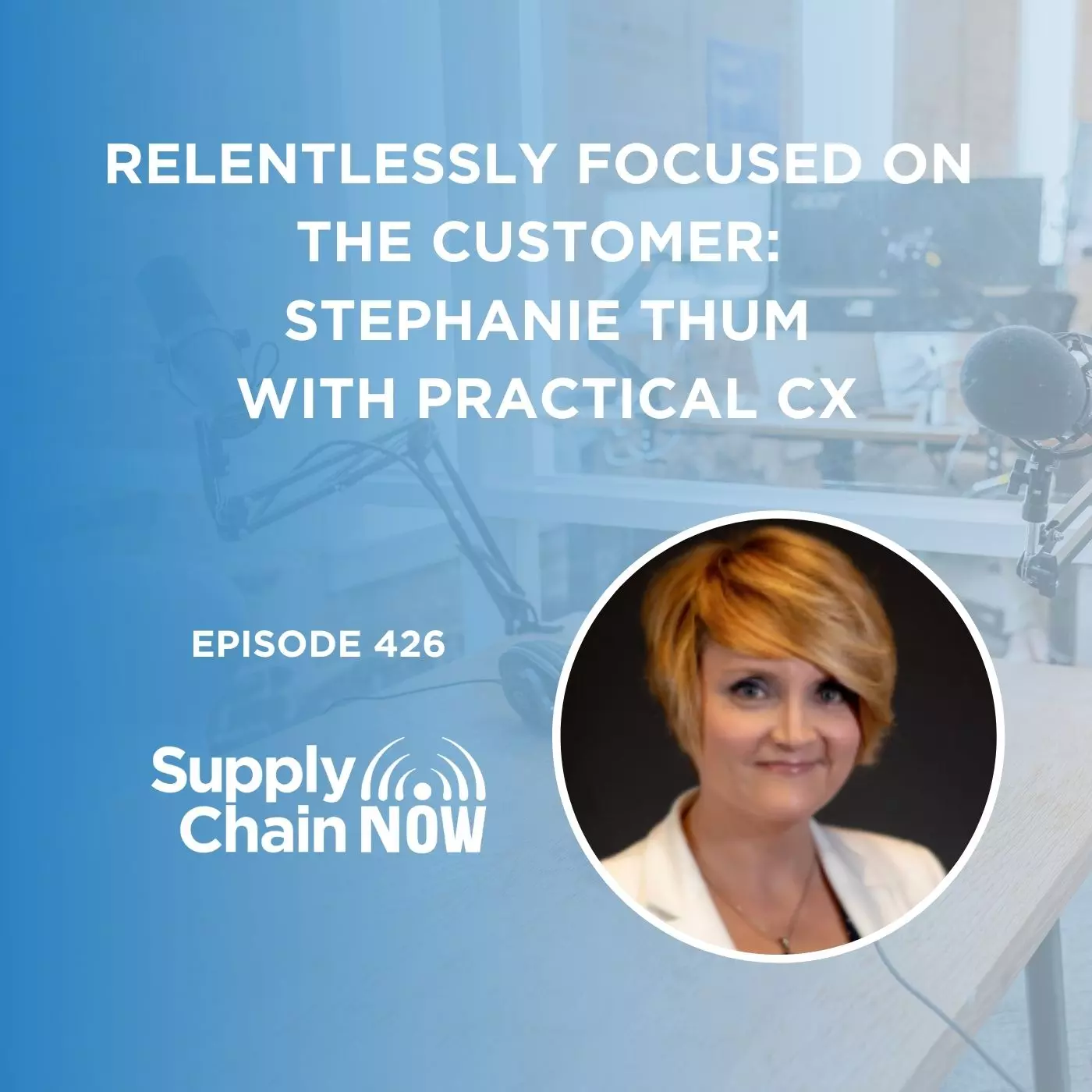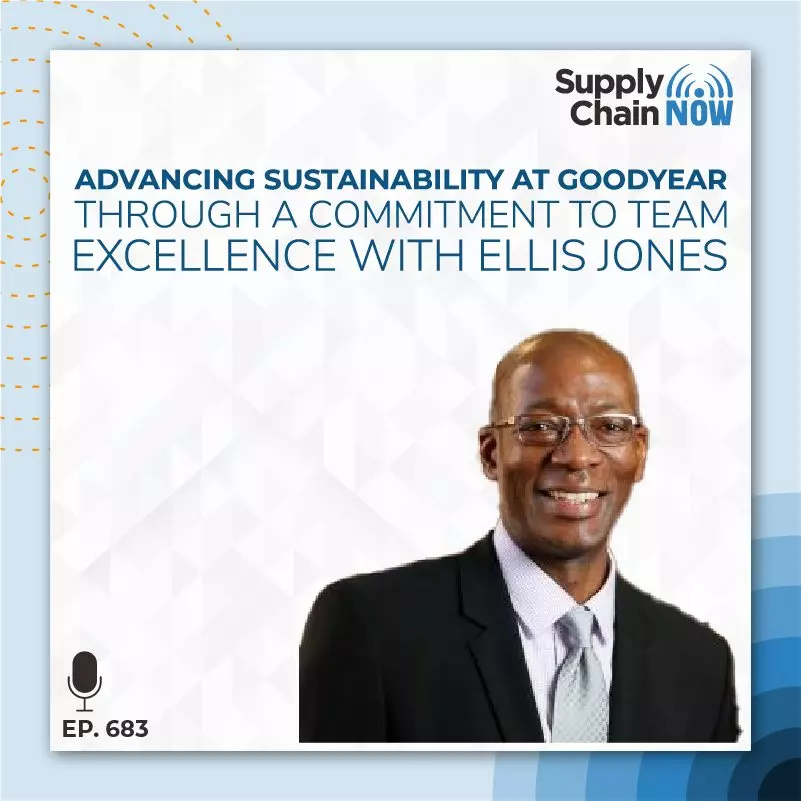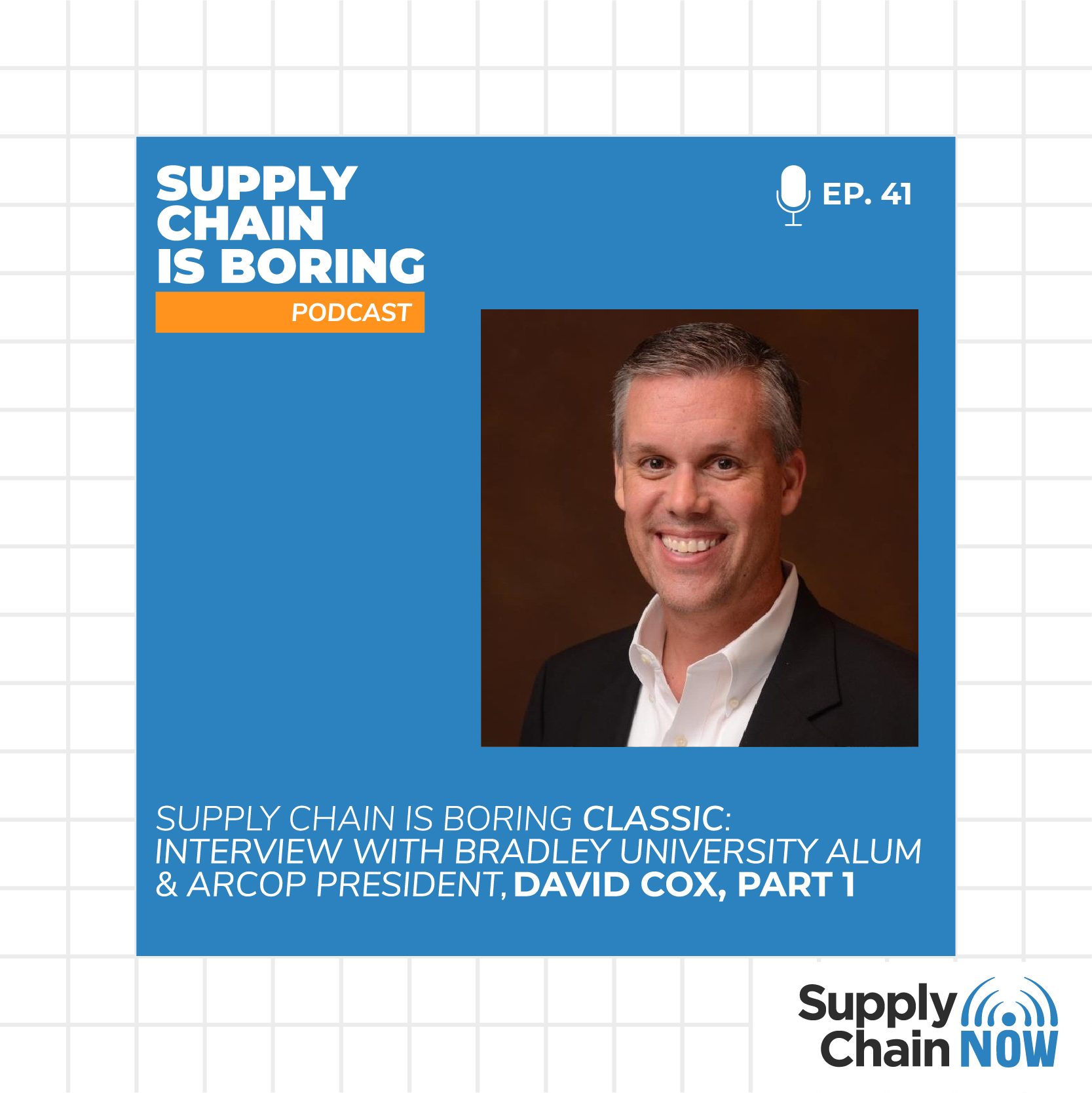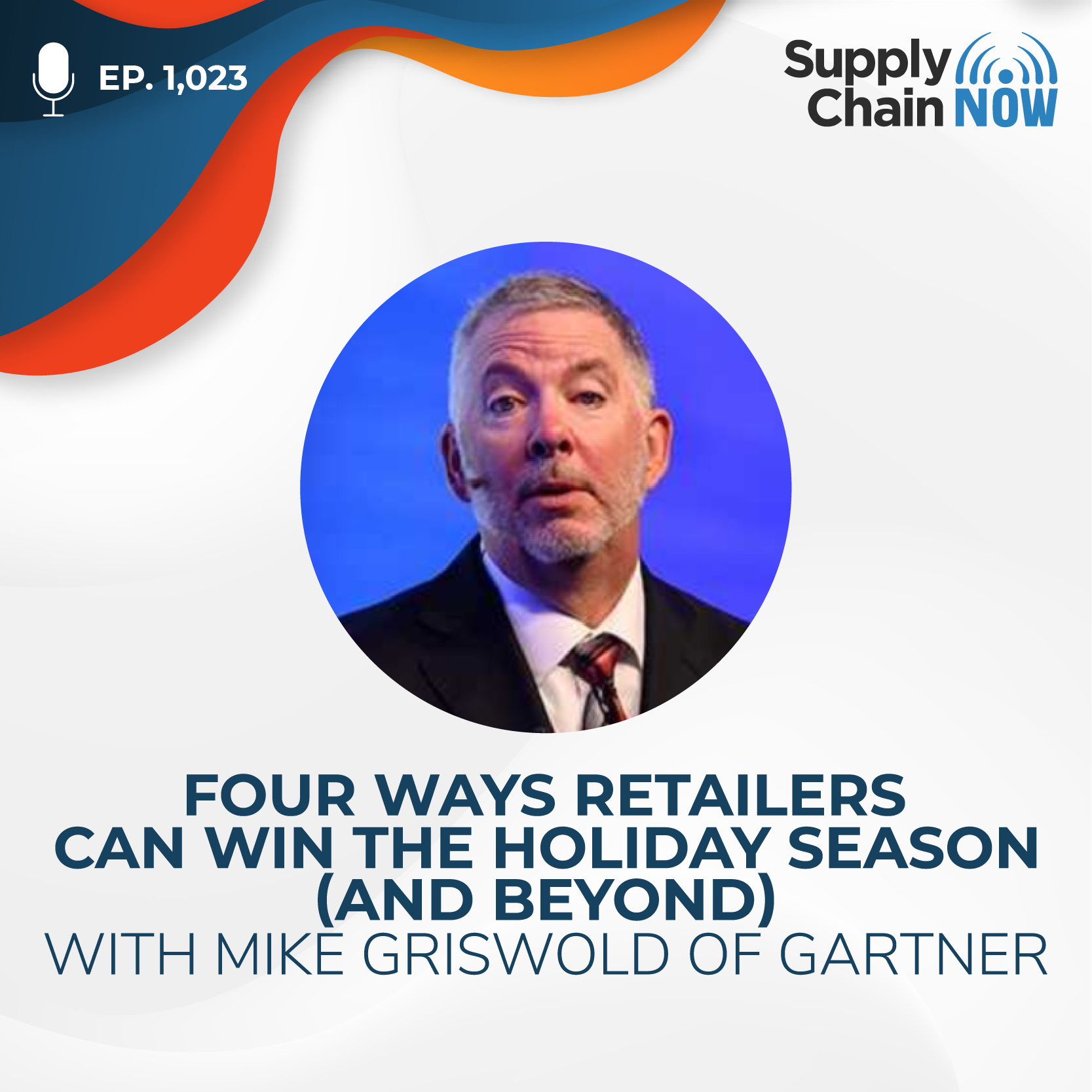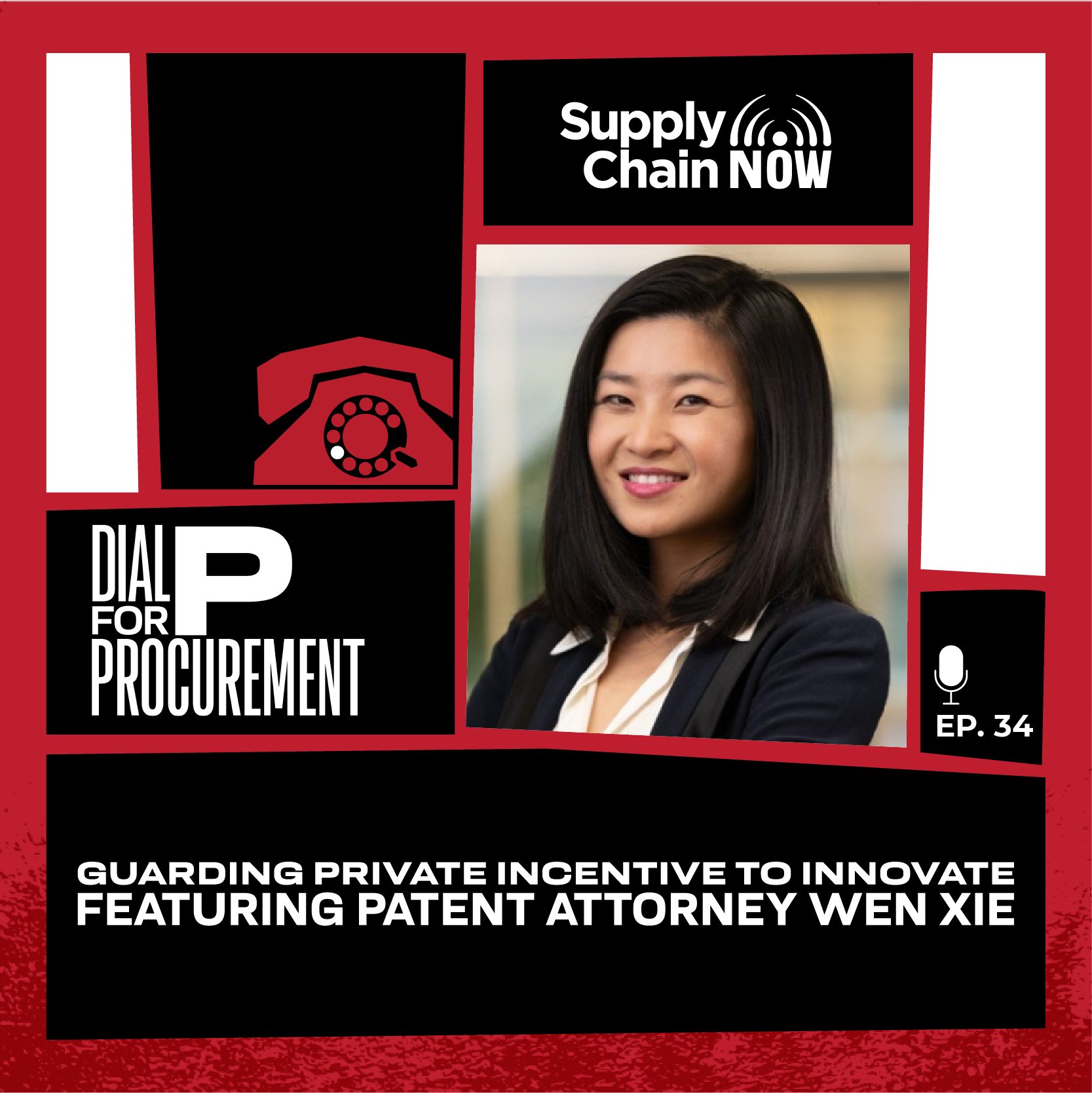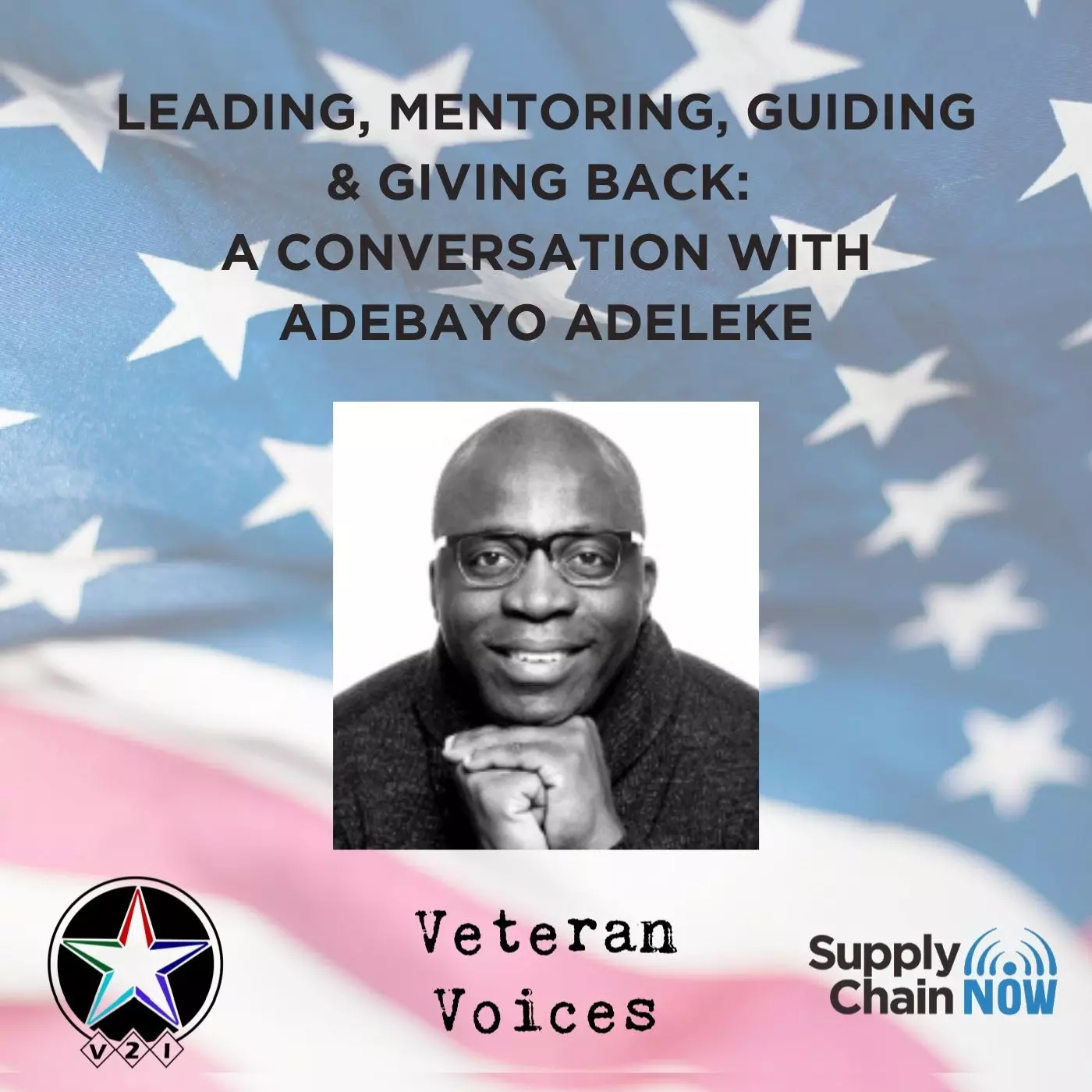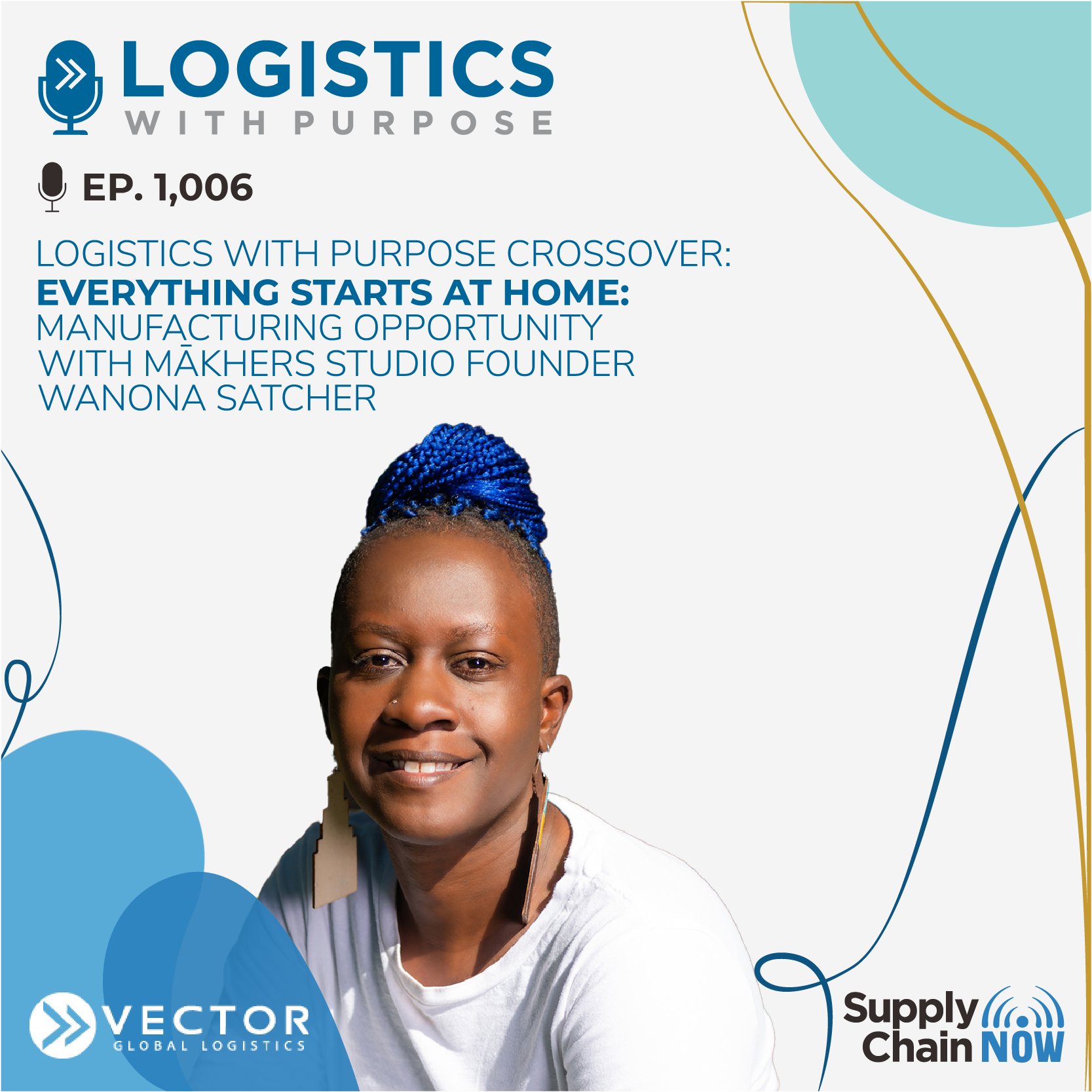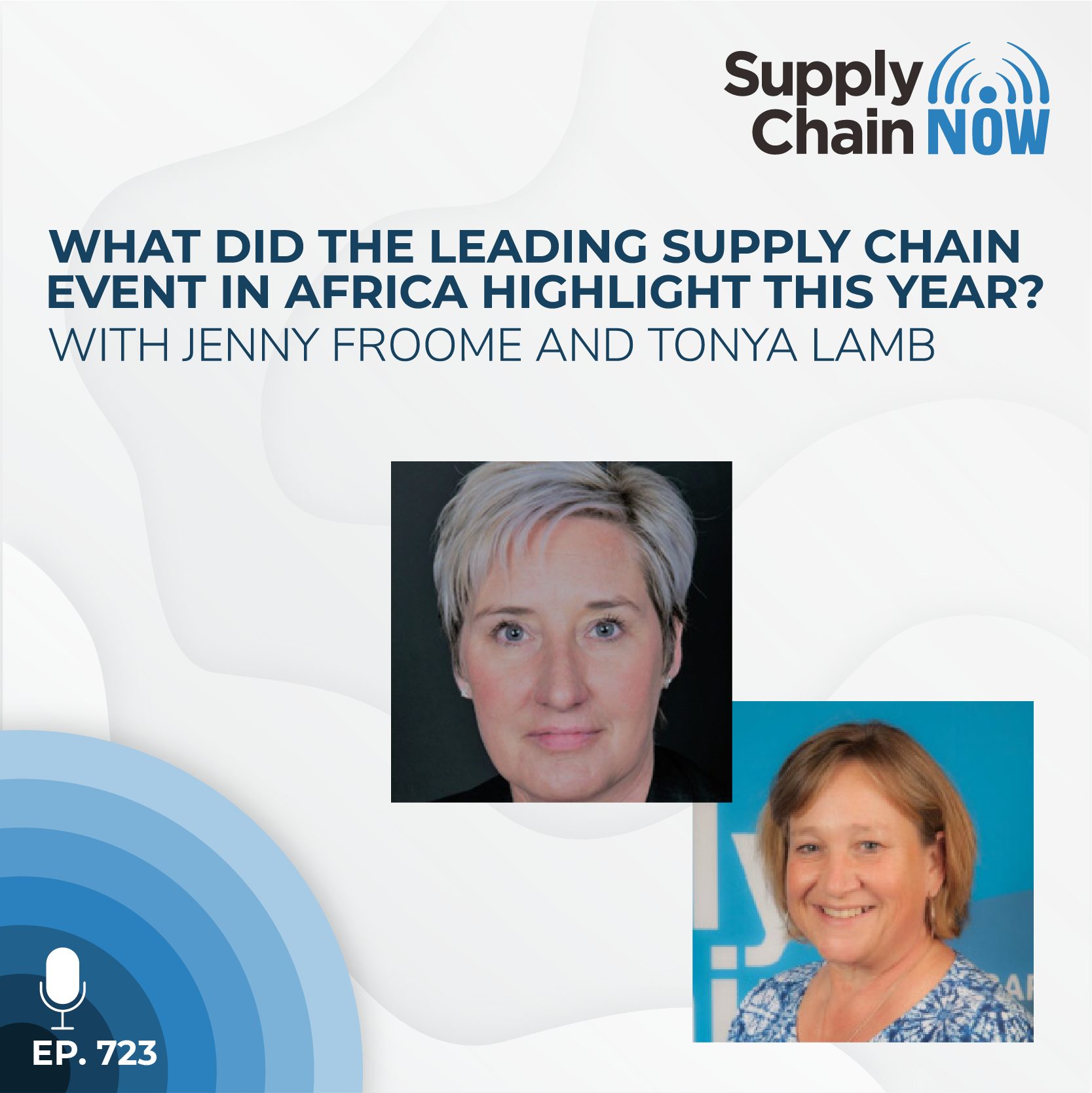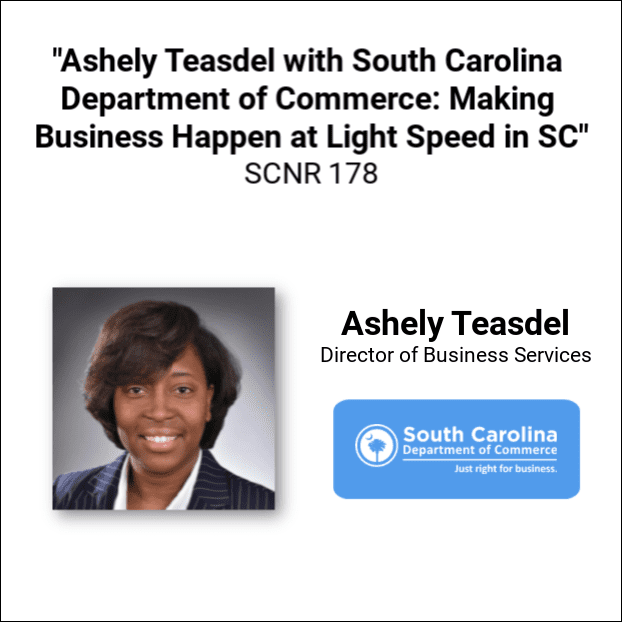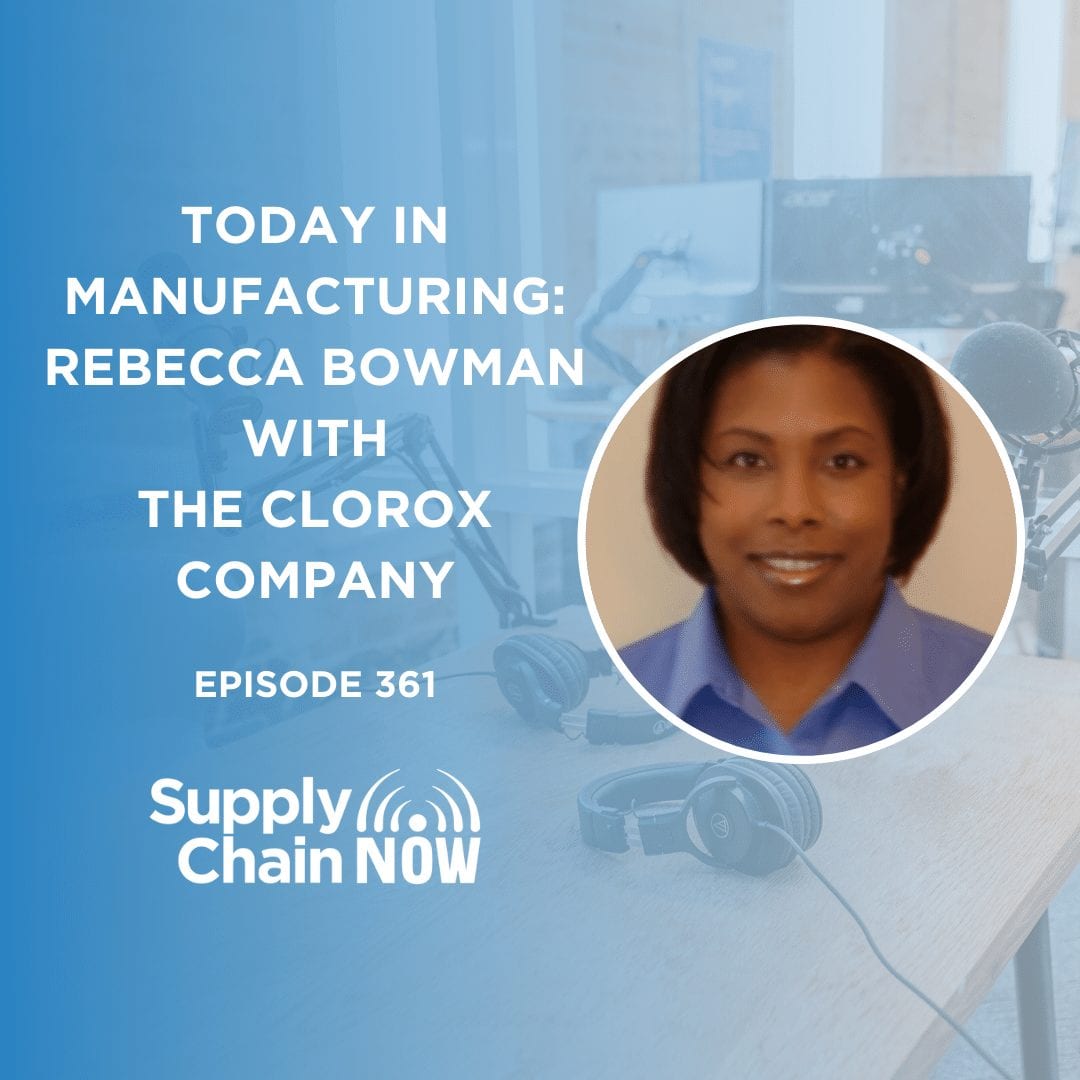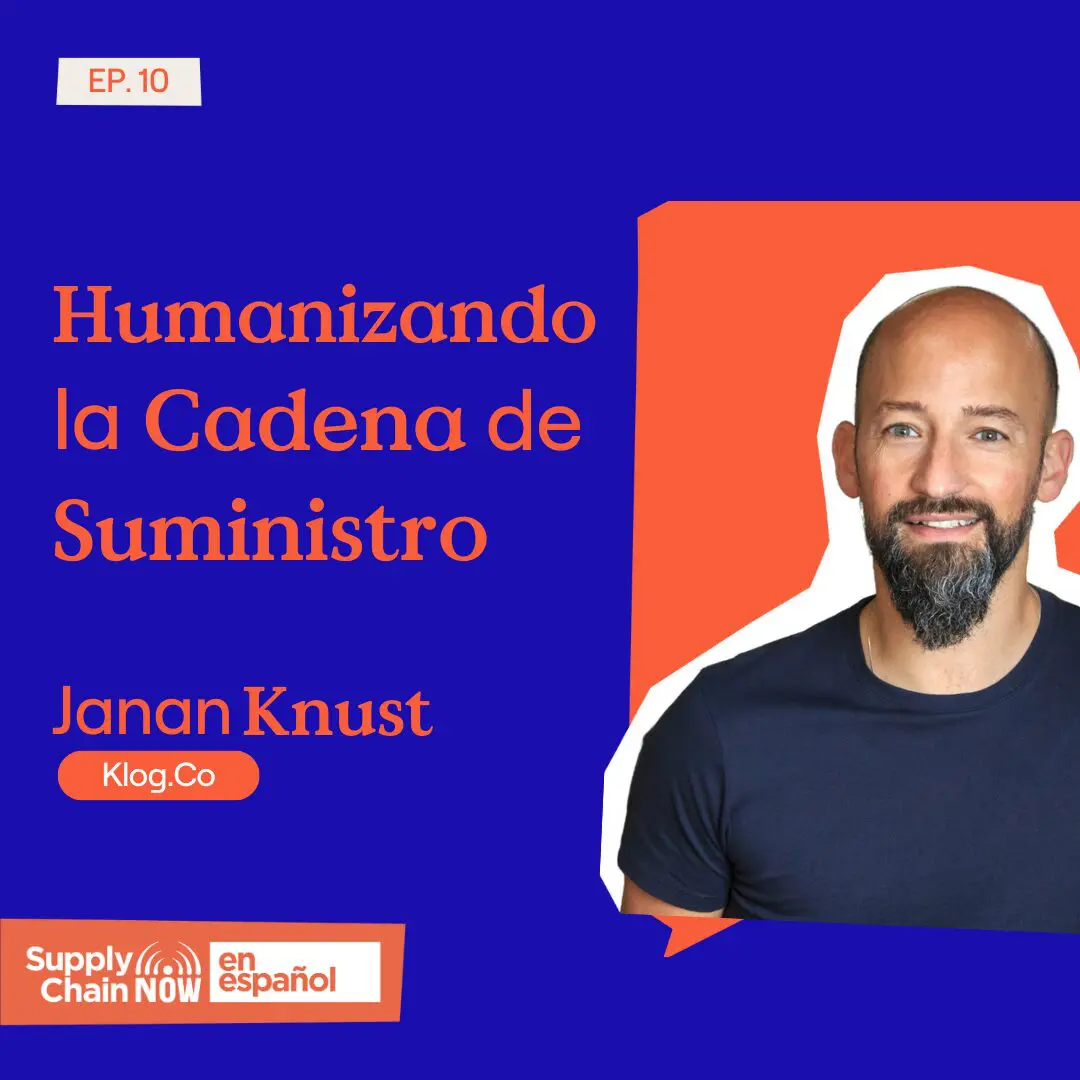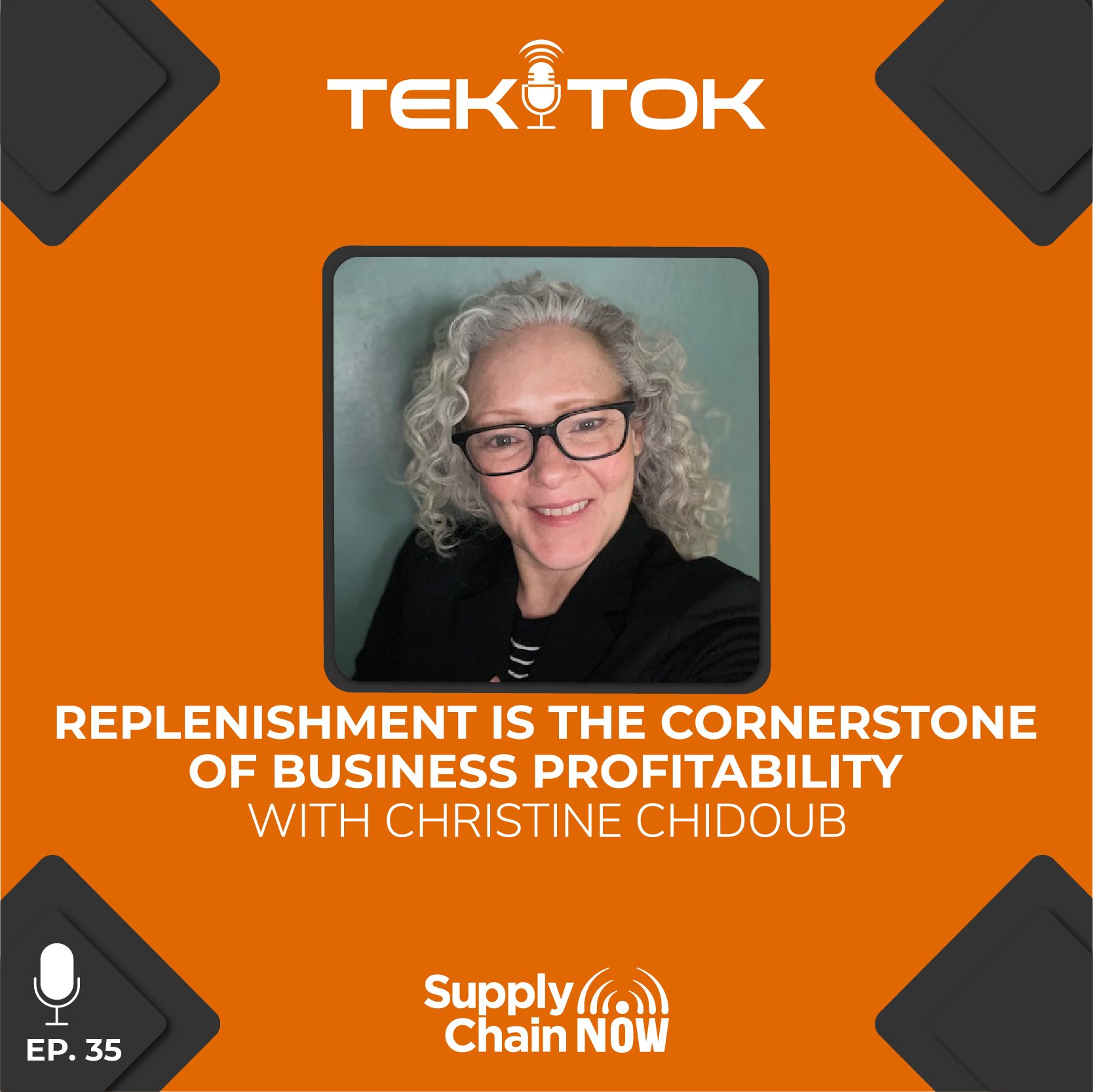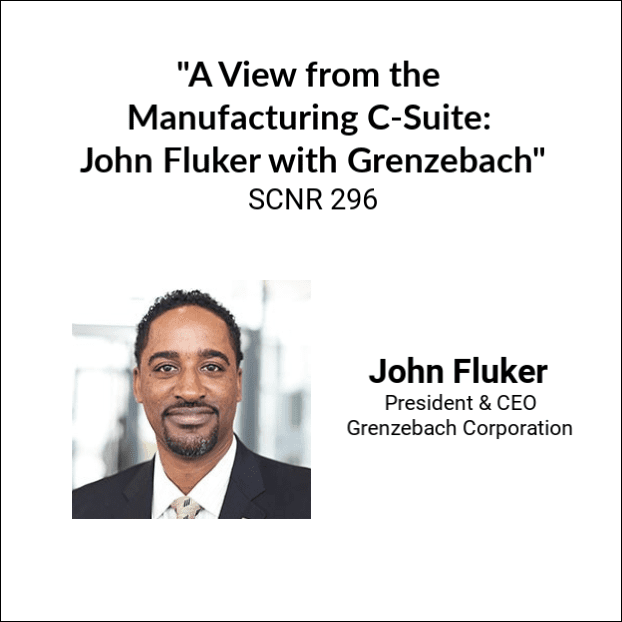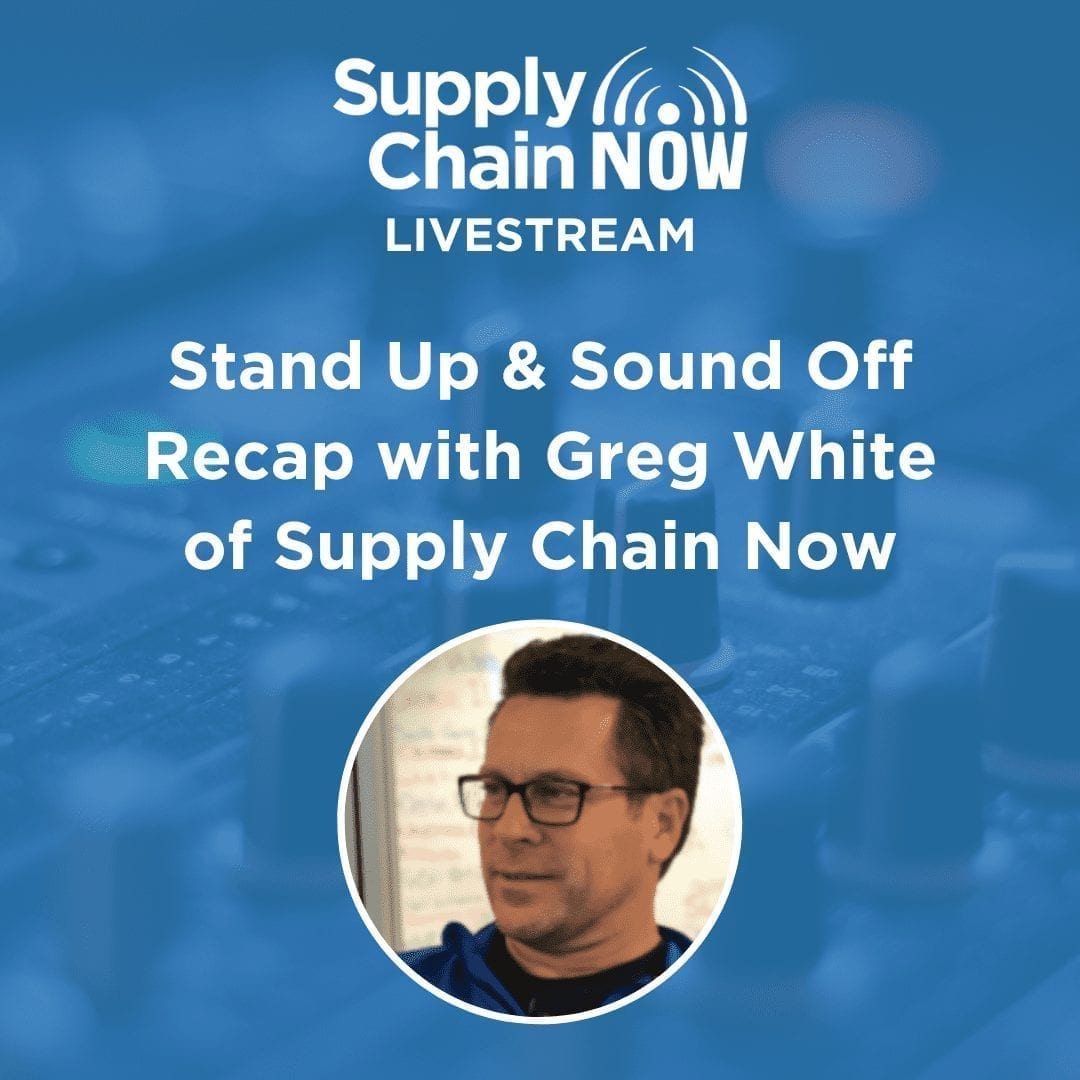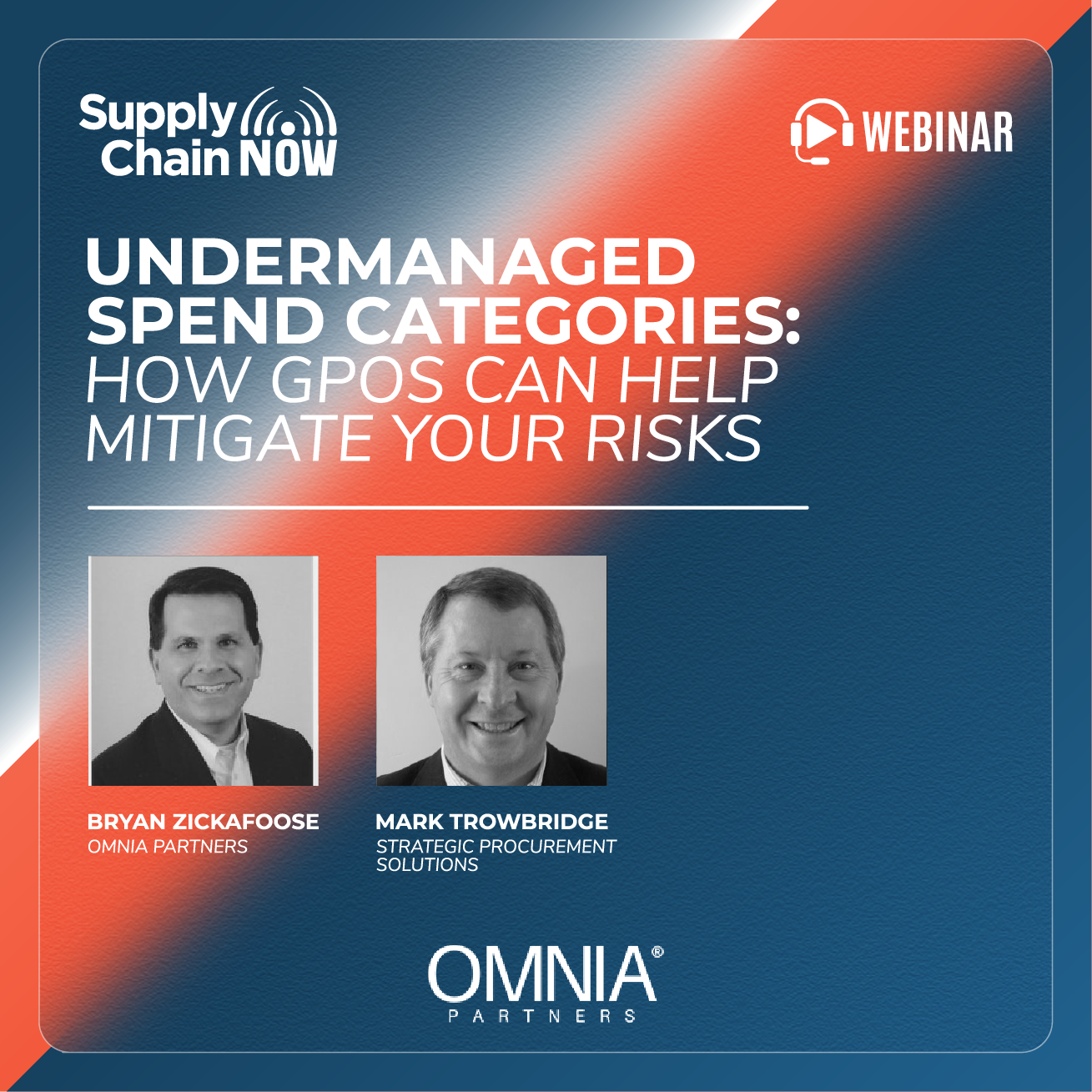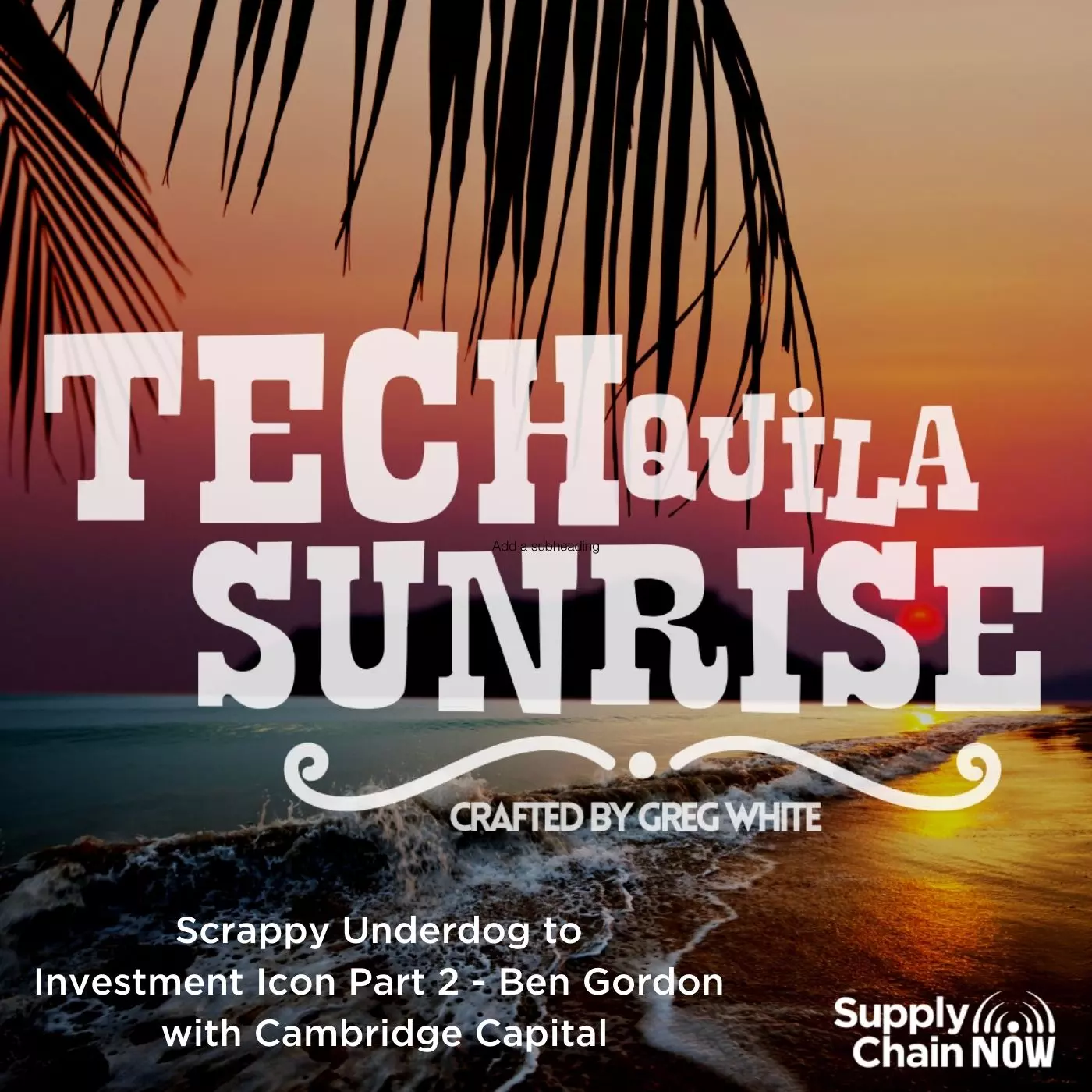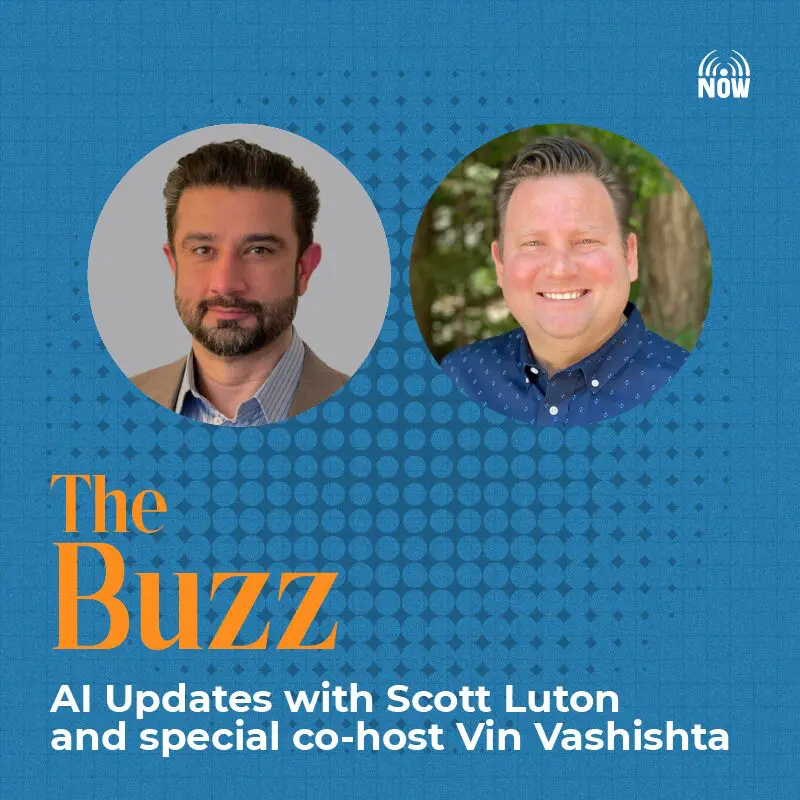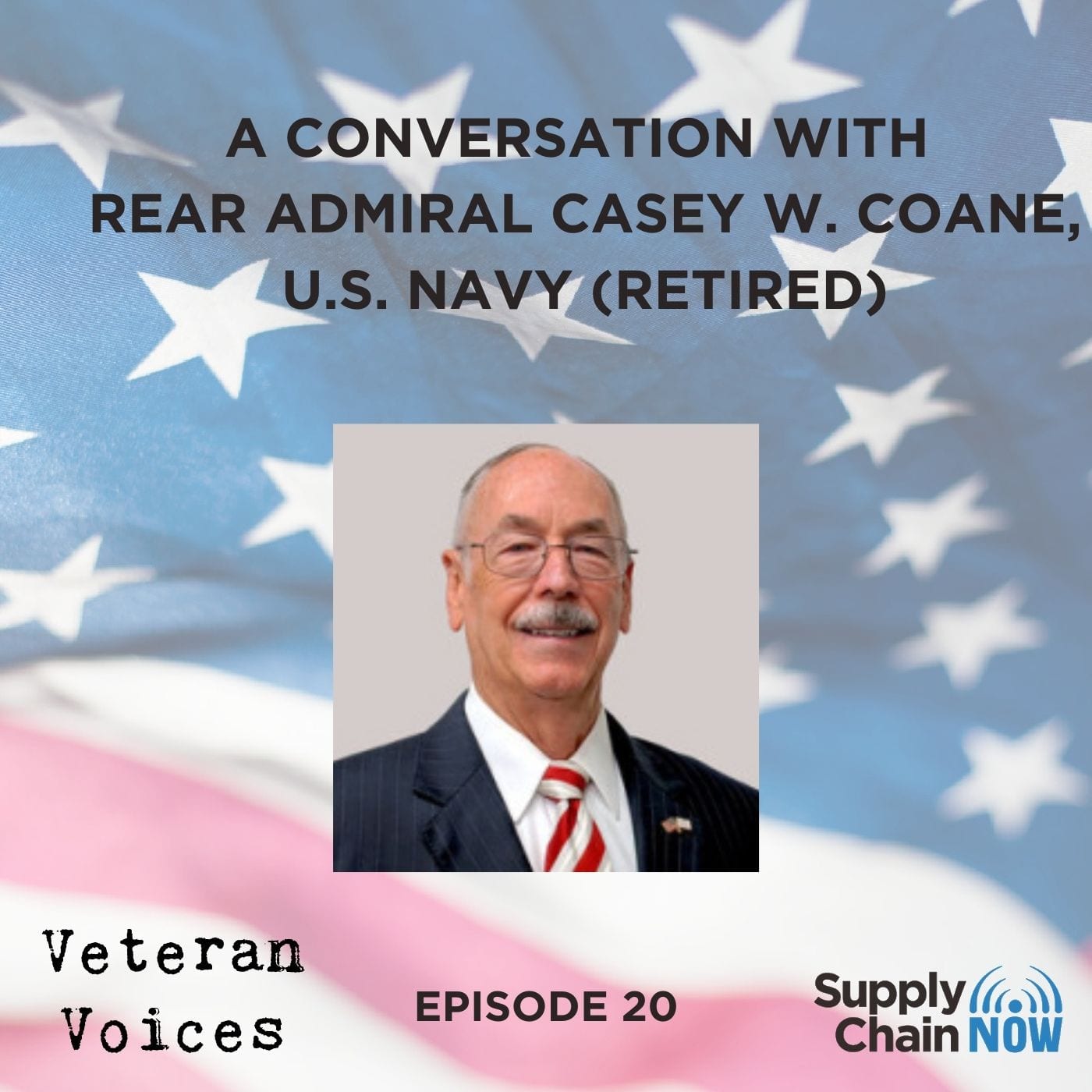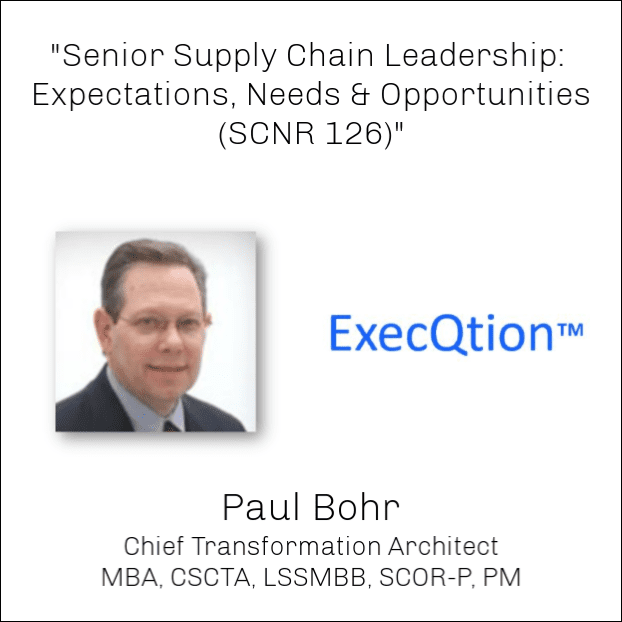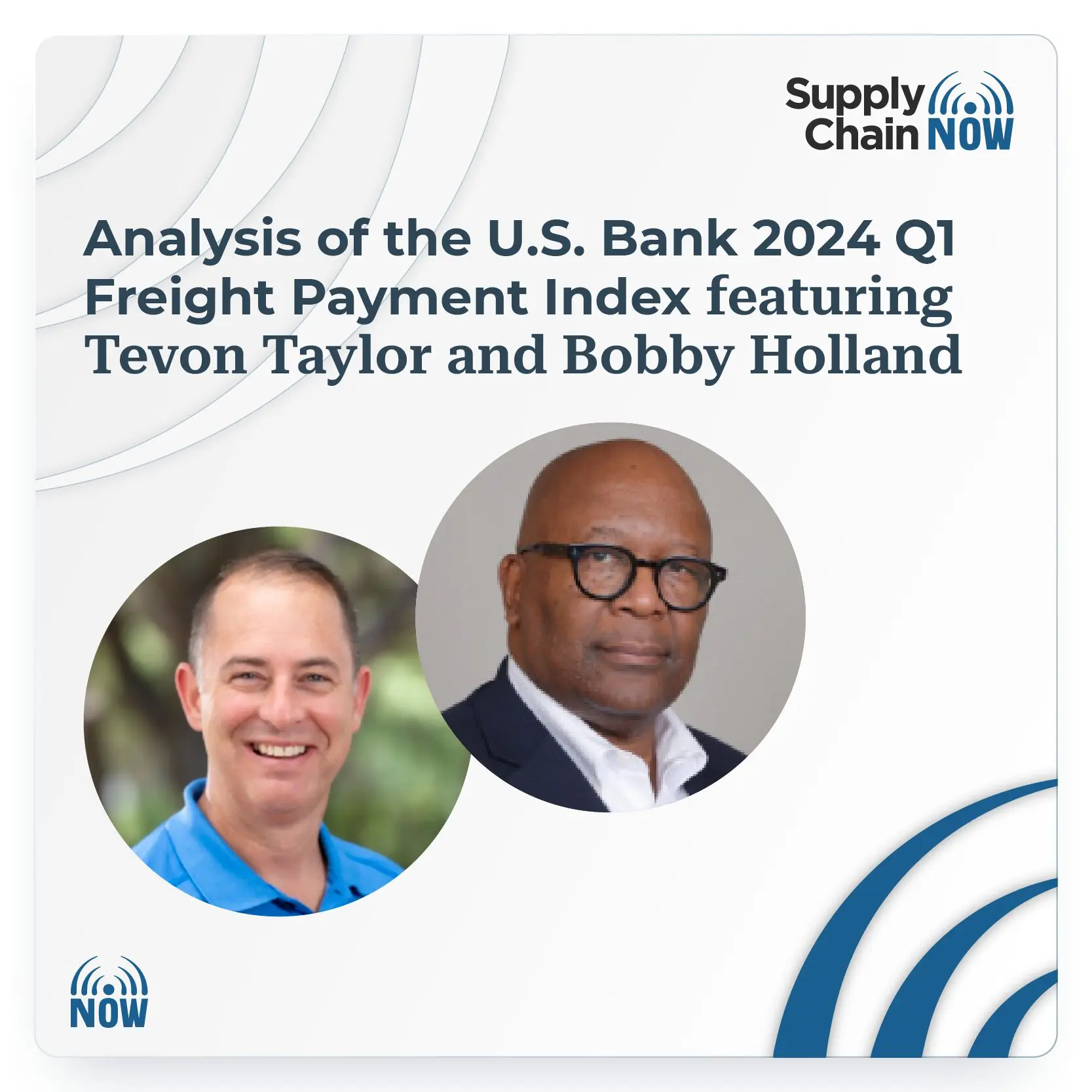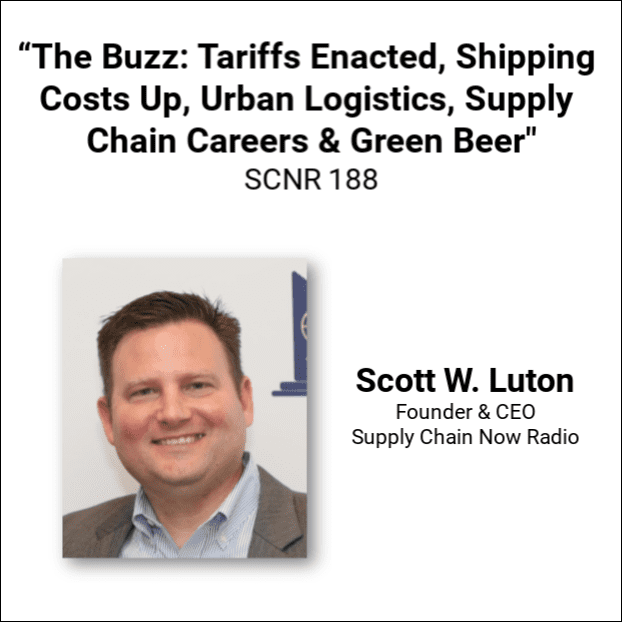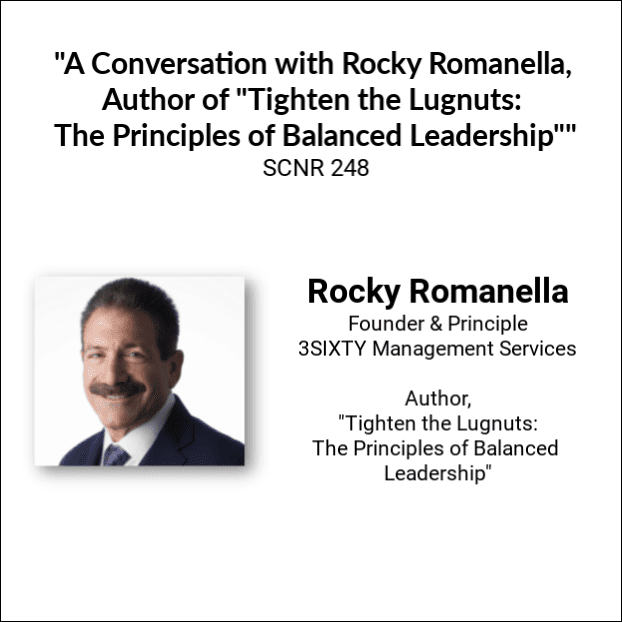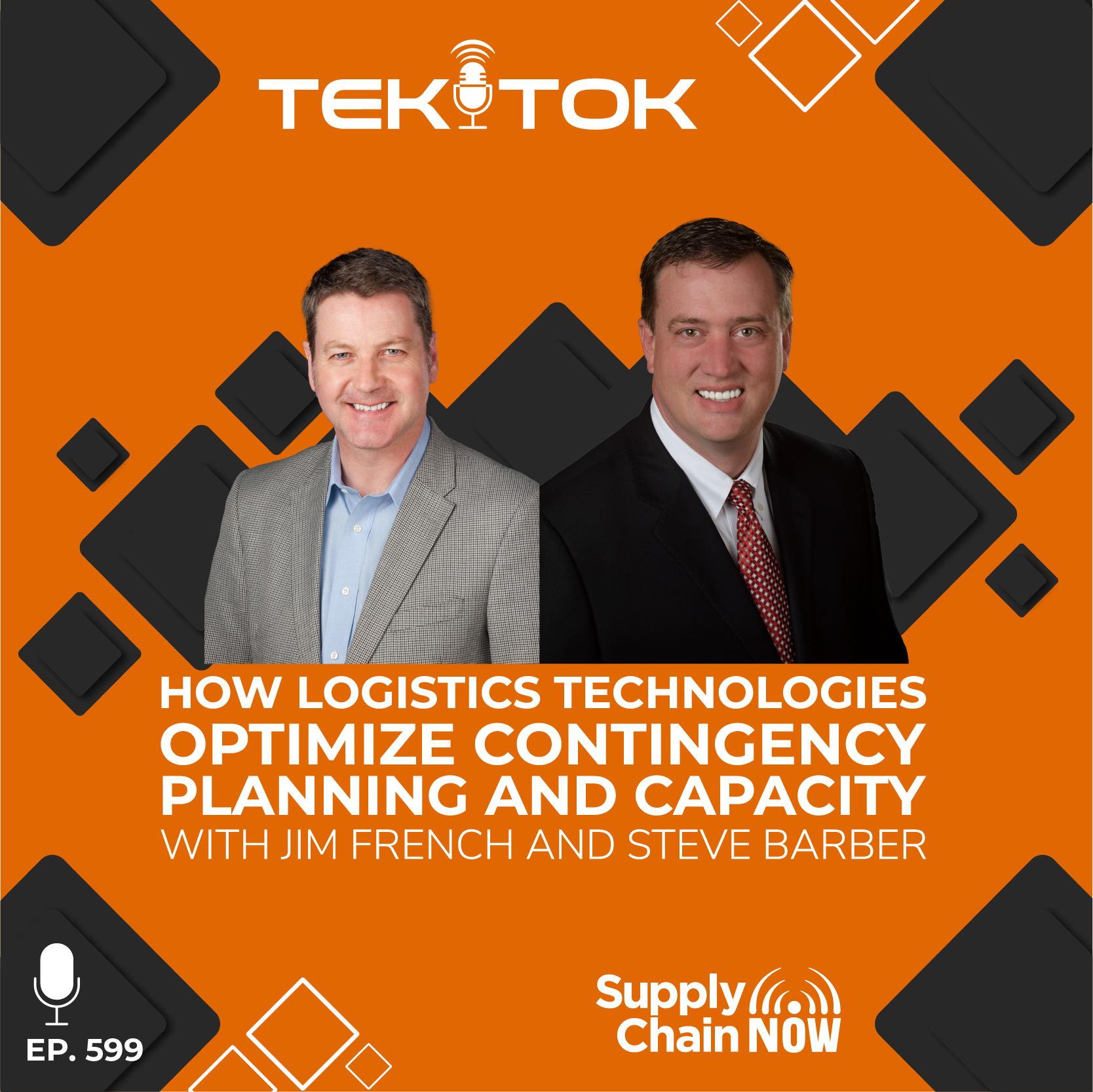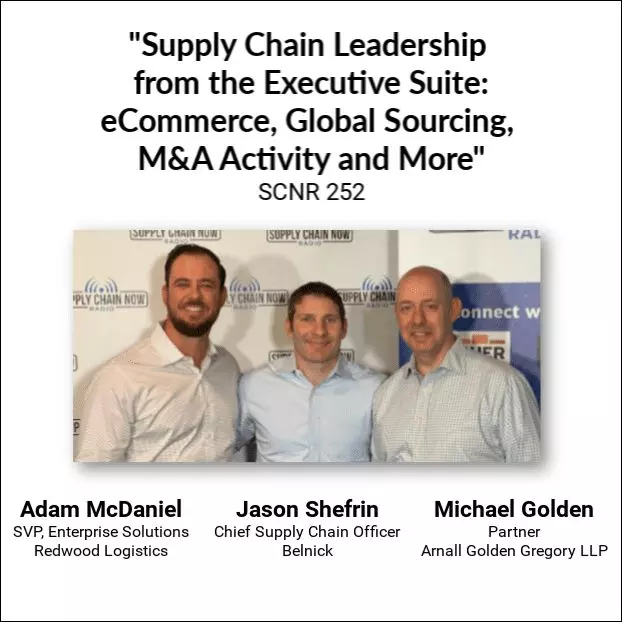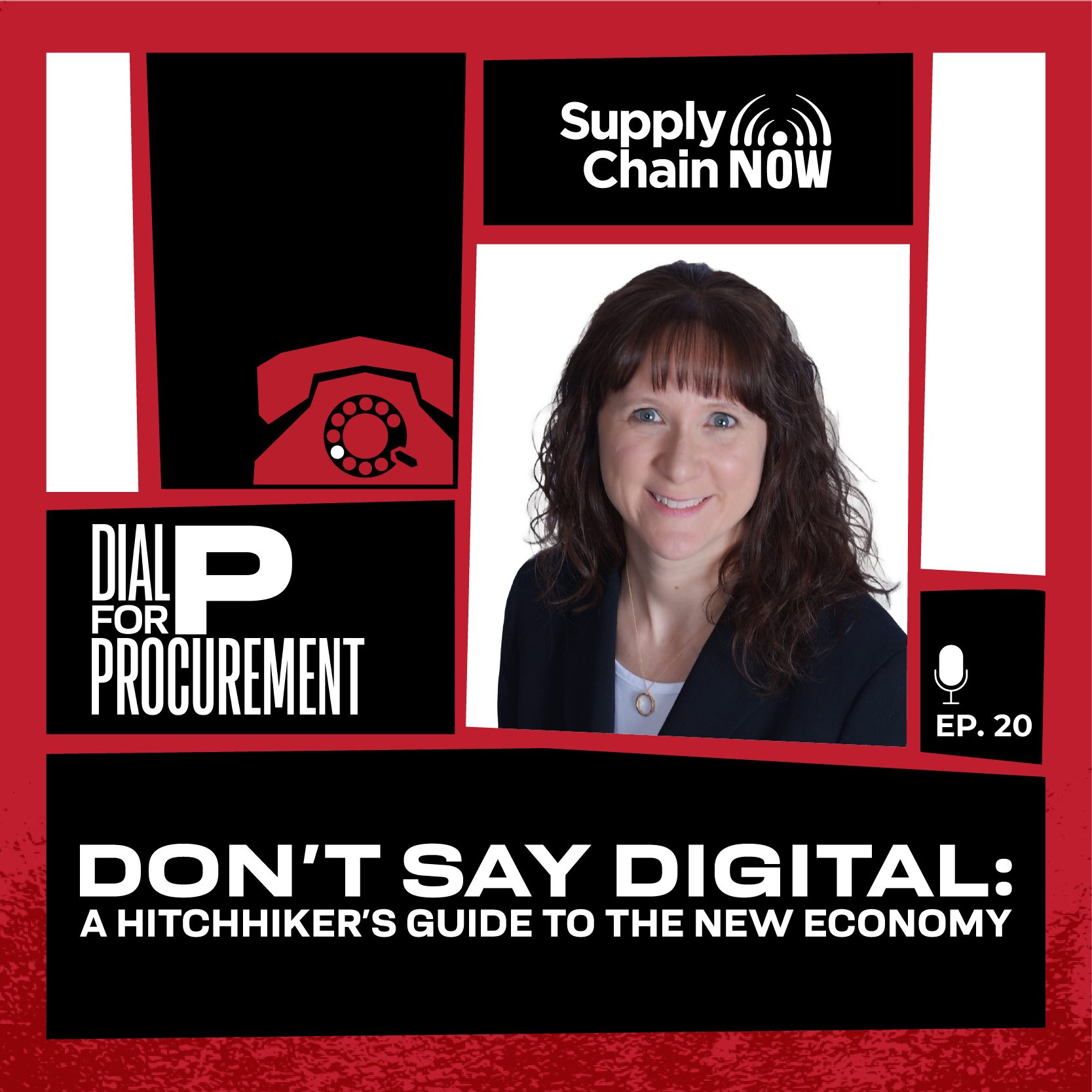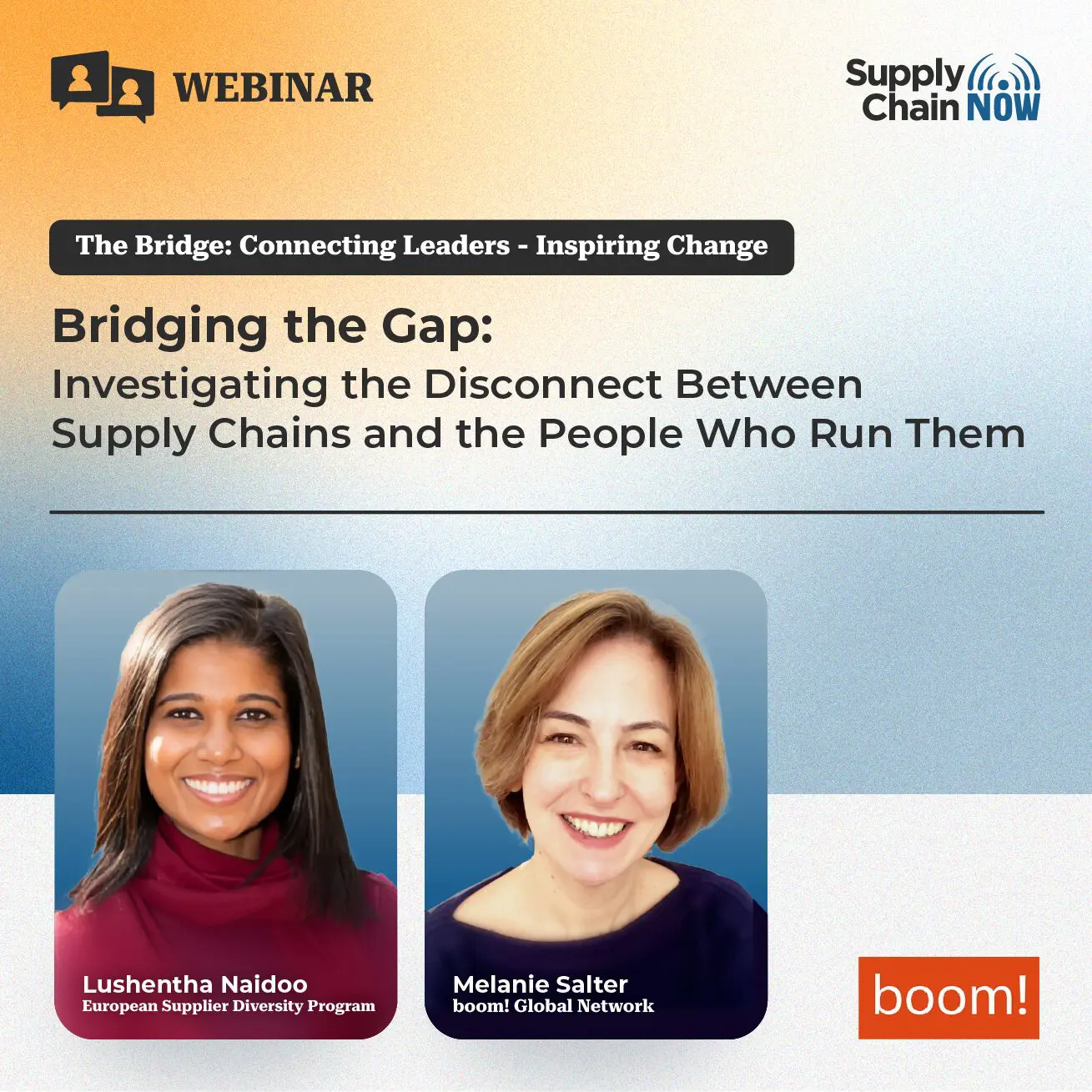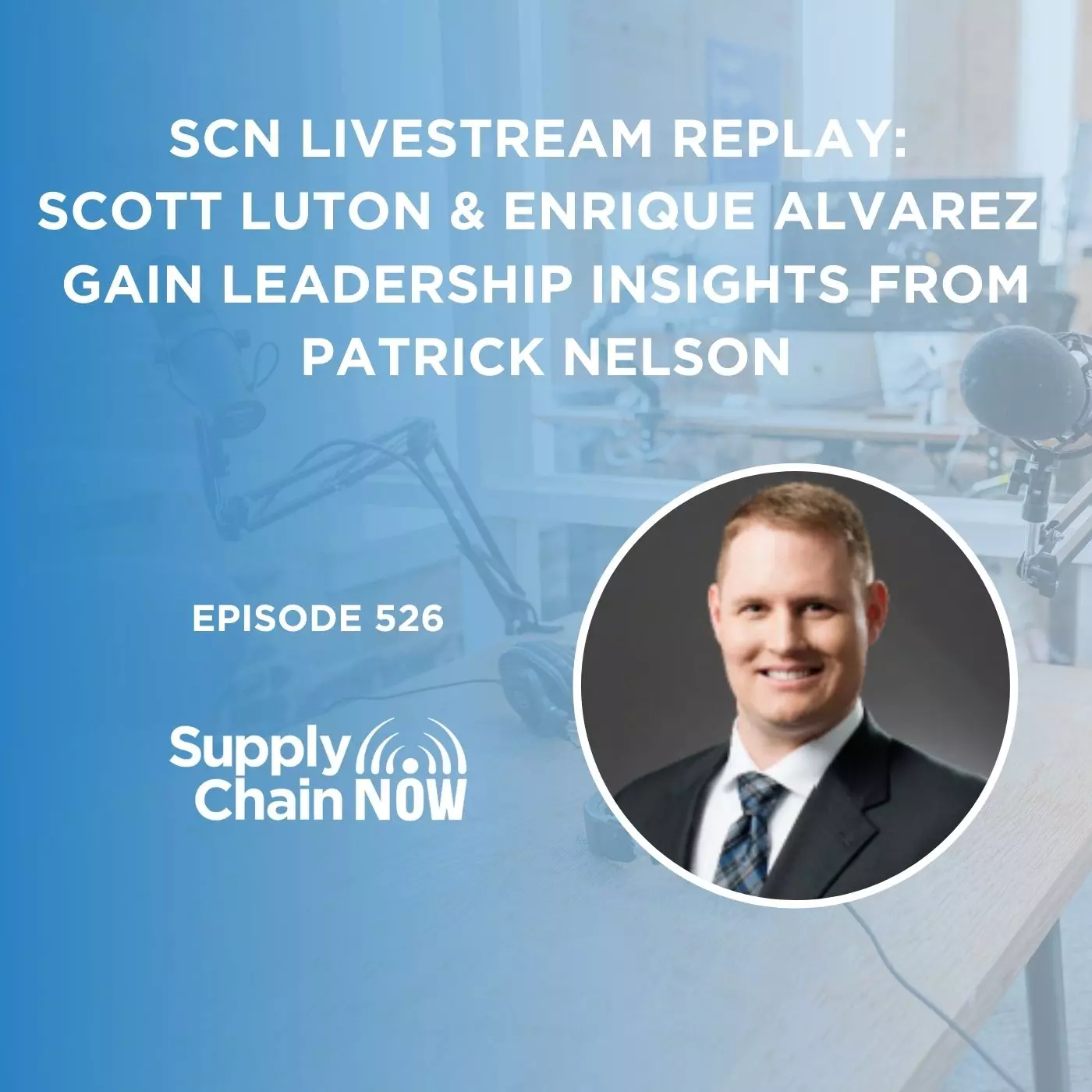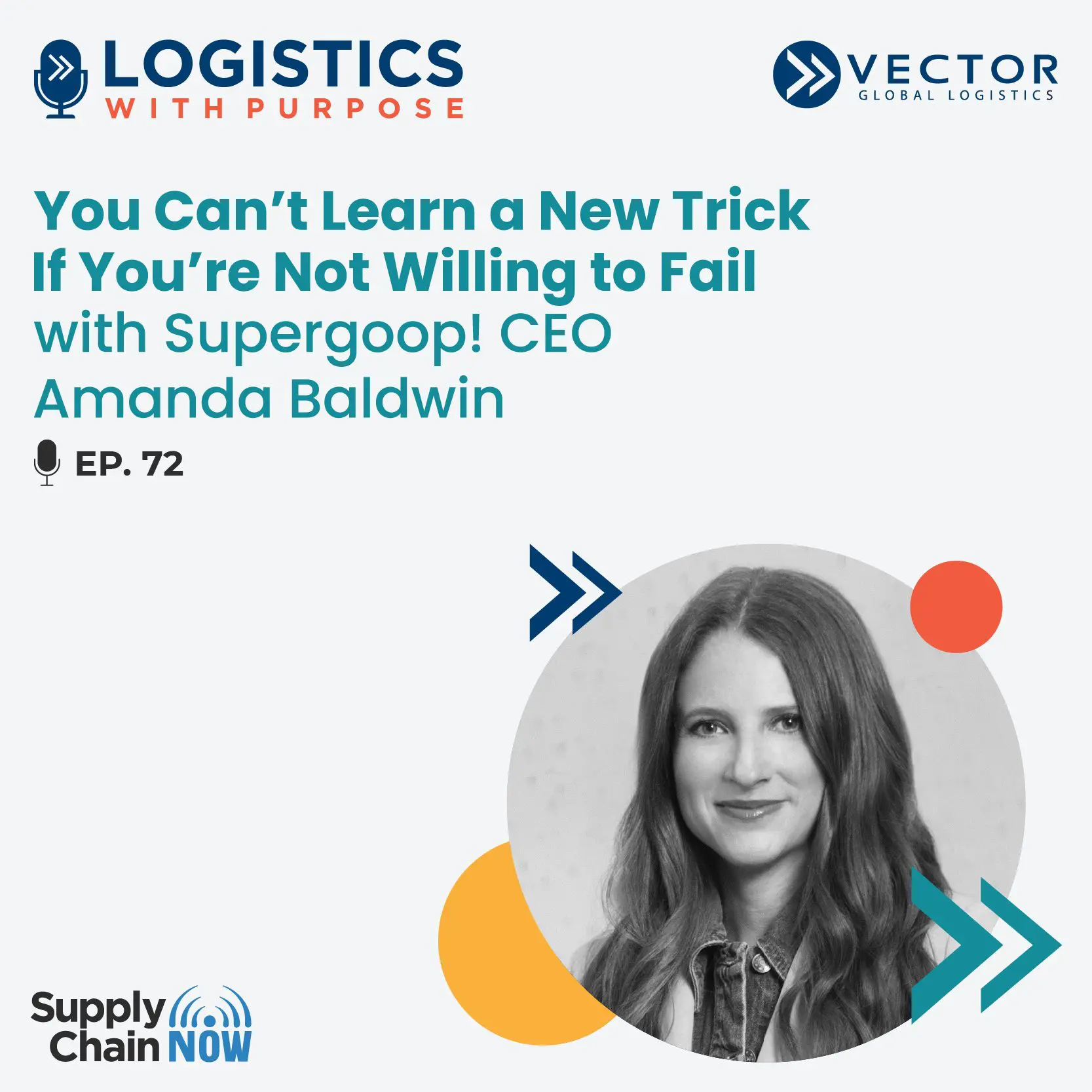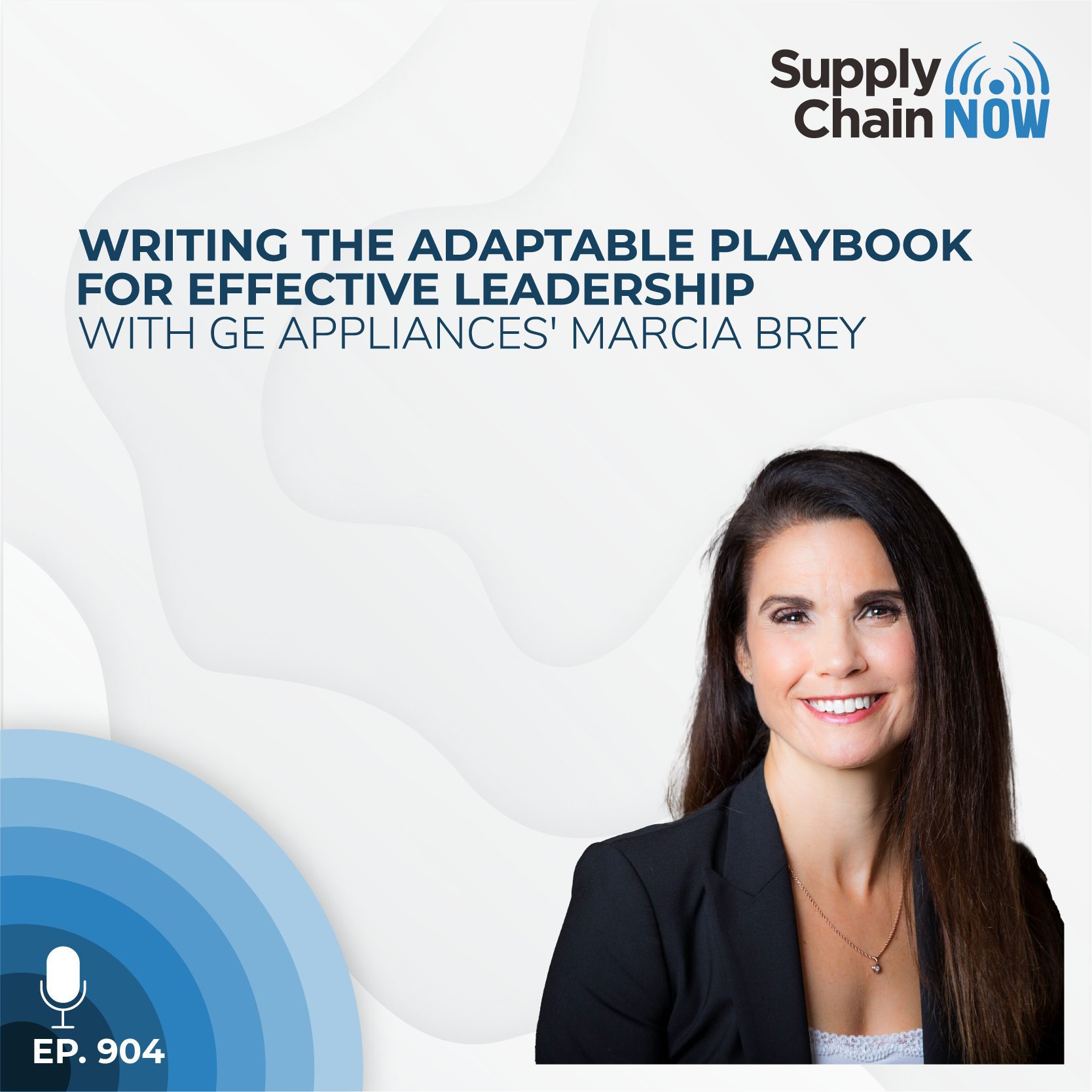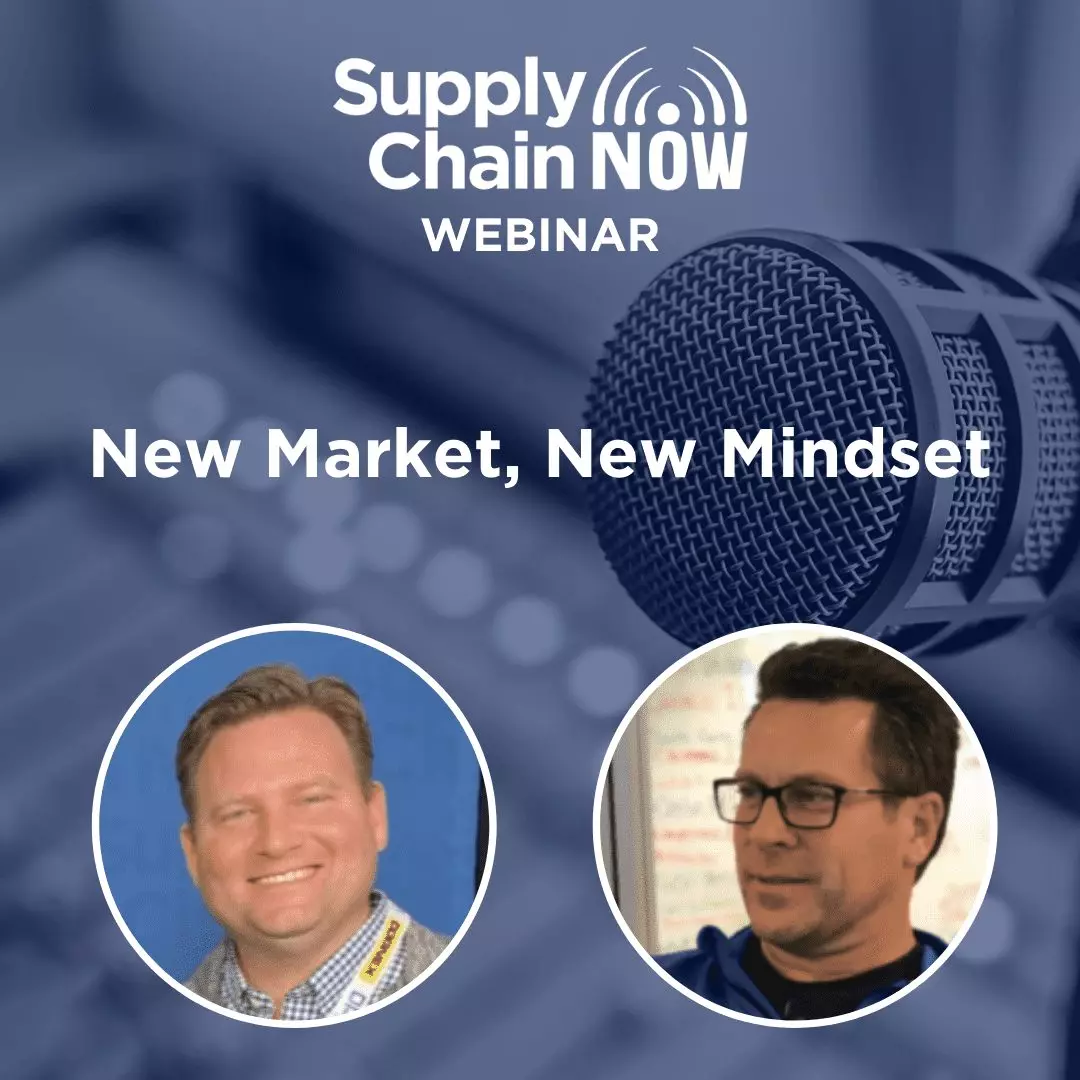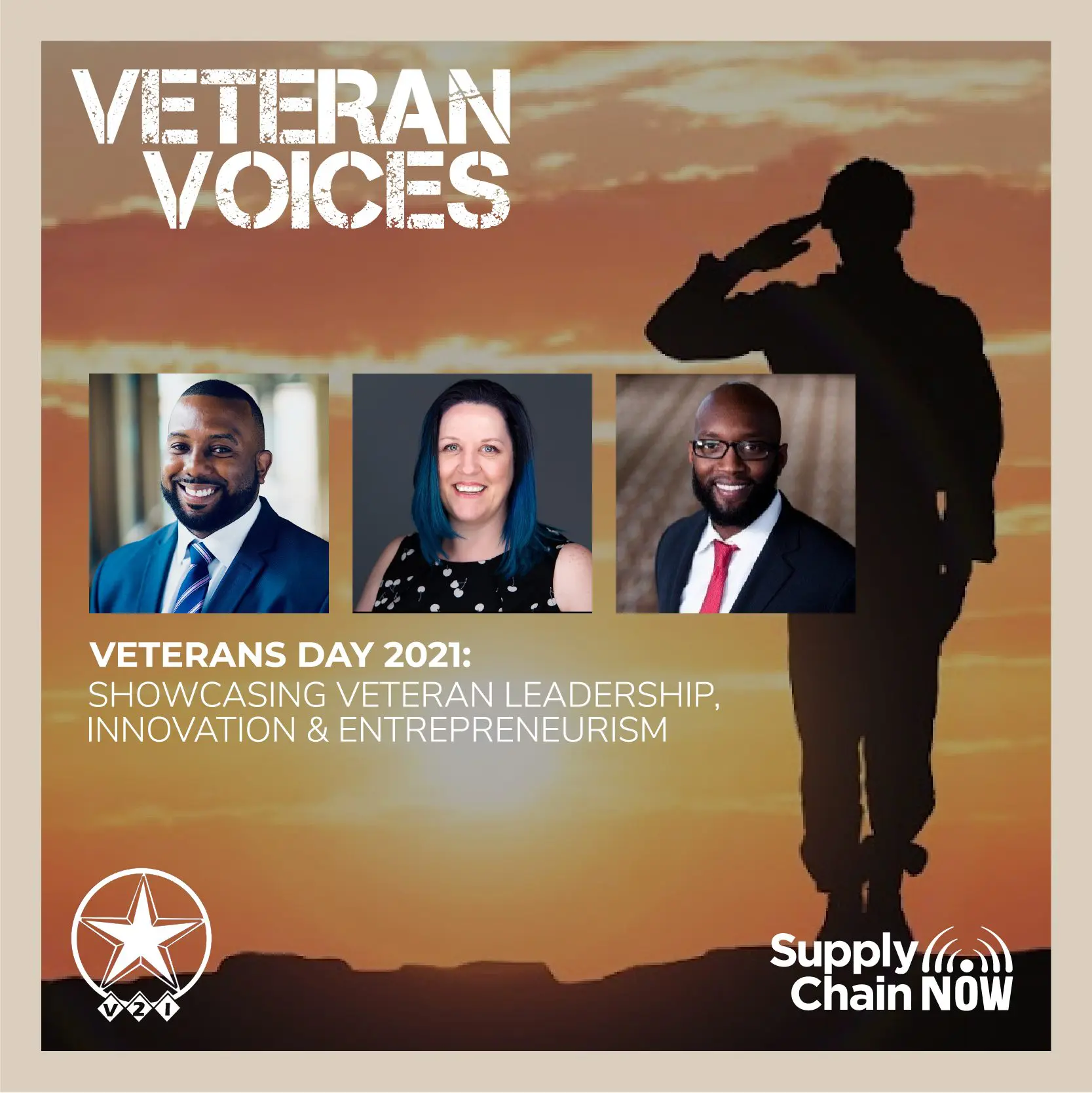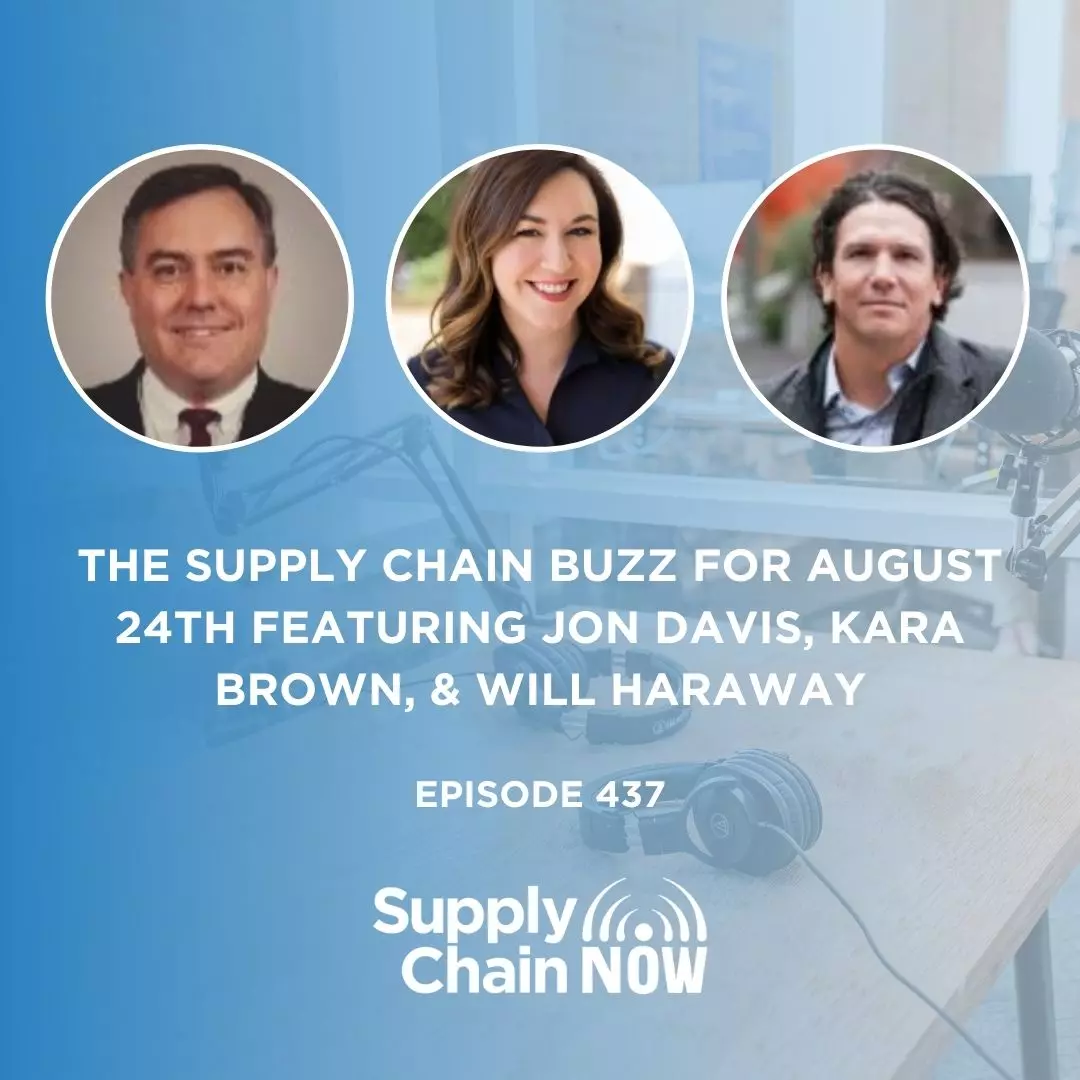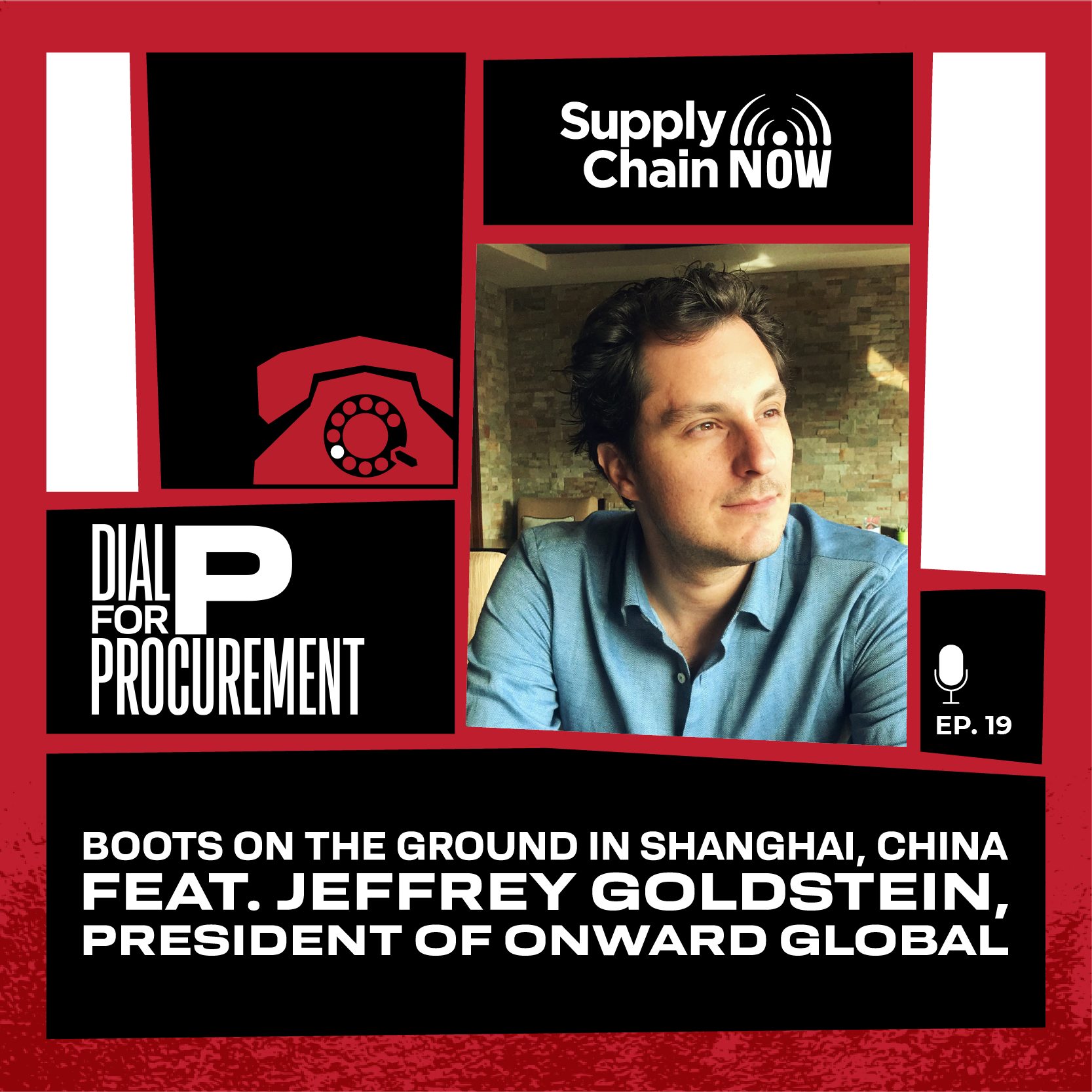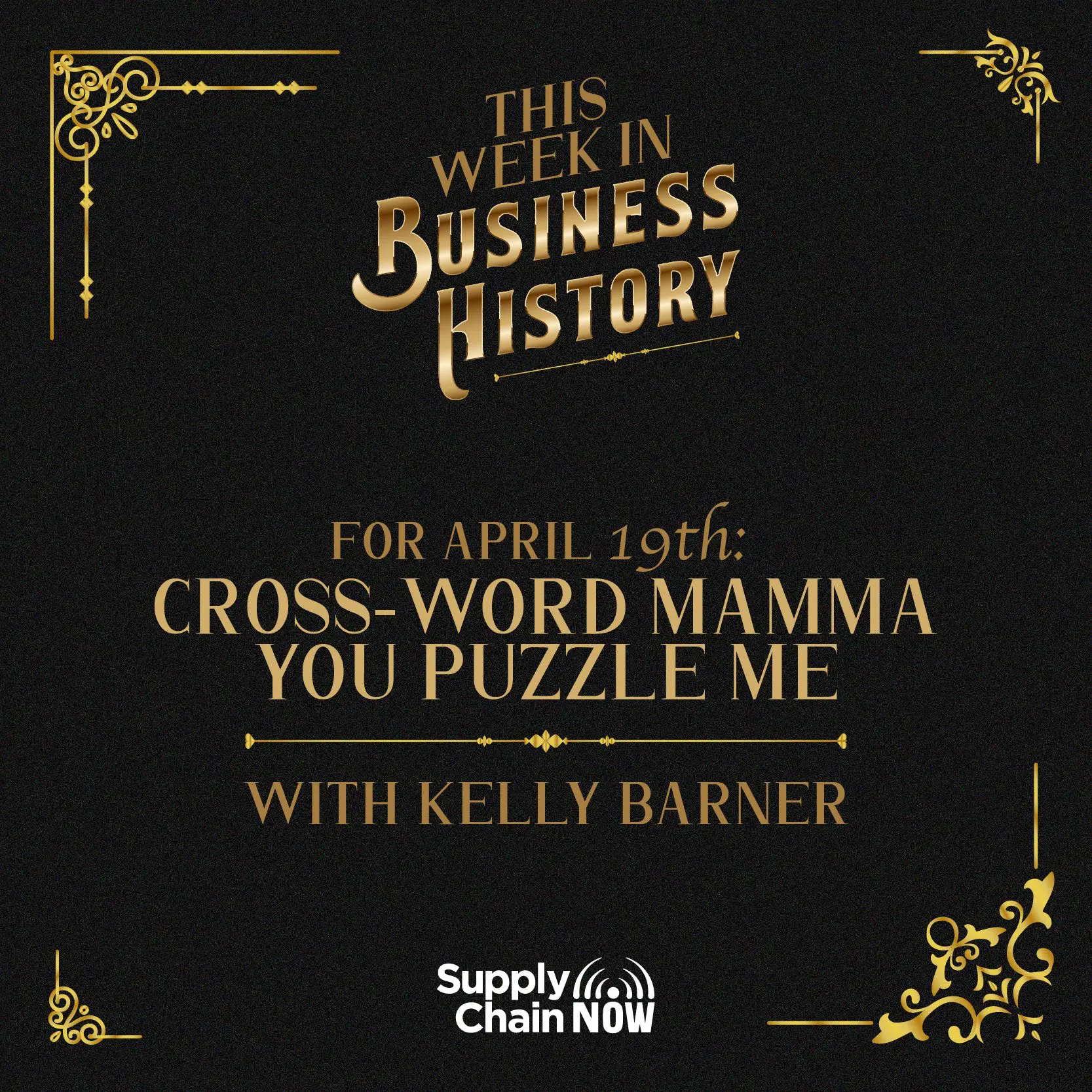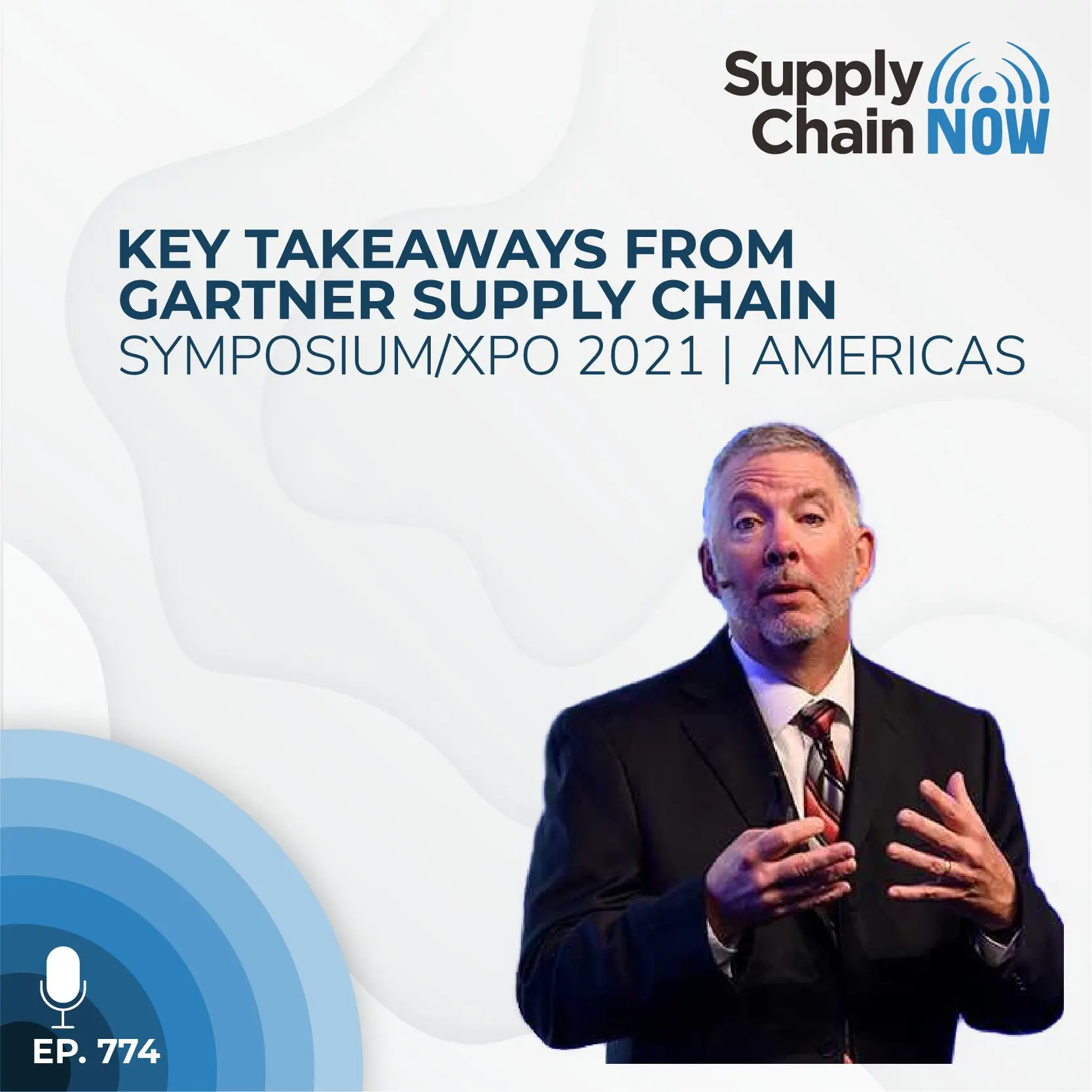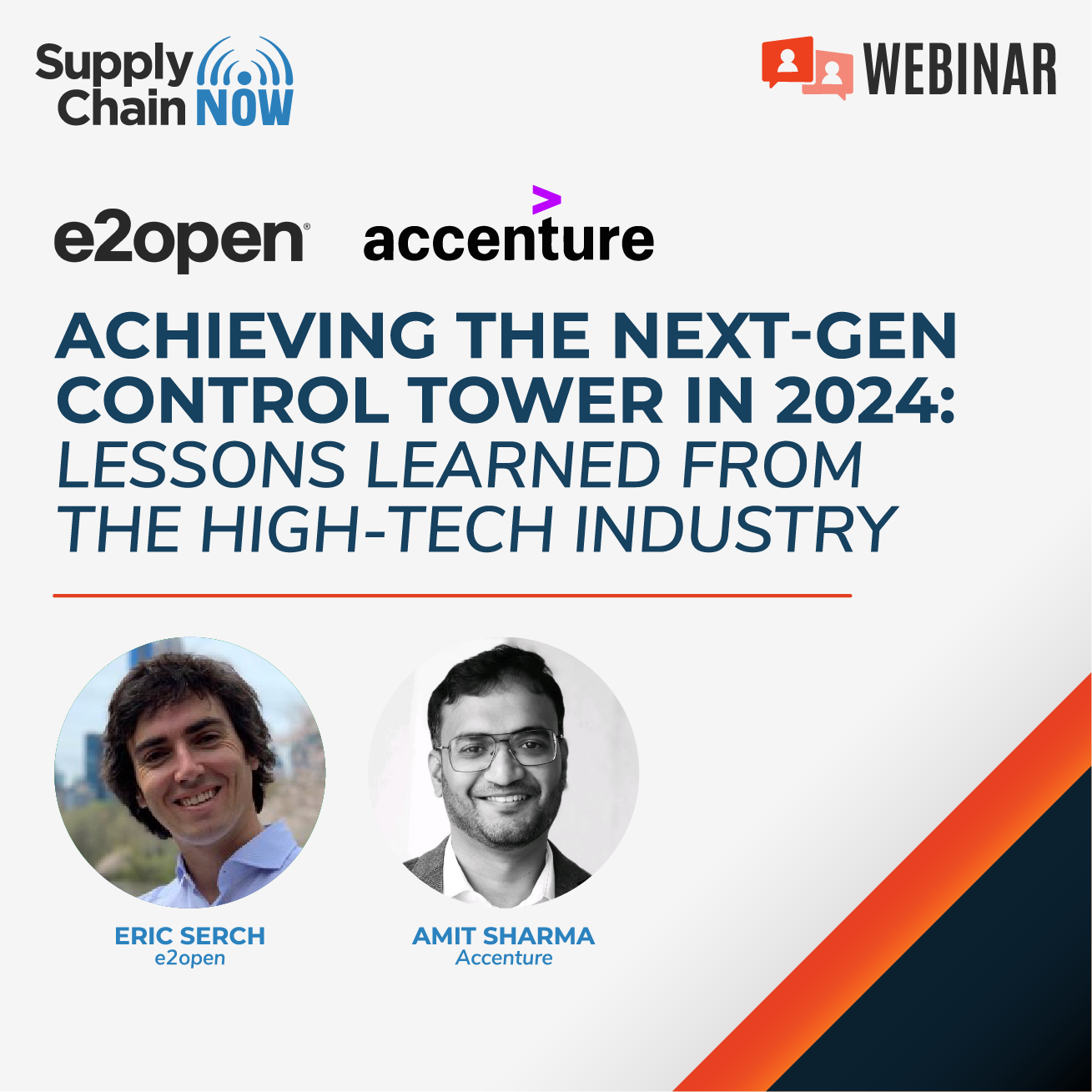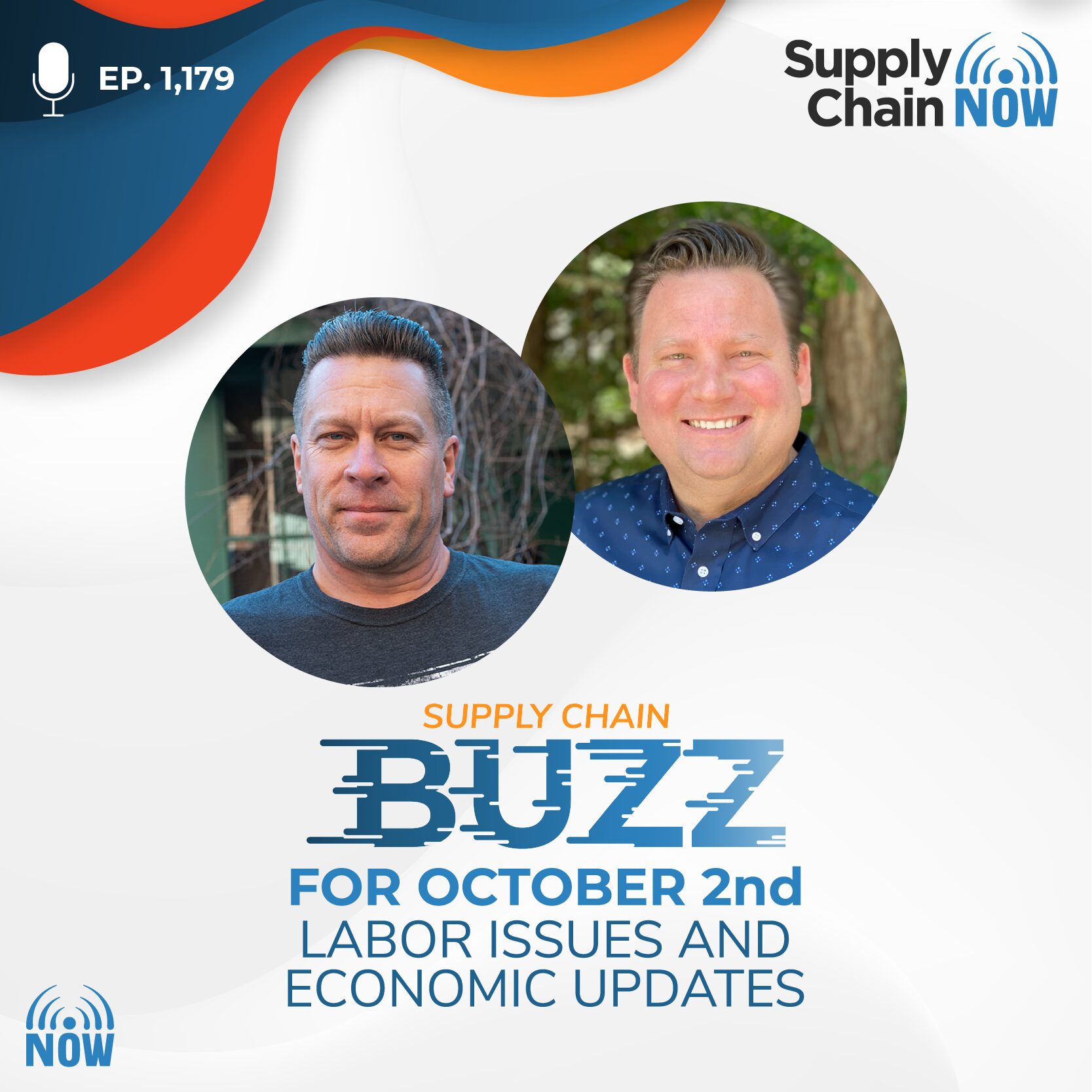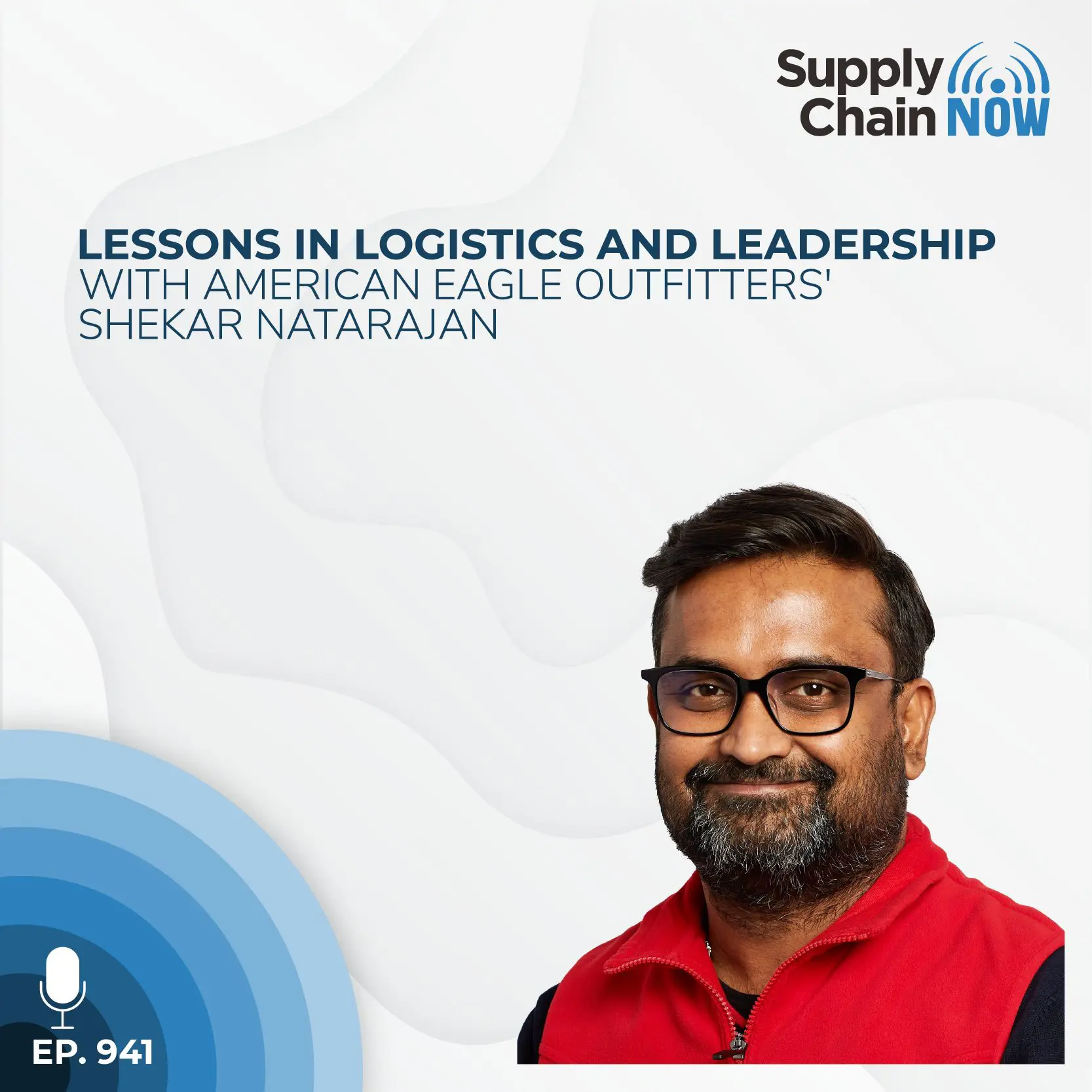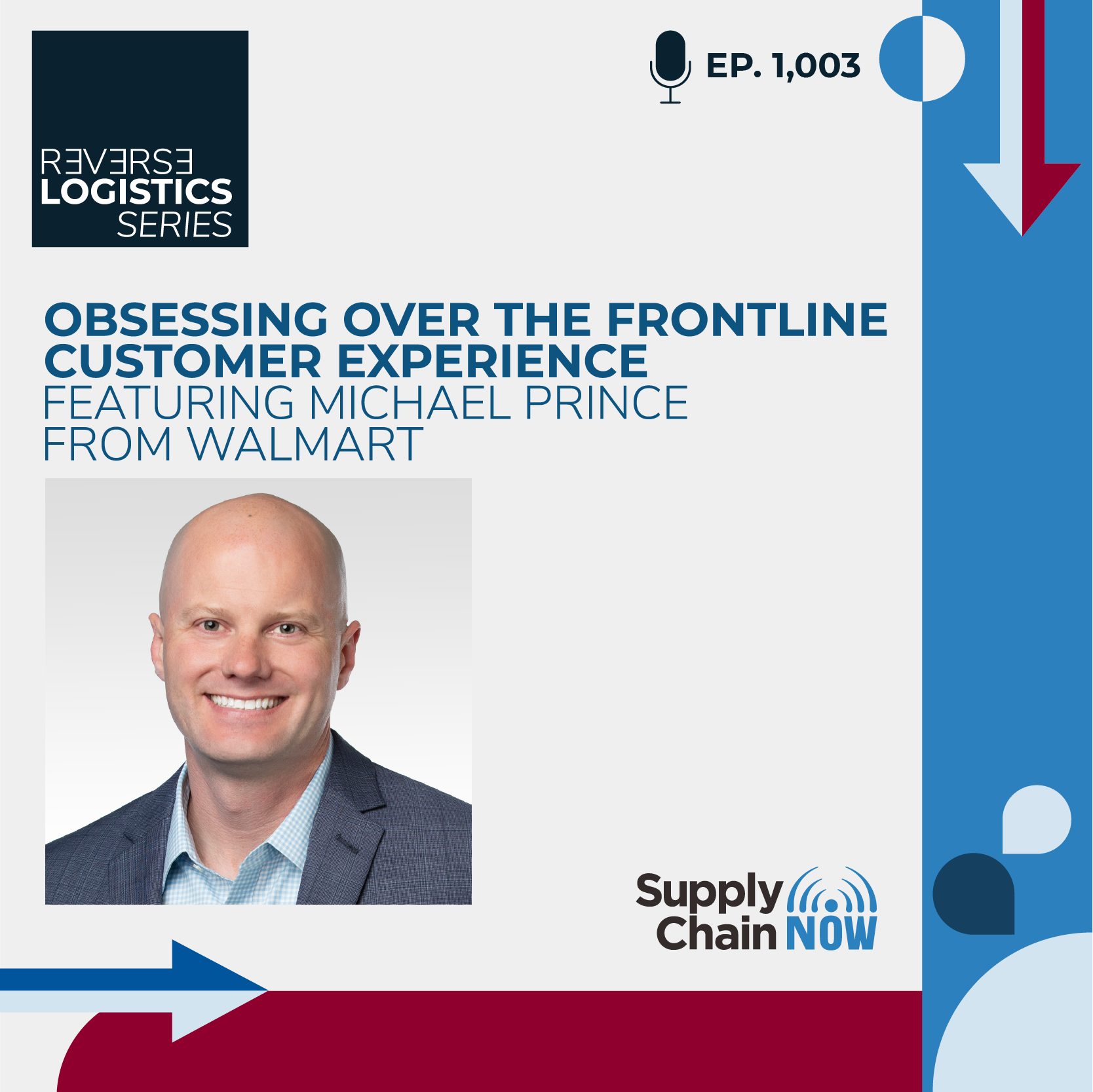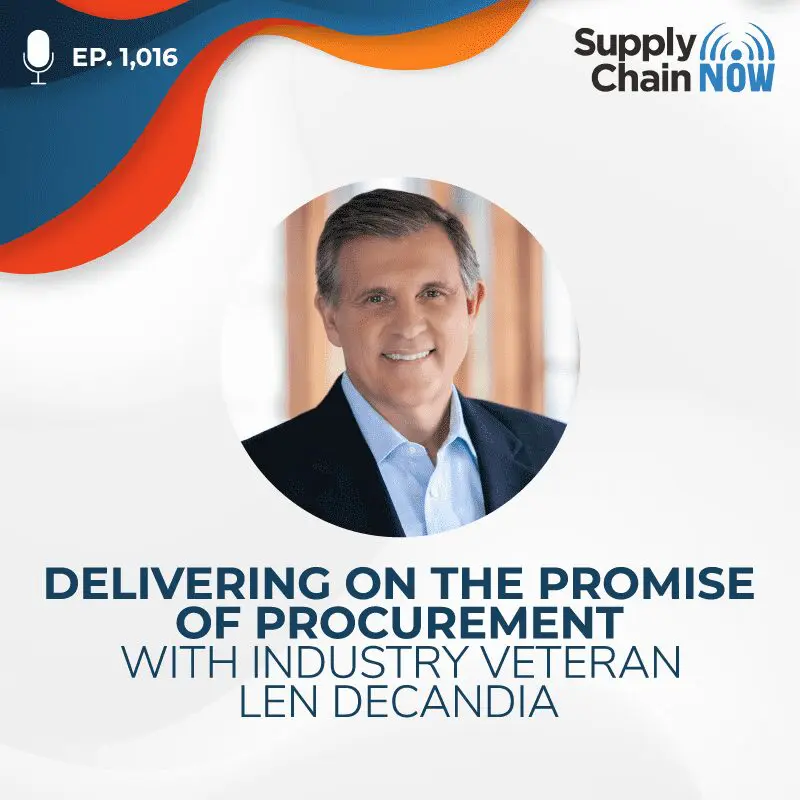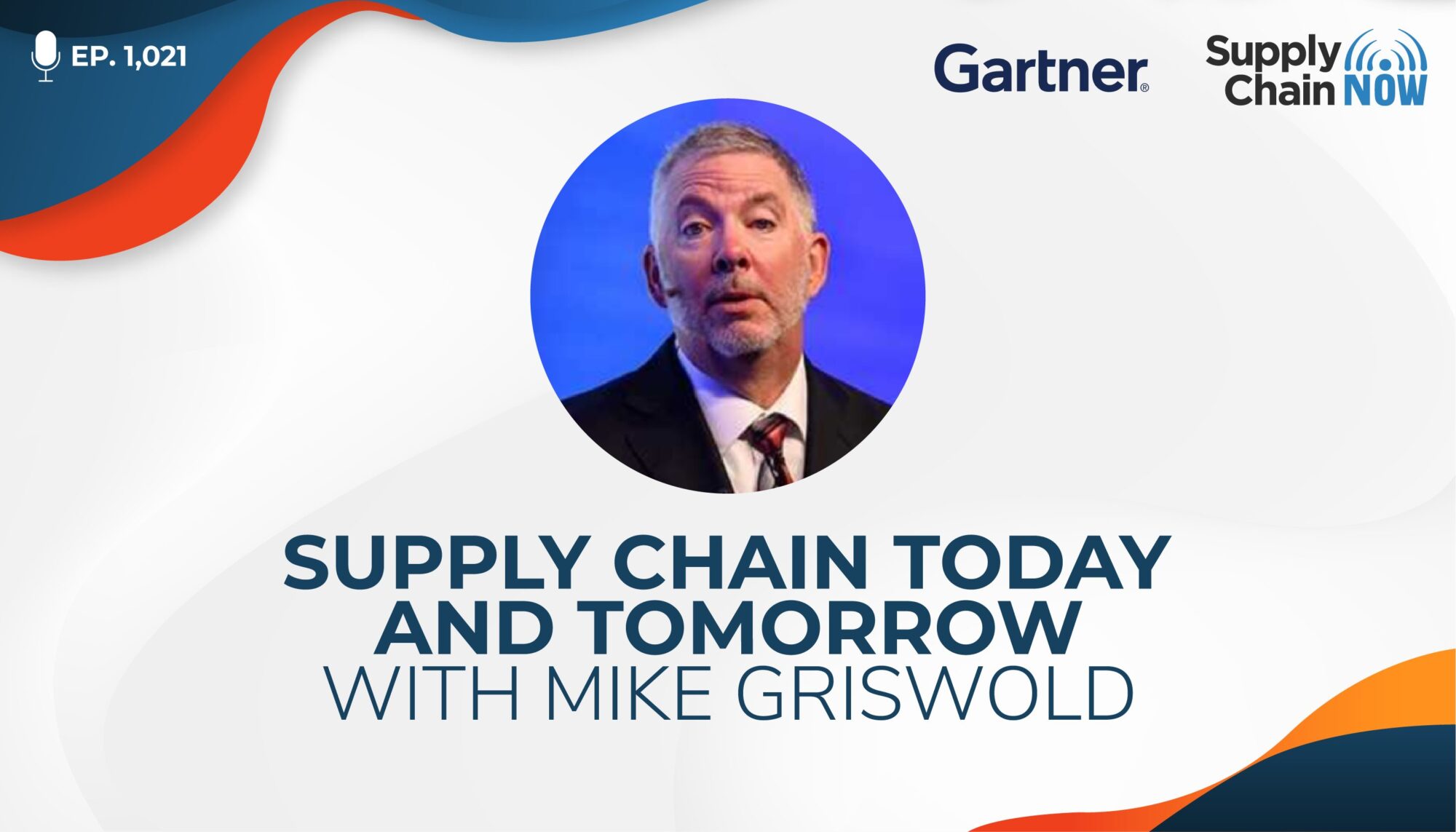
Organizations are starting to realize that there are some larger problems around environmental and social topics that they can't solve on their own. They're going to need help; they're going to need partners. Oftentimes those partners are people that 99% of the time they may actually compete with. That leads us to the idea that Chief Supply Chain Officers are going to evolve into Chief Ecosystem Officers.
- Mike Griswold, Vice President of Research, Gartner
Episode Summary
Mike Griswold is the Vice President of Research at Gartner, specializing in retail with a particular focus on forecasting and replenishment. He is responsible for Gartner’s annual Top 25 Supply Chain ranking and joins Supply Chain Now on a monthly basis to discuss the latest in retail supply chains from an analyst’s perspective.
2022 brought its fair share of challenges to global business. As we step closer to the end of the year, the ‘Big Guy’ himself – Santa – is now checking his list (and checking it twice) to see which supply chains were naughty and which were nice.
In this episode, Mike takes a broad look back over the year with co-hosts Scott Luton and Jenny Froome:
• Which supply chains he believes are moving in the right direction, despite constant headwinds
• His take on supply chain management and innovation in Africa
• How machine learning and AI allow companies to do the best they can with the talent they have in house
Episode Transcript
Intro/Outro (00:03):
Welcome to Supply Chain. Now the voice of global supply chain supply chain now focuses on the best in the business for our worldwide audience, the people, the technologies, the best practices, and today’s critical issues, the challenges and opportunities. Stay tuned to hear from those Making Global Business happen right here on supply chain Now.
Scott Luton (00:33):
Hey, hey. Good morning, good afternoon, good evening, Scott Luton and Jenny Froome here with you on Supply Chain. Now welcome to today’s live stream, Jenny. How you doing?
Jenny Froome (00:41):
I’m doing well sitting here in the dark power power cut in South Africa. But other than that, I’m doing very well. So sorry for the poor lighting.
Scott Luton (00:50):
No, no, no. Well, I think this is an opportunity to share some information that might be in Folks Blind Spot. Right, Jenny, on the last couple shows, you know, we do, uh, a series on supply chain now called Supply Chain Leadership across Africa. And on the last show, you and I were hosting Power Load shedding, claimed at least one, if not two of our guests. And you’re experiencing this same load shedding right now. So you’re dependent upon battery power there in South Africa, is that right?
Jenny Froome (01:16):
Yeah, we’re going through a bit of a crisis at the moment. Um, we’re having up to nine hours a day with no electricity, so it’s, it’s done in blocks. So we’ve just started our four and a half hour block here up in Joburg. And we also just had a huge electrical storm. So for a moment there, it felt like it was the end of the world, but we’re alright, we’re here and we’re ready to go.
Scott Luton (01:35):
Well, we should all be grateful, uh, for what we have and what we experience or don’t experience. And Jenny, we were on an interview earlier today with the great Nicci Scott, and it’s like you just keep making it happen. Regardless, whatever, uh, <laugh> challenges are thrown at you, you just keep on moving forward. So love that. Yeah. And great to have you here. Cause you know, Greg White, he’s on assignment somewhere. He’s, uh, building research or, uh, he’s doing something big, right? Secret mission.
Jenny Froome (01:59):
Secret mission.
Scott Luton (02:02):
All right. But folks, you’re in for a treat here. Not only is Jenny fr joining me as a guest co-host, we got one of our most popular and longest running series, it’s supply chain today and tomorrow with Mike Griswold with Gartner. So today, Jenny, it is an Ask Mike anything episode. So folks get your questions. I see Gino’s one of the first folks in, get your questions, bring them. Because I don’t think, Mike, Jenny, I don’t, Jenny, I don’t think Mike has seen a question that scares him yet, huh?
Jenny Froome (02:29):
Mm-hmm. No, I’ve, I always watch these ones and I always come away having learned something. And you’re right. He never shies away from answering anything
Scott Luton (02:37):
Ever, ever, ever. So great to have him. He’ll be joining us in just a minute. Hey, before he does, we definitely wanna share just a couple, uh, quick things with you. So one resource here, this is our, with that said LinkedIn newsletter. This is the image from the last one. Jenny, this always strikes me. I’m a big Norman Rockwell fan. This is like modern pseudo Norman Rockwell. That’s this beautiful image here of all these different folks from around the world. So we use that as kind of a vehicle to celebrate many of our listeners and subscribers and folks that are part of, at least the, with that said audience, and had a blast. Jenny, you and I have commented on, on some of these, uh, every, every now and again. What’s your thoughts on this newsletter here?
Jenny Froome (03:17):
Oh, I, I think it’s great. And you always manage to bring such interesting and topical articles, and it’s a definite must read.
Scott Luton (03:26):
Well, we try. I I was kind, shame on me. I was fishing for a compliment there, Jenny. I shouldn’t do that. So <laugh>. But hey, I
Jenny Froome (03:33):
Think it’s rubbish. I don’t bother to do that. What was I gonna say?
Scott Luton (03:37):
Hey, we have a blast doing it. And I really like this one. Our team took a minute to kind of dive into, uh, the subscribers and lift them up cause they’re doing some really cool things. Uh, so y’all check that out. You can venture over to our supply chain Now Company page and subscribe to that or, or check out any of the recent, uh, versions. And then also on, on a more serious note, one of the most rewarding initiatives we’ve been a part of this year is, uh, led by our friends at Beter Global Logistics. And they have been pushing this leveraging logistics for Ukraine Initiative going on probably six months now. And Jenny, we gotta get updated figures. But already over 500,000 pounds of vetted humanitarian relief has been shipped via this effort to families in need and folks in need in Ukraine and Poland and elsewhere. The next planning session is December 13th, 11:00 AM Eastern Time. Folks, you can join. You don’t have to give, there’s no expectation you can join and just, and kind of be a fly on wall and absorb all the, the market intel and, and, um, intelligence and information that’s shared. And if you’re in position to, to share, give of any level, that’d be wonderful too. But, uh, Jenny, these efforts, I mean, this is why it’s such, such a special time to be in the world global supply chain,
Jenny Froome (04:47):
Right? Absolutely. And well done to Vector Logistics for the initiative and to you guys for supporting this. I was talking to a colleague today who has a, a colleague in Ukraine who’s trying to keep his company going and has to come off calls because they have to go down into bomb shelter. And I’m sitting here complaining about no electricity, and you just, you know, you have to really put things into perspective,
Scott Luton (05:10):
Man. So well said, Jenny. Uh, so folks, if you’re so inclined, our team has dropped a link to the planning session. Again, just gotta sign up and then you could just be a fly on the wall if you’d like, or you can finally jump in and, and participate. So that next session, Tuesday, December 13th at 11:00 AM Eastern Time. Okay, let’s say hello to a couple quick folks, and then we’re gonna bring in the one and only Mike Griswald. Jenny, I’m looking forward to this Gene. Pleasure. As I mentioned, Gino, uh, is with us. Gino, I’ve just revisited your email. Gino’s getting ready to share some of his expertise with our global supply chain now family. So we’ll be reconnecting soon. And Jenny, did you know Gene Pledger is a rock and roll drummer in his spare time?
Jenny Froome (05:51):
Fantastic. Yes. And lots of letters after his name as well, so must be jolly,
Scott Luton (05:58):
Jolly clever. He is. Tom Rry is with us as all, uh, as Hey Tom as well. And of course Tom, we all love that. I, I’m, I’m about to say hat, it’s not, hat doesn’t do it justice. What would you call a, a derby? Is that, that’s not Derby? What kind of hat is that, Jenny?
Jenny Froome (06:12):
Oh, now you’ve got me on the spot. I don’t know. It’s, uh, I don’t know. I dunno. It’ll come to me when the show’s finished, I’m
Scott Luton (06:18):
Sure. Well, it’s iconic. And Tom, hope you’re doing well, and great to see you here as well. Welcome everybody. Y’all keep the comments coming. Keep the, your questions from Mike Griswald coming. We’ve, we’ve already had the team has, our team has been pulsed, so we’ve got, uh, a little list we’re gonna start with, but we’d ha be happy to supplement that list with what y’all may be on your mind. And hey, really quick, Tom says, it is an a Cuba fedora. How about that?
Jenny Froome (06:44):
It’s Australian. It’s, it’s the, a Cuba an Australian brand, not that we’re advertising. Yes,
Scott Luton (06:49):
AHHA. Look here,
Jenny Froome (06:50):
Edit it. Before you told
Scott Luton (06:51):
Me Tom has owned the money, I love it. Learn something new every day. But, uh, welcome Tom rafting. Okay, so with no further ado, Jenny, you ready to get down to work?
Jenny Froome (07:00):
I’m
Scott Luton (07:00):
Ready. I am too. So with no further ado, I’ll welcome in our friend, the one and only Mike Griswold, vice President Analyst with Gartner. Hey, hey, Mike. How you doing?
Mike Griswold (07:11):
Hey. And do well. Thanks. Hi, everyone. Jenny, good to see you. Hope everyone is doing Hey, Mike. Well, wherever they might be,
Scott Luton (07:16):
It is, uh, a delight to have you back. And, and really it’s, it’s, it’s really cool to have you back and have Jenny who all I’m pulling her comments from our cheap seats all the time in these sessions. It’s so neat to have my friend Jenny here on this episode. As I said, Greg White is on assignment somewhere, right? Mike?
Mike Griswold (07:32):
Yeah. Assignment. We use that loosely around here once a month, right? So yeah, he’s on assignment, everyone.
Scott Luton (07:38):
Oh, I love it. Okay, so let’s have a little more fun before we pose some hard-hitting questions to Mike Griswold. I wanna pose a fun, warm question to both of y’all. So y’all know I love history and business history while tomorrow December 9th is the 10th anniversary of Michelle Norris becoming the first African American female regular co-host of NPRs National Public Radios All Things Considered program. It is, it’s like comfort food. I’ve always thought comfort food of listening. And I’ll tell you that in conjunction with, um, Paul Harvey’s, the rest of the story, which I heard a lot as a kid. Those are two of the, the shortlist reasons that I’m doing what I’m doing now. Cause those two folks, Michelle and Paul, really inspired me. So using that as a backdrop, and Mike, let’s start with you. What was a radio or television show that may have inspired you in your journey?
Mike Griswold (08:28):
So I think when, when we were thinking about the, the top 25 and how did we want to kind of share that in the reveal, and how did we wanna bring that out to organizations, one of the things we’re thinking about is I watched probably more than I should, uh, a fair amount of espn. And there’s a couple of shows around the horn, pardon the interruption, where you’ve got people in a very conversational type of environment just bouncing things off, uh, b bouncing things off each other, either agreeing or disagreeing and just really having a dialogue. And we thought, wouldn’t that be great to do that around our supply chain Top 25? So when we were doing the Reveal live in, in Phoenix, uh, whether it was a m r or early days of, uh, the Gartner acquisition, you know, we had analysts come up on stage and talk about the companies as we were revealing them in what we felt was a very conversational, just like, you know, if you were at a bar discussing your favorite sports team. So that format where you give people an opportunity to, to share an idea and have a point and a counterpoint and, and just have an unscripted discussion, that really, I think was, was one of the things that’s helped us, you know, have the success we’ve had around the top 25.
Scott Luton (09:47):
I love it. And have fun while you do it. I mean, yes, what, you know, that creates more interest for folks that are consuming and watching the, the conversations take place. So Mike, I never stopped to think about what could have been some of y’all’s inspiration there. And it makes total sense. Uh, so Jenny, that’s gonna be tough to beat. Uh, so <laugh>,
Jenny Froome (10:06):
It’s gonna be very tough to beat. It’s a very clever answer as well. So my, my rather flippant answer, the first part of it is that I always wanted to be able to swim with Flipper. And I used to dream, dream of swimming with Flipper,
Scott Luton (10:19):
A wonderful dolphin. Yeah. Yeah.
Jenny Froome (10:22):
And then my, my less flippant is in, in memory of Kirsty Alley and Cheers, which is one of the funniest shows in my opinion, ever on television pop from Golden Girls. But that inspired me because the central characters are reformed, or a recovering alcoholic who bought a bar and for me aged, I don’t know, in my early teens that was like, why would you put that temptation in front of yourself like that? And what self-control? So it’s always been a, Sam Malone has always been a, a, a character of strong self-control for me. Oh, except when it came to Women
Scott Luton (10:57):
<laugh> <laugh>. We’ll save that for another show, right? Yeah. Mike, were you a big Cheers fan?
Mike Griswold (11:01):
I was a huge Cheers fan. I I’m glad you brought that up, Jenny. One, when we lived in Massachusetts, you know, we, we made the, the obligatory tour over to the, to the Cheers bar. The, the characters on that show. I mean, I, I think in many ways Cheers, probably paved the way for Seinfeld from the standpoint that you, you can have this eclectic group of characters that hang out in a particular place, a bar, you know, Jerry’s living room, and they have these unique conversations. You know, I, I would equate Cliff Clavin with Kramer, right? Just the, the idiosyncrasies that they had, the, the things that would come out of their mouths. I mean, it was amazing. I don’t know that that Seinfeld had Norm, but Norm in and of itself was an incredible character. And it was just, uh, one of those timeless shows I think
Scott Luton (11:51):
Agreed. You know, norm, now that I think about it, norm and Kramer both kind of had very memorable entrances, right? The whole bar round around <laugh>. So
Mike Griswold (12:01):
They Norm, yes.
Scott Luton (12:04):
Alright. And by the way, I can’t let the one mention that you, you dropped there, Jenny, a moment ago. The Golden Girls. And I am a, am a huge fan that yeah, that was one of the best, funniest, best written shows of its time. Yeah. And, uh, man, the story. Okay, so let’s see here. Tom says, as a kid, he loved watching Tomorrow’s world. Mm-hmm. <affirmative>, which was a program showcasing some of the greatest latest inventions. Jenny, Mike, does that ring a bell for y’all?
Jenny Froome (12:32):
I, yeah. More as well, not for me. It’s an English show, right? I always used to find it really boring whenever that was on <laugh>. I always used to write, cause you know, I like to watch Golden Girls and I didn’t like scientific things.
Scott Luton (12:44):
So <laugh>, we’re gonna have to look that up. Uh, appreciate you sharing Timem. Okay. But
Jenny Froome (12:47):
It was very clever and it was ahead of its time as well. I,
Scott Luton (12:50):
Okay, well, so let’s shift gears cause we’ve got the next, uh, I don’t know, 40 minutes or so to ask Mike Griswold anything. Now, Jenny, you’ve got some great questions that, that I’m gonna, uh, get you to share in just a second. But I wanna start, you know, I mentioned on the front end, this is one of our longest running series here, and we’ve had all kinds of, of conversations. We’ve gotten a lot of feedback from our listening audience. So Mike, out of all those shows, probably going back, uh, I don’t know, two and a half, three years now, maybe, what is one of your favorite shows you’ve been a part of?
Mike Griswold (13:22):
I think as, as I was looking at that question, Scott, I was really kinda racking my brain because I, I just have so much fun doing this all the time, right? Every month that they’re always fun. But probably the one we did, it was either earlier this year, maybe the end of last year, where we, the show was all about movies and movie lines and how they related to the supply chain. And I, I like that cuz it was fun, right? We got lots of of audience interaction around the movies. And one of the things that I think helps people is to give them kind of images or, or things that really can relate to the problem we’re talking about. So Jaws, we’re gonna need a bigger boat, right? That’s an s n o P problem, right? Those types of things. You know, I love doing that. And, and we had talked at one point, I think someone had made this suggestion that maybe we should do this to music, right? And songs and song lyrics and how do song lyrics tie to supply chain. So I really, really enjoyed that one. And, and certainly if, if people are interested, we’d love to do a sequel to that particular episode. But that, that was my favorite. Love
Scott Luton (14:33):
It. And we’re gonna book January, that’s gonna be the music one, and then we’ll do the sequel to the, uh, movie supply chain movies, part two, because we all had been operating at Ludicrous Speed, which is a little tip of the hat to, uh, tip of Tom’s hat to Space ball, space Boss. Okay. So Jenny, were you part of that episode with where we talked about No, no,
Jenny Froome (14:53):
I haven’t We, Mr. Definitely. Yeah, that sounds fantastic.
Scott Luton (14:56):
Okay, so here’s, here’s your challenge. Here’s, here’s the one. Ask Jenny, anything before you leave here today. You gotta come up with your cheesy movie analogy to, to whatever we’re talking about. You can pick whatever. How’s that sound? Sounds great. And hey, to our audience, as we, as we mentioned on the front end, this, uh, load shedding that Jenny’s dealing with, if Jenny happens to disappear, our team will be fighting to get it right back in the stream, but we’re gonna keep on driving, so great to have Jenny and Mike with us. Okay, so we’ve knocked off the first, we’ve, we’ve really uncovered Mike’s love for, uh, movies and supply chain and the intersection. Jenny, where are we going next with Mike?
Jenny Froome (15:32):
Well, I think Mike just created a really good segue into the question I was going to, to ask because there’s, of, of all the supply chains ever, father Christmas or Santa, his supply chain has got to be one of the most efficient and one of the most hard to keep resilient and all the rest of it. So Mike, I’m quite sure you’re not gonna be able to share what the ones are that are going to be on his naughty list, but can you share with us some of the ones that are going to be on his well done good list post 2022?
Mike Griswold (16:05):
Yeah, I, I think it’s interesting and I tend to go back to our supply chain top 25 population when, when I think about supply chains that are definitely going in the right direction, have, have been going in the right direction. And as I looked at that list, and I thought about the question, there’s three companies that I would use to maybe answer that question, Jane. The first is j and j. So Johnson and Johnson, I think they did a lot of really good work during Covid and getting us a vaccine and getting it to market. And I think they continue to do some really cool things with their supply chain around other types of medicines and things like that. And I do think as we go into kind of this winter season, which for some people could last into March and April, right? Depending on where you live, right?
Mike Griswold (16:50):
That cold and flu season and just getting antibiotics to places and people that need it, giving people choices around, you know, do you wanna get a vaccine or not? I, I think they’ve enabled their supply chain for people to be able to make who want to make those choices to be able to, to get, you know, the things that they need. The second one I would call out is Microsoft. You know, they were a new entrant in our top 25 last year, and I think a lot of people were like, what’s Microsoft doing in here? And do they even have a supply chain? And if you think about the diversity of their business between the devices and all the stuff they do in the cloud and for the cloud and the ability to support that in a sustainable way. I think oftentimes when we think about things in the cloud, we think about data centers and, you know, to, to the, what you’re experiencing now, Jenny, the strain, the infrastructure that data centers can put from electrical perspective, but some of the things that Microsoft is doing to alleviate some of that drain on the infrastructure, they’re just a really interesting company to watch.
Mike Griswold (17:52):
And they have an incredible passion for the environment and the things that they do from an e sg perspective, I think are setting them up really well. And the third, Mike,
Scott Luton (18:01):
Can I comment really quick? Oh, please. Uh, also as in the last few weeks, Microsoft has rolled out, its, uh, I think it’s called a supply chain center. I’m probably getting the name of it wrong, but they’ve conducted it and developed it in partnership with several of their, their customers, including, uh, Hz. And it really helps connect all the different platforms and, and tools and, and, and help ’em communicate with each other, but while ma making better gains and of course offering that long sought after visibility that we’ve all been after for years now. So interesting. Um, I I’m glad that Microsoft’s on your list, uh, as a recent entrant on top 25
Mike Griswold (18:35):
Too. Yeah, yeah. The, the third one that I have, we can have a little bit of fun with cuz it is the holiday season, but in, in, in all seriousness, it’s diagio. So they’ve got a rarely a very interesting supply chain if you think about just the spirit’s business, right? They’ve got stuff that, you know, doesn’t really make it to market for 25 or 30 years potentially, right? If you’re talking about a, a good whiskey, they’ve got stuff that comes to market much sooner. But if you think about their supply chain in general, and not that I’m a frequent visitor to my local liquor store, <laugh>, but when I’m there, very rarely is any of the Diagio products or are any of the products outta stock. Very rarely would I ever have to make a trade-off decision between this spirit and that spirit. And to do that, especially during the holidays, is certainly challenging, right?
Mike Griswold (19:24):
Mm-hmm. <affirmative> when, when the volume picks up dramatically, but even just over the course of the year and of course of the holidays, you know, they do a really good job, uh, of working with, you know, their supply base and then obviously getting out to the distributors and the other resellers of their spirits. They’re another one that’s been in our supply chain, top 25 for a while, you know, has, has gone up some years, dropped a little bit of other years, but has a really, really good supply chain and I think again, is positioned very well for 2023.
Scott Luton (19:52):
All right, so Johnson Johnson, Microsoft, and Diagio, and look at Jenny and Mike <laugh>, Tony on the money. 57 varieties of visibility with very good Microsoft look. Very good, Tony. Nice. Uh, and Helene, great to have you, uh, back with us. I, I wanna say you’re dialed in from France, I believed via a LinkedIn, but correct me if I’m wrong, Jenny, that’s quite a list. Uh, j and j, Microsoft, the Aggio. What was, uh, one of your favorite observations Mike just shared there?
Jenny Froome (20:17):
Well, that he doesn’t visit his liquor store very often, <laugh>, but, but apart from that, um, you know, it’s, it’s great to know, you know, all three of those organizations have got a very strong presence in South Africa and take supply chain education seriously. So it’s really, really cool and great answer. Thank you very much.
Scott Luton (20:35):
So Jenny, that that was such a great question you posed and boy, wouldn’t it be an interesting hour if Mike could speak to the naughty list, but we’ll save that for next year. Maybe Jenny, what’s, what what’s your next question for Mike?
Jenny Froome (20:47):
So Africa, and here we sit and I think we’re, you know, an example of, of what’s not great failing infrastructure or not. And in some countries it’s not even failing, it’s just not there. And yet there have been phenomenal in innovations in the supply chain space and there are spectacular supply chain practitioners who are really working so, so hard to make sure that things, that things keep going. What’s Gartner’s sort of take on supply chain management in
Mike Griswold (21:19):
Africa? I think there’s a couple of things, Jenny, kind of in no particular order. I think the requirement for visibility in general, whether that’s through things like control towers or other visibility mechanisms, I think because of the size, just the size of the continent has required people to figure out and invest in visibility types of capabilities so they can know where stuff is. Whether it’s physical assets like trucks and trailers, whether it’s assets around products, whether it’s just visibility to inventory, uh, and orders and those types of things. I, I think entering into that continent and entering into those countries, visibility has been a top priority, I think. Not only cuz of the size of the continent, but also just the different levels of infrastructure and maturity of infrastructure. I think that is the other big aha moment for I think organizations either standing up or growing supply chains in that continent is the fact that, you know, you can go into one country that is, is highly automated and has a very high reliability around the infrastructure, and you can go right next door and it can be the exact opposite.
Mike Griswold (22:40):
So building a supply chain that is able to go from, if I think about this from a maturity perspective, right? Going from, you know, dealing with people of high maturity to, in the very same day in the next set of transactions, dealing with people that, that have less maturity, right? Whether it’s infrastructure or even exposure to, to basic technology like w m s systems and t m s systems and all those types of things. It takes a special type of supply chain to deal on those extremes. And I think people are getting better from a supply chain management perspective of, okay, if you have to deal in the extremes, what are those common denominator things you need to be really good at? Things like sales and operations planning, right? Being able to match demand and supply and planning and execution across multiple maturity levels. Things like a set of metrics, you know, we have our hierarchy of metrics, but a set of metrics that allows you to, to flex around how are you gonna measure performance. So those are some of the things that I think people are still frankly sorting through and dealing with as they think about how do we stand up a supply chain, you know, in Africa.
Scott Luton (23:52):
Mm-hmm. <affirmative>, Jenny, your response there? Yeah.
Jenny Froome (23:54):
Uh, I just, I love the fact that Mike immediately talked about the, the difference in the countries and the Africa is really not one country. That’s part the challenge is that a lot of people don’t recognize that. Um, and it’s something we have to keep on educating people about. So Thanks Mike.
Scott Luton (24:11):
Yeah, well said Jenny and Mike. And you know, Jenny, uh, out of all our, uh, interviews together, certainly if we think we’ve got challenging final mile, uh, issues around the world as trying to get the vaccine out, and, and I, and, and I recall, I cannot remember which guests on the supply chain leadership Africa series said it, but there’s some rivers that had no bridges that they’ve had to find a way of, uh, making things happen. So, uh, thank you, Mike, your response there, and Jenny, for all the great work you’re doing, finishing that thought, no pun intended, but, you know, it takes bridge builders and, and, and not talking that final mile, but really talking about the proliferation of supply chain, know-how and networking and information, and Jenny, you and and Safe fix are doing such a great job there. Uh, but Mike, what were you gonna say? Yeah,
Mike Griswold (24:56):
I, I, I think the challenge too, I mean, Jenny hit it spot on, right? You know, that while it’s one continent is certainly a collection of hundreds of countries, all in different parts, different stages, you know, in their evolution, right? Particularly if we think about it from a supply chain and the things, you know, Jenny, what you’re dealing with now, just the general concept of sustainable power, right? That many, even some countries in within Africa can take for granted. Not everyone can do that. And I think about, you mentioned the bridges, and I immediately went to water, and I think about some of the conversations I’ve had with Pepsi and Coca-Cola as an example around the things that they’re doing to introduce sustainable water sources in some of the African countries where they’re working because it wasn’t there. And some of the infrastructure things like water and power that we take for granted often are the very first step in standing up a supply chain in some of these organizations.
Mike Griswold (25:50):
And the other thing you mentioned, the last mile, I I can vividly remember briefings from Pepsi around the supply chain, top 25, where they were delivering Pepsi on bicycles. Mm. And other, you know, to get to a mom and pop type of store using things like bicycles to, to get product from point A to point B. And the last thing is, and, and what I worry about, and Jenny may be a, a good way to bring you back in to get your thoughts on this, I worry about the temptation to potentially take sustainability shortcuts in some of those developing countries in Africa because we are in such a hurry to stand up a supply chain that we may not necessarily think about the sustainability ramifications of that. And I’m hoping we do. Cause, you know, we’ve talked a lot about E S G and sustainability in our times together, you know, not, not only within the context of the top 25, but as a very emerging discussion topic for chief supply chain officers. And that’s one of my concerns as we continue to drive supply chains in Africa, is, is will we keep our eye on the sustainability ball or not? That, that’s one of my concerns.
Scott Luton (27:01):
Jenny, your concerns mm-hmm. <affirmative>, Jenny, your thoughts?
Jenny Froome (27:03):
Well, and will we hold com companies accountable for the, for the greenwashing, right? And for the, for the storytelling. I think it’s, you know, on a continent where it’s so rich in natural resources, there are always going to be challenges in that. And I think it’s, how do we keep people honest basically is, is what the answer is. And we do that going back to your very first point by visibility, right? Um, and transparency and communication. Great
Scott Luton (27:29):
Point, man. We’ll have to just lean into an entire, uh, one of the future Mike Griswold sessions, all dedicated to supply chain topics across Africa’s fascinating conversation. And so on a much lighter note. Going back to, uh, an earlier question. Tom says, Diagio, which is one of those on the good list, <laugh>, uh, Tom says, Diagio owns Guinness, so they get a thumbs up. Nice. <laugh>. Okay, so I was just getting a call here, Mike, just getting a call from, uh, Sam in Seattle, uh, for this next question. And it’s all about economics. So depending on who you talk to, my barber says we’re already in a recession. My, uh, uncle says, we’re heading for one soon, my aunt says, uh, yeah, what your barber says. But regardless, any recent examples of supply chain innovation during these uncertain economic times?
Mike Griswold (28:17):
I think I, I don’t know, Scott, that I, well, first of all, I would say, I would say we are in one. So I will cast my vote to say we are in one. What I tend to see is not necessarily any new, necessarily new innovation. I’m seeing a lot of efforts put towards existing innovation, particularly in the areas of machine learning and artificial intelligence, and how can we use those technologies with the data we have in a couple of ways. One, continuing to refine the demand signal, right? So how do we take all of the data that we’ve accumulated as an organization, all of the insights we’ve gathered around our customers, however we define a customer, and how can we apply some of this more advanced science to really understand what do our customers really want, when do they want it? And then how do we wrap a supply chain around that so that we can give it to them, you know, reliably and try to do that in a way that is not, you know, continuing to be more and more costly, both for us as someone trying to provide good and services, but also just for the products themselves.
Mike Griswold (29:25):
So the use of of machine learning and ai, I think is, is continuing to grow. And I think people are seeing it as, you know, one tool to try to do a better job on the demand side, help on the supply side and deal with, with kind of what we’re dealing with economically. The other element to that though, I think is, we’ve talked about this a lot as well, is the people side of this. So where are we seeing, you know, through this recession, through organizations having to really look at their cost infrastructure. Where does machine learning and AI help us do better jobs with the people that we have, right? How do we arm them with more insights? How do we have them help us educate the machine learning and AI tools so they can help make better decisions? So, I don’t know, Scott, that it’s necessarily new innovation. I think it’s the continued evolution of innovation that we already have. And I see I’m seeing a lot of effort in that science around machine learning and ai.
Scott Luton (30:24):
Yep. Good stuff there, Jenny. Your thoughts?
Jenny Froome (30:26):
Yeah, just absolutely. And it, and it’s, I was reading a really art interesting article by Sean Cooley about how do we educate our children to cope in a world full of AI and technology, and how do we teach them now on how to do that? And I think that that’s something that, that is really needs to be highlighted in this, in this world of technology.
Scott Luton (30:46):
So true. Jenny. Good stuff there. Hey, really quick, you know, this has been a tough environment for, uh, startups and, and getting funding mm-hmm. <affirmative> and, and, uh, I can’t remember the numbers, so I’m not gonna try, but deals getting done is taking, taking a hit in the last, uh, six, eight months, but there’s still some bright spots out there. Mike and Jenny, last time I was with Enrique Avarez, who’s part of a vector Global logistics we talked about on the front end, that’s doing great work in Ukraine and elsewhere. Enrique took me over to a, an office across the way, and I met Kim Newton, who has started a logistics tech startup. Wow. Good for him. Love it. Yeah. And, and we’re talking, uh, Mike and Jenny. So I, I’ve never, you know, I don’t meet too many famous folks I saw, um, when, when Cam stood up, if you think you’re think football players are big, I would hate to be the person trying to sack Cam Newton when he was quarterbacking teams.
Scott Luton (31:38):
Yes. You know, Carolina and New England and other teams. So anyway, down to earth, approachable. He’s got a clear vision and mission for where he is taking this company. So, uh, anyway, if Cam’s listening, shout out to, to you and appreciate, uh, entrepreneurs that are still pushing their chips in during these challenging times. Okay, man, we’ve covered a lot of ground already. We want to go, let’s see here. Let’s go to this question. All right, so Mike, this is gonna be, uh, this is maybe the question I’m, I’m most interested in getting you and Jenny’s thoughts around, uh, who to thk is Ask Mike anything. And I’m trying to lump Jenny in there too. <laugh>
Jenny Froome (32:13):
<laugh>, I know it’s a bit scary.
Scott Luton (32:15):
<laugh>,
Mike Griswold (32:17):
Poor, poor Jenny, guilt by association <laugh>. That’s not what she signed up for Scott, I don’t think.
Scott Luton (32:23):
All right. So let’s get some good news. You know, we love good news around here, Mike. So what is one of global supply chain’s greatest challenges you believe will make a lot of progress addressing in 2023?
Mike Griswold (32:35):
Yeah, when, when we, when I saw your email, this, this is the one that I, I, I gave and I gave, I gave most thought. And, and I wanna bring us back to one of the macro trends that we saw in our 2022 supply chain top 25 research. And that was this idea that chief supply chain officers are going to evolve into chief ecosystem officers. With the premise being that organizations are now starting to realize that there are some larger problems that they typically around, you know, environmental and social topics that they can’t really solve on their own. They’re going to need help, they’re gonna need partners. And oftentimes those partners are people that 99% of the time they may actually compete with. And I think we’ve seen that continuation, we’ve seen that happen over the course of 2022. And I expect that idea of cooperation, cooperation.
Mike Griswold (33:28):
I, I expect to see that to continue through 2023. The reason for that, you mentioned, you know, the recession kind of regardless of where, whether you think we’re in it or not, you know, certainly there are economic headwinds that are gonna take us into 2023 and working together and partnering together and, and realizing that there are other people going through similar things as your organization is. And how do you band together to solve, you know, whether it’s, you know, ocean plastics or whether it’s more renewable energy. I’m just excited about, you know, the fact that we kinda covered this trend. We’re seeing more and more organizations embrace it, and we’re seeing just more and more organizations work together to solve problems and being able to set aside kind of the fact that we compete head to head for a customer, but we’re gonna work together for a broader planet topic. That’s, that’s really encouraging and, and I’m seeing more and more of it. I’m seeing the continued elevation of the chief supply chain officer, even within his or her own organization, the fact that more and more people now realize and know a, what a supply chain is, and b, the value that it can bring an organization and broader society. So all of those things have me really excited about this idea of managing across an ecosystem, and I think we’ll see more of that in 2023.
Scott Luton (34:52):
Love that, Mike. That’s certainly lots of good news. Jenny, your, uh, your thought there.
Jenny Froome (34:56):
So my last set, hashtag team together, everyone achieves more, had to get it in there, but, but it is so true. Collaboration is the only way. Some of the problems are so huge that the only way we’re gonna be able to do it is by doing it together. And one of the things I hope we’re gonna see is the actual development of individuals who manage the supply chains. And that’s not just textbooks, it’s actually skills in industries that don’t realize that they have supply chains. So things like pharmacy, uh, public health, et cetera, where we’re teaching the right people, the right skills is going to empower them. And I think those discussions are being had more and more and they’re filtering into action now. So I think we’re seeing quite a lot of that going on, and I hope that trend
Mike Griswold (35:41):
Continues. Yeah, Jenny, it’s, it’s a great point and we just finished a, a really large piece of research where we examined what’s going on with frontline workers. So warehouse people, factory people, and what can we do for them that we’ve already been doing, say for office workers around flexibility, right? Hybrid, you know, in-person. What can we start to do for those frontline workers that can give them some of those same work-life balance experiences? And I think we’re gonna hear and see more of that as we move into 2023, not just because of, of our research, but I think people are recognizing that we need to provide those flexible options for those frontline workers. We need to be able to provide job flexibility. It might look a little bit different than it does for someone in a traditional office role, but we need to find ways to, to, to engage, create better work-life balance for those, for those workers. And I think we’ll see some of that in 20, more of that in 2023.
Scott Luton (36:41):
Yeah, well said there. Hey Jenny, why don’t we swoosh you out. I think you’ve gotta make a power a uh, switch. Let’s go ahead and swoosh you out and we’ll be welcome you in start in just a second. So Jenny, we’ll see just a minute. All right. And we’ll welcome Jenny back in just a minute. All right, so Mike, uh, I wanna go back to healthcare for a second. That’s one of the things Jenny also mentioned, shame on me, but I just stumbled across Gartner’s healthcare supply chain.
Mike Griswold (37:11):
Yes.
Scott Luton (37:12):
And that really has inspired us. We’re gonna be doing a lot more healthcare, uh, supply chain content and celebrating leadership and innovation and bottom line outcomes. Outcomes of course being big in, in healthcare. And I wanna say, should have had it handy. I think Cleveland Clinic came in at number one, if I’m not mistaken, Mike, or at least near the top. I think they were number one. But that’s, it’s fascinating what supply chain leaders are doing in healthcare, right?
Mike Griswold (37:36):
Um, it is, when you think about the, even what we saw during covid, right? Vaccines, some that had to be kept at an incredibly low temperature, had a relatively fixed life cycle, right? You weren’t gonna be giving people expired vaccines when we didn’t really know what kind of traction were we gonna get with the vaccine, right? Keeping this apolitical, right? We, you, you just didn’t know, right? The va. So how much are you gonna make available, right? Given that, you know, it doesn’t la last or live forever, you’ve got very passionate points of view on both sides of getting a vaccine versus not getting a vaccine. So managing all of that, you know, from a, from a demand and supply perspective in incredibly difficult. And, and I can remember early in the pandemic talking with the j and js and the Pfizers of the world having to come up with, you know, just brand new delivery mechanisms, right?
Mike Griswold (38:25):
Packaging and transportation, all very different than what they had experienced, you know, pre covid. So, and then I think we, we do in some ways I think need to give, I’ll loosely call it kind of the governments some, some credit, which I’m rare to do <laugh>. Um, which is around just recognizing that, that this idea of the bureaucratic way that we had made some of these drug approval decisions, it needed to be faster, needed to be faster. It still needed to maintain the level of safety that we all come to expect, but it needed to be faster. And I think that’s one thing that, that we can take away as a positive is, is I think we did learn how to get life-saving medicine into the people that needed it, you know, more quickly than maybe we were able to do in the past.
Scott Luton (39:12):
Yeah. You know, I think not taking anything away from the healthcare industry and having, uh, done some work with different hospitals, especially rural hospitals that have their own unique challenges. Yeah. And we’ve seen, unfortunately, so many of those facilities close, at least here in Georgia in the last few years. But, uh, hopefully there’s, there’s good disruption coming that will help free up and allow, uh, leaders to do more creative, innovative, uh, and new things that challenge what I’ll call healthcare industry norms. Right? Right. Uh, so we’ll see. We’re gonna keep our finger on the pulse, and if you’re a healthcare supply chain leader and you’ve got a story to tell, reach out to our team here and we’ll see if we can’t find an interview for you. All right. So we’re gonna talk, we’re gonna give Gagen a chance to rejoin. I hope she does.
Scott Luton (39:51):
I’m gonna hit a couple quick comments here, Greg, speaking of, of fellow entrepreneurs. Uh, Greg is in the produce industry doing some cool things and he’s echoing your comments here. AI is amazing. It will be a game changer in farming. Greg would love to know, I agree with you. Uh, would love to, if you have any particular application in mind, would love to have you, uh, share. Uh, T-Square who holds the four down force on YouTube says economic time such as these serve as a necessary reality for business and their strategic planning to show if the plan is steeped in reality, especially in the matter of HR headcount, purchasing and inventory management. Okay, good stuff there from T squared and great to have you back. And then I’m gonna share these final two and then we’re gonna switch Jenny back in. Tony says, uh, like managing across boundaries from Mike and Jenny team skills, uh, <laugh>.
Scott Luton (40:44):
I think that’s a compliment between the two, how y’all work together and how you’re tackling like our conversation here today. Tony also says, I spoke to Wendy Phillips earlier this year. She does healthcare research. One great opportunity is Redistributive Manufacturing. Thank you for sharing, Tony. We’re gonna look into that. And big thanks to what, uh, the work Wendy is doing. Okay, let’s swoosh in my one and only co-host, uh, Jeanie Farrun back into the conversation. All right, so exciting. So lemme go back and Jenny, welcome back. Great to have you. I’m glad all that worked. I appreciate what you’re doing to manage these curve balls. I think Tony, come back to Tony’s comment, managing across boundaries or perhaps borders, which is what both of y’all were talking about earlier. Mm-hmm. <affirmative>. So Tony, I think that is such a great analysis or um, a comment and it’s so universal. Cause if it’s not geographic borders or boundaries, it’s interpersonal borders or boundaries, it’s functional. I mean, there’s so many different ways you can that we have that challenge. So good stuff there. Jenny and Mike, let’s talk for a second while we still have a couple more minutes with Mike. Mike, any methodology changes for the top 25 next
Mike Griswold (41:53):
Year? Yes. Uh, and I’m in the process of wrapping up a blog that I’ll put out to highlight this. There, there, there’s a couple around the E S G side. So we have a couple of years ago introduced, um, science-based targets into the methodology and what companies were able to, to accumulate points based on either the setting of targets or the commitment to set targets within the one bucket that we call commitment for 2023. We’re separating that so they can still get a point if they’ve committed to set targets. But companies that have actually set science-based targets and have made them available to science-based targets.org. We’re gonna give some points in the transparency section for actually having set targets. The other thing we’re doing on the E S G front is we’ve got some technology and some resources, uh, within our research part of Gartner that allows us to go out to the company list that’s part of the top 25 methodology and mine websites for companies that have actually published sustainability reports, published environmental health reports, those types of things.
Mike Griswold (42:56):
So we’re also gonna recognize that within the transparency section. So if companies have published a sustainability report within the last two years, they’ll be eligible. So for some points there. So we’re continuing to evolve the E S G component, uh, of the methodology. And then we’re doing some things within the return on physical assets portion of the methodology. So right now, one of our three financial measures is return on physical assets. What we’ve been measuring is just the absolute performance. So a three year weighted average of of what has Europa been. We’re now gonna add to that. How has your ropa changed over time? So we feel that return on physical assets for our methodology is better than return on assets cuz it gets us closer to the assets, the supply chain can influencer control. But we also feel that, you know, good supply chains have, uh, return on physical assets that improves over time. So we’re gonna do a three year weighted average of the change in ropa and add that to within the ROPA calculation. So those are the big things we’re doing for 2023. 2024 just to tease people will be the 20th anniversary of the top 25, believe it or not. Okay. And we’ve got some more things we’re thinking about for 2024 that might be a little bit bigger, but 2023 I, I think between the ROPA change and the E S G additions, I think we’re gonna see some interesting things within the top 10.
Scott Luton (44:24):
So two comments and genuine welcome yours. One, I love how it’s living and breathing. I think that should be table stakes for initiatives like this or bodies of knowledge out there. Cause the industry’s changing is living and breathing and it, it’s really important to, um, to match that. I think. Secondly, Jenny, I don’t know about you, but return on physical assets. Ropa, the acronym there that’s giving me a new way of, uh, introducing metrics to my three kids. Cause I’m not sure if we’re getting a good return on their bedrooms. And so they’re their physical assets. Yes. Yes. So we’re gonna apply a new metric there. There you you go. <laugh>, Jenny. There you go. Jenny’s a couple comments I’m gonna reference here in a minute. But, um, your thoughts there as you heard kind of some of the methodology changes for the top 25 next year. Well
Jenny Froome (45:05):
I just, I love the fact that it’s 20 gonna be 20 years old in two years time. I think that’s amazing. Yeah. And, and to revisit those first top 25 and see how they’ve progressed or not. And really just to understand. So I’m gonna do some research after this. Thank you very much.
Mike Griswold (45:23):
<laugh>. Yeah, Jenny. It’s, it’s interesting we, cuz we’ve been kicking around. So it is the 20th. What are we gonna do? That is one of the things we’re gonna, we’re gonna build into, you know, one of our symposium presentations is just to look back mm-hmm. <affirmative>. So if we think about the very first list, right? Who was on it? Mm-hmm. <affirmative>, where are we today? How many people have been around for all 20 years, right? Somewhere in the list. Certainly the supply chain of 20 years ago doesn’t look anything like our supply chains today. And you would expect some churn in that list in terms of people that maybe were there in the early times. You know, maybe not there now, but I also think it’s a testament if we do have some companies that have been able to evolve and continually iterate on their supply chain and have managed to be in there all 20 years. I mean, that, that’s huge. Amazing. Our, our masters are kind of a surrogate for that. You have to have a top five composite score seven in the last 10 years. So we’re looking at kind of a 10-year window for our masters. But to go back with inception, it’ll be interesting to take a look at
Scott Luton (46:25):
That. Awesome.
Jenny Froome (46:26):
And the people that will be interesting too.
Scott Luton (46:28):
That’s excellent. Call out Jenny. That’s my favorite part at least. Uh, the people that make it up. Make it happen. Hey Mike, we got a great series this week in business history. As you reflect on those years pass, we’ll have to set up a couple interviews and, uh, drop it in that channel. We’ll see speaking. There’s a couple great comments here. Uh, <laugh>, my mom, Leah Luton of a in South Carolina. Hey mom. Great returns on your kids. That’s, that’s such, I’m getting called out by my
Jenny Froome (46:57):
Mom. He’s such a grandma.
Scott Luton (46:58):
<laugh>. I love that. Wallace. Hope this finds you well. And I’m gonna check out, Wallace says he’s sent to our LinkedIn page, her supply chain now his project on the Apex, A S C M and his reinstatement of them with United Nations Global Compact. He says it was dated a few years ago, but it’s a great story even if I do say so myself, Wallace, we’re gonna check that out. And, uh, thank you for sending that to me. And then finally, Greg says that we were, we were asking him for kind of, you know, AI applications, some of his favorites and, and kind of farming. Greg says you’re gonna have machines picking right produce at the right time and it can pick 24 hours a day. There’s prototypes out there that can laser weed a field and plot each plant in a field. Say that eight times fast. <laugh>, um, Greg, fascinating and I appreciate you sharing. Uh, and, um, man, the power of real artificial intelligence, not, not, uh, stuffed that folks label and, and go out there and sell, but that really is changing how we do things is, is amazing.
Jenny Froome (47:58):
I’ll, I’d like to introduce Greg to Yakka. Ma do you remember we had Yako on the, on the show? Yes. Um, last year I think doing, using AI in the cattle in the business and, and wool
Scott Luton (48:12):
Industry.
Jenny Froome (48:12):
Yes. Which is over here in South Africa.
Scott Luton (48:15):
We’re gonna have to revisit that for sure. Uh, and, and make that connection. Mm-hmm. <affirmative>. So while we still have Mike, Jenny, you uh, reminded me you’ve got a special anniversary coming up, but before we talk about that, Mike, we’re gonna protect your time as well. What’s coming up next at Gartner and how can folks connect with you?
Mike Griswold (48:31):
So the, the usual mechanisms, email, LinkedIn work, fine. Um, it’s, we are kind of in our slower season now. We, we’ve, we’re wrapping up people can see probably by end of this month we’ll have published our agenda for our two symposium. So people can start taking a look at that. Orlando and Barcelona, may and June. And we’ll be spending, you know, most of January, February and March, building the content. But we wanna get the sessions out there to people so they can start to see what, you know, what peaks their interest in and get people registered. You know, we, we expect another really big turnout in Orlando. We’re in a different venue in Barcelona. We sold out London, I think I mentioned before for our event this year in September. But we’ve got plenty of space for people in May in Orlando. Plenty of peop space for people in Barcelona in June. So would ask people just to, when that’s available, take a look at the agenda and, and consider joining us in in May or June.
Scott Luton (49:24):
Outstanding. You know, I was with, uh, Gartner, Vince in June and October in Orlando, uh, one being the supply chain symposium and first class conversations and the learning and the networking you’ve got available, uh, is outstanding. So y’all check that out. Mike, really appreciate your time. Thank you so much for joining us. Jenny Home Run once again, wasn’t
Jenny Froome (49:45):
It? Absolutely brilliant. Yeah. Really interesting. Thank you so much.
Scott Luton (49:49):
So Mike, we’re gonna see you back soon. Happy holidays. Merry Christmas. Happy New Year to you and your family. And we’re looking forward to the music version of, uh, supply chain today and tomorrow. Excellent. With Mike Rwd in January. Thank you so much, Mike
Mike Griswold (50:03):
Griswold. Thanks everyone. Merry Christmas. Happy holidays. You too.
Jenny Froome (50:06):
Yes, same back.
Scott Luton (50:09):
All right, Jenny. Hello. Speaking of anniversaries, you know, you and I interviewed the great Nicki Scott this morning. C e o mm-hmm. <affirmative>, the Commercial Transport Academy, doing some really interesting things. You know, Mike, it’s interesting, I, I meant to bring this up earlier when Mike was talking about the need for, like, he didn’t say motor bikes, but like bicycles and stuff, stuff. Yeah. And that’s one of the things Nikki is focused on is helping folks earn these, you know, motorbike positions that which is are, are in great demand. And that’s just the tip of the iceberg. But Jenny, tell us about your special anniversary coming up in early summer, I guess, uh, in June I’ll call. Yeah,
Jenny Froome (50:43):
In June. Yeah. Yeah. I’m not sure whether to be proud of it or horrified by it, but, um, but SAP has an annual conference, which is considered to be one of the leading events for supply chain management in Africa. And I’ve been managing, this will be my 25th annual conference, which is kind of scary, but also I’m very proud of that too. <laugh>. And as I said earlier, it certainly makes me feel very old.
Scott Luton (51:09):
Well, you know what? All the work you’ve done, and that’s just one piece of everything else you do. There’s a book to be written that cover those 25 events. And maybe when you get a chance to catch your breath and reflect back, this is gonna be a very special, uh, June for you. And, and who knows? We hope to see you there in person and finally make one of these pic’s annual conferences, which are, we’ve heard so much, we’ve got so many Raven fans. Just
Jenny Froome (51:32):
Imagine all those secrets. I could share <laugh>, all those stories I could
Scott Luton (51:36):
Tell <laugh> and what’s it
Jenny Froome (51:37):
Worth? Her
Scott Luton (51:38):
<laugh>. That’s right. All right. We’ll see if Amanda and, and me and maybe you, uh oh, we get all Greg White off assignment and have him join us too. But thank you so much, Jenny, for being here today. How can folks connect with you and sap,
Jenny Froome (51:50):
Uh, LinkedIn, Jenny Froom as in F R O O M E and there it’s, it’s right there. Um, and SAP is, uh, SAPs SAP ICS org. G,
Scott Luton (51:59):
Love that. It’s just that easy to reach out. Uh, if, if Jenny’s not part of your network, your network is subpar, at least in my opinion. <laugh>, thank you. So, hey, really quick, Tony <laugh>. So Greg mentioned some of the AI applications. Tony’s like, Hey, Greg, I need the details for my garden. I love that. See here, uh, Tom is congratulating Jenny on those 25 years.
Jenny Froome (52:19):
Oh,
Scott Luton (52:19):
Thank you. I agree. And, and Kim, we’re the one, only Kim Winter from Dubai. Great to see you, Kim and Tony. I lot, lots of congrats coming in for the great work you do there. And we’re all big fans of Jenny Freeman. As I shared earlier. I think I’m still, uh, at least co-chair of the Atlanta Club of the Jenny Free Fan club. So, uh, Jenny, always a pleasure. Keep doing the good stuff. Appreciate your time here today, and we’re gonna do it again soon. Y’all stay tuned for our release of the episode with, uh, Nicki Scott. But, uh, thank you, Jenny.
Jenny Froome (52:48):
Yeah, thank, thank you all and thanks for putting up with the technical glitches. Um, and thanks for the great engagement. The, the cheap seats have got real class,
Scott Luton (52:57):
Man. I, I’m gonna steal that line from you. The cheap seats have such real class and, and she says it so much more, uh, compelling than I do. But folks, uh, big thanks to Jenny. Big thanks to folks behind the scenes, Amanda, Chantel, uh, Katherine Clay, you name all the folks help make production happen. Thanks to everybody that did show up in the cheap seats, including the one, Leah Luton from Aiken, South Carolina. Thanks for burning me there. Or is my, my middle child, Gracie would say burn, burn. Uh, but they may not, they may not say that anymore cuz, you know, two week fads. But regardless, thanks mom. Uh, to our listeners, hey, thanks for being with us. Thanks for all the comments. Thanks for doing what you do, especially if you’re out there in global supply chain, moving us all forward and still these challenging times, just like we moved from one challenge to the next. The hits keep on coming. But, uh, on behalf our entire team, thank you for what you do. Happy holidays, Merry Christmas, and to all of our listeners, Scott Luton, challenging all of you to do good, to give forward and to be the change. Be like Jenny from and we’ll all be better off. And we’ll see you next time, right back here at SAP Pacha now. Thanks everybody.
Scott Luton (54:00):
Thanks
Intro/Outro (54:01):
For being a part of our supply chain now, community. Check out all of our programming@supplychainnow.com and make sure you subscribe to Supply Chain now, anywhere you listen to podcasts. And follow us on Facebook, LinkedIn, Twitter, and Instagram. See you next time on Supply Chain Now.
Featured Guests
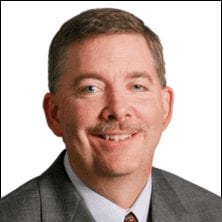
Mike Griswold serves as Vice President Analyst with Gartner’s Consumer Value Chain team, focusing on the retail supply chain. He is responsible for assisting supply leaders in understanding and implementing demand-driven supply chain principles that improve the performance of their supply chain. Mr. Griswold joined Gartner through the company’s acquisition of AMR. Previous roles include helping line-of-business users align corporate strategy with their supply chain process and technology initiatives. One recent study published by a team of Gartner analysts, including Mike Griswold is Retail Supply Chain Outlook 2019: Elevating the Consumer’s Shopping Experience. Mr. Griswold holds a BS in Business Management from Canisius College and an MBA from the Whittemore School of Business & Economics at the University of New Hampshire. Learn more about Gartner here: www.gartner.com
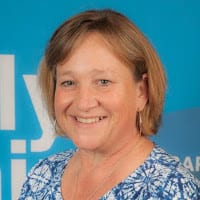
Jenny Froome is passionate about how supply chain management affects our lives on every level. Her original and now current profession is event management – the epitome of a well-honed supply chain. After many years working as COO of SAPICS – the professional body of supply chain management in South Africa she realized the importance of shining the light on the supply chains of Africa. Managing events such as the SAPICS annual conference, the People that Deliver Global Indaba, and the Africa Supply Chain Excellence Awards have truly allowed Jenny to combine her skills, knowledge, and community. Jenny’s lived all over the world and has settled in South Africa with her husband and many 4 legged friends while her sons are scattered around the world. Connect with Jenny on LinkedIn.
